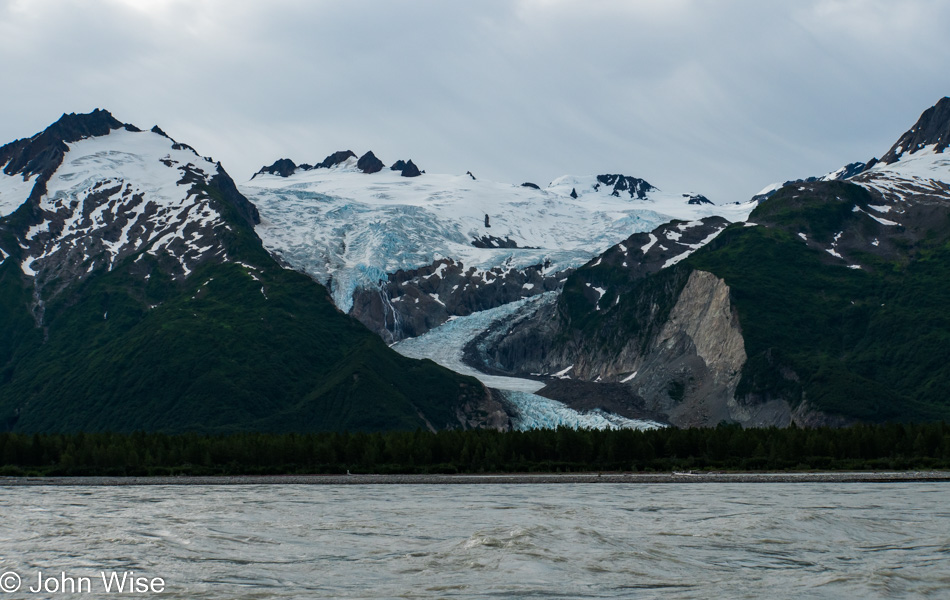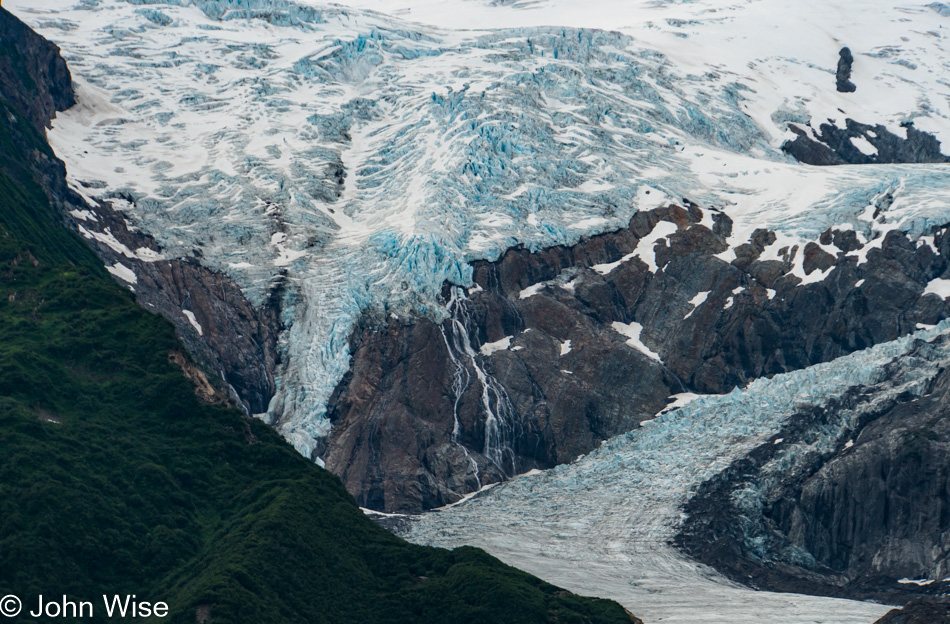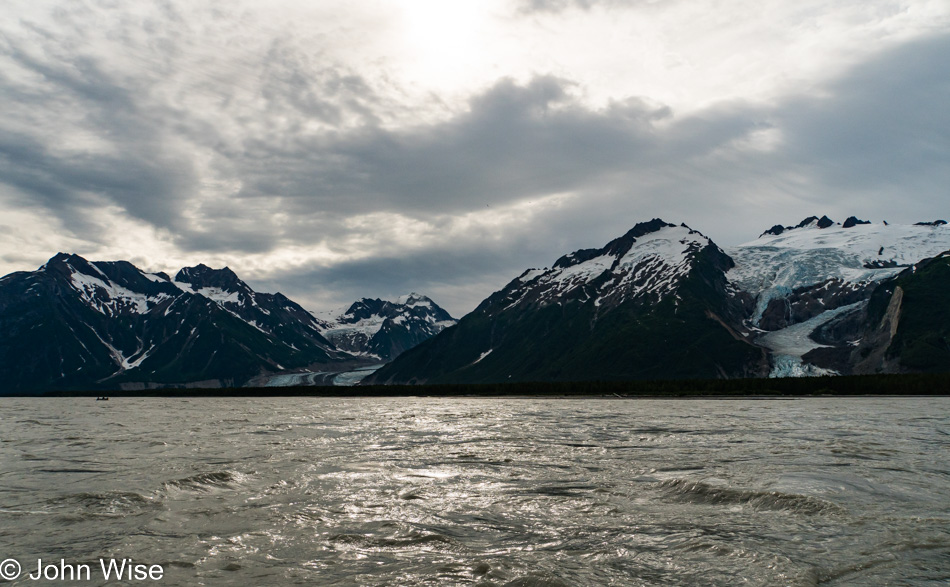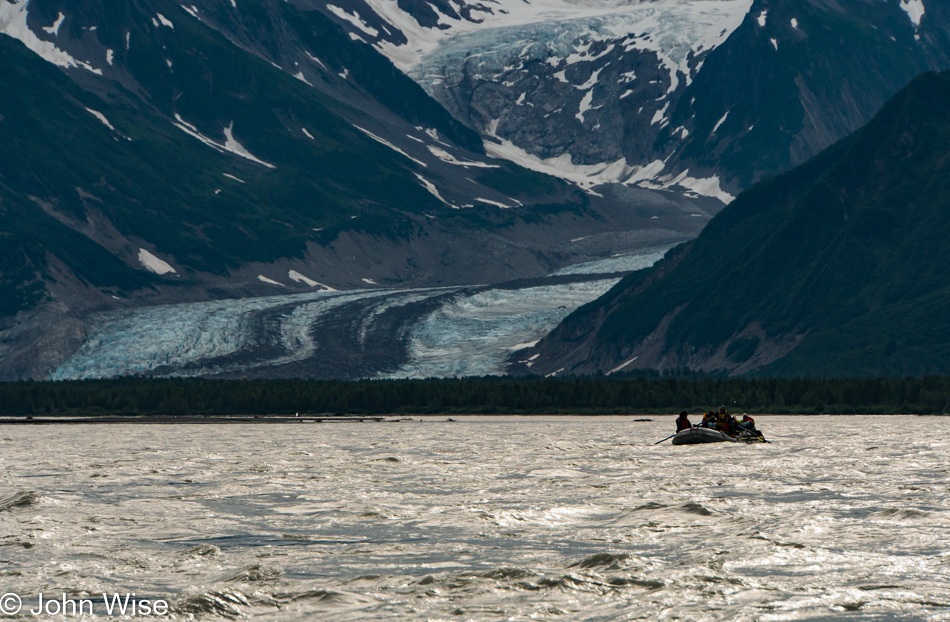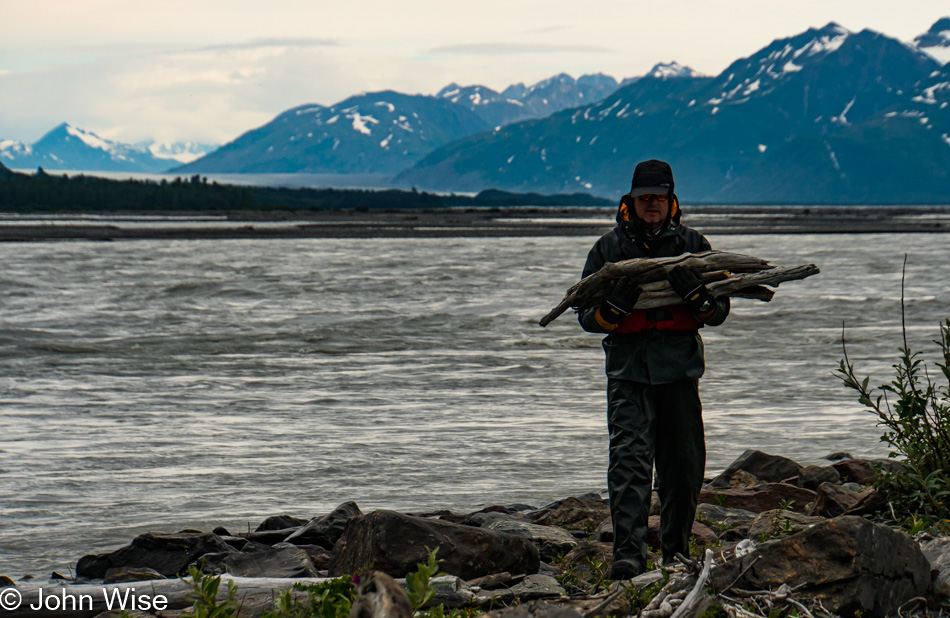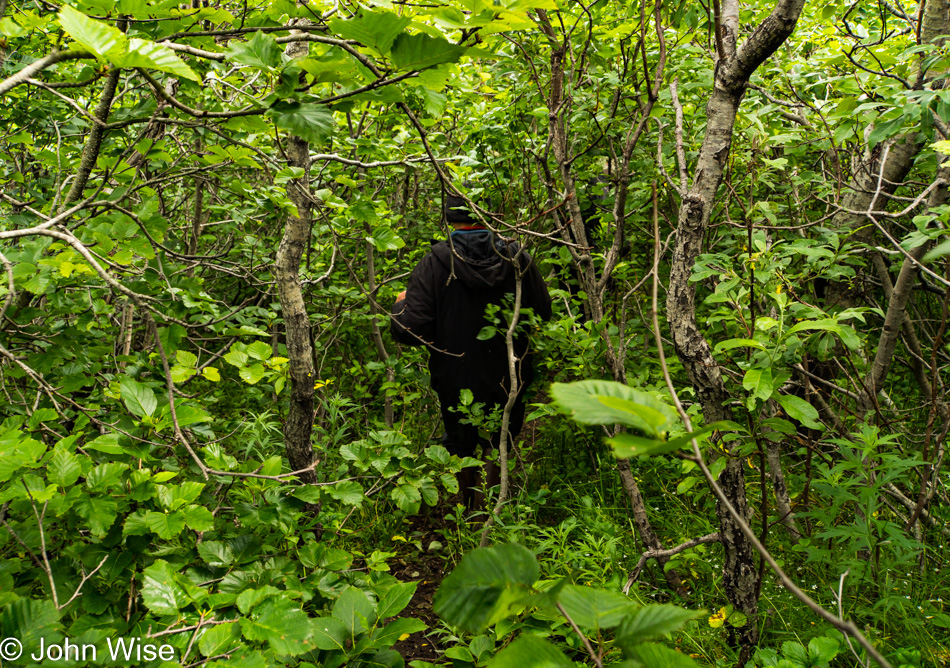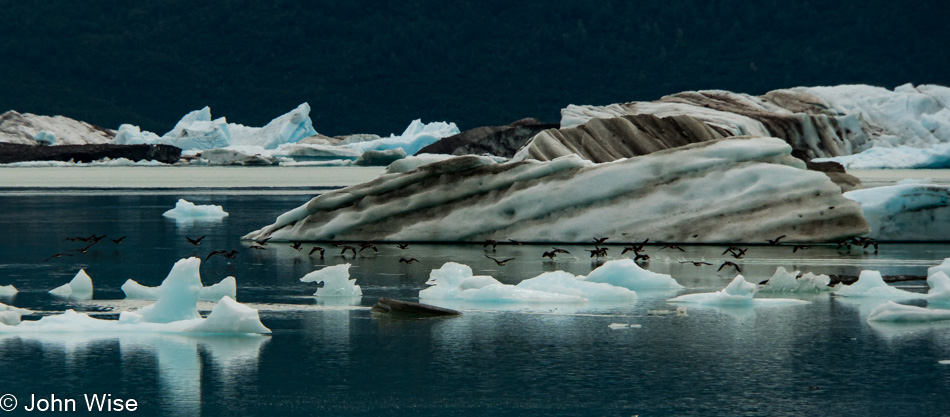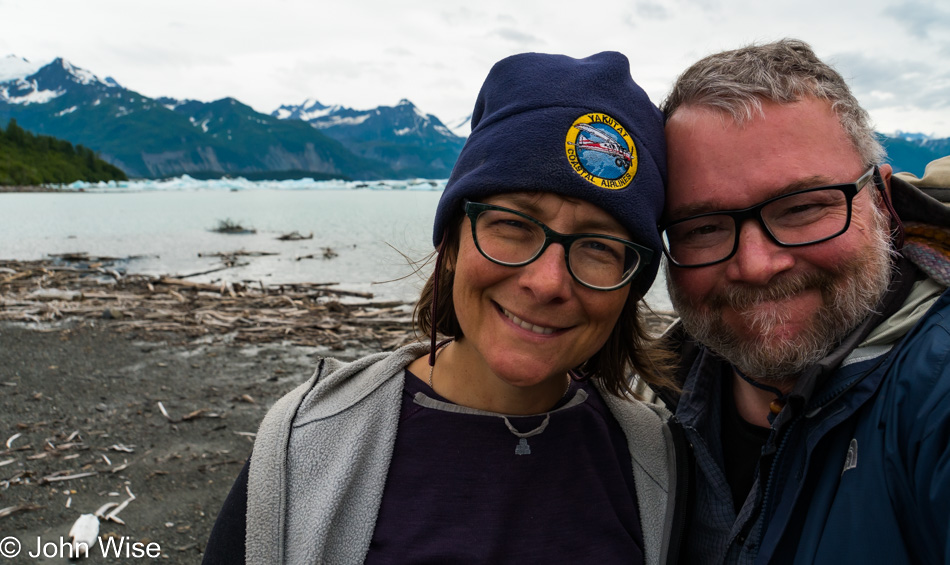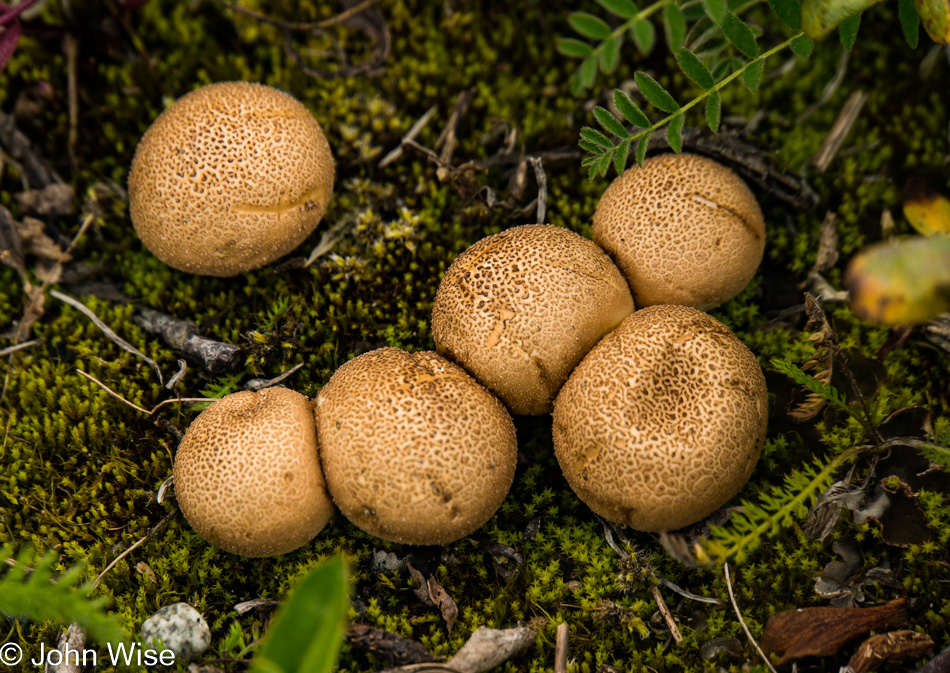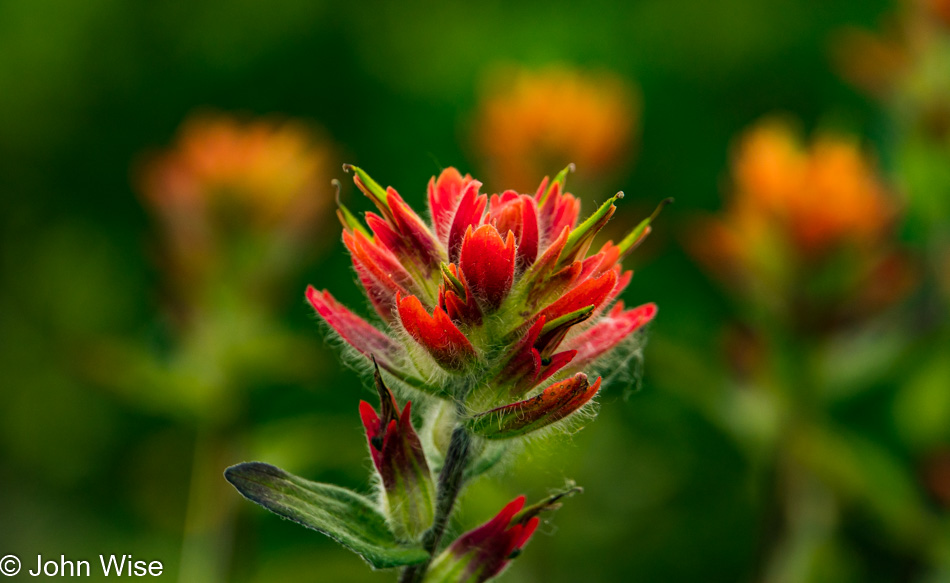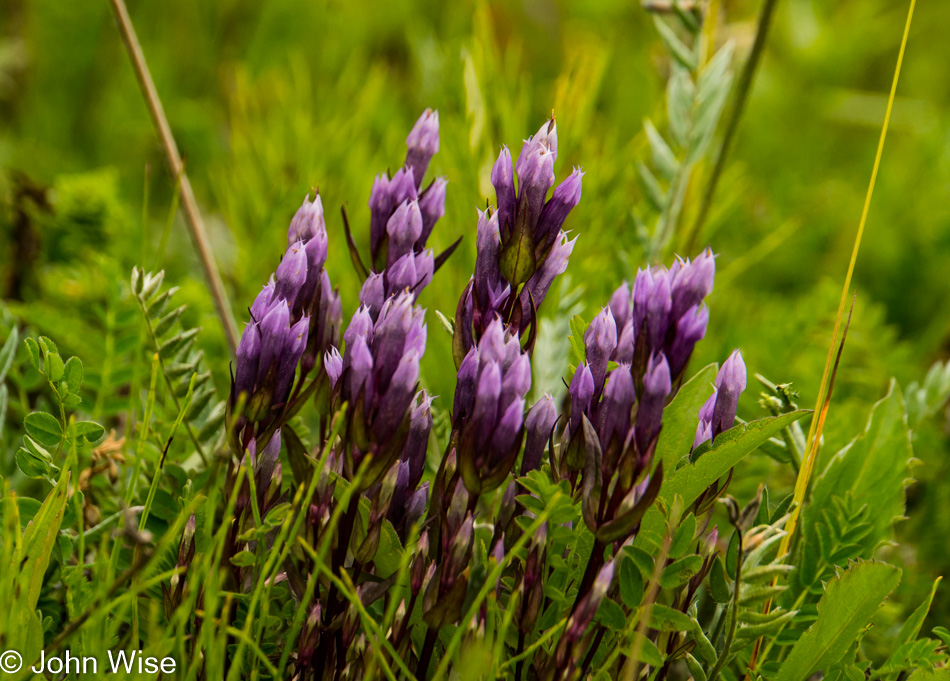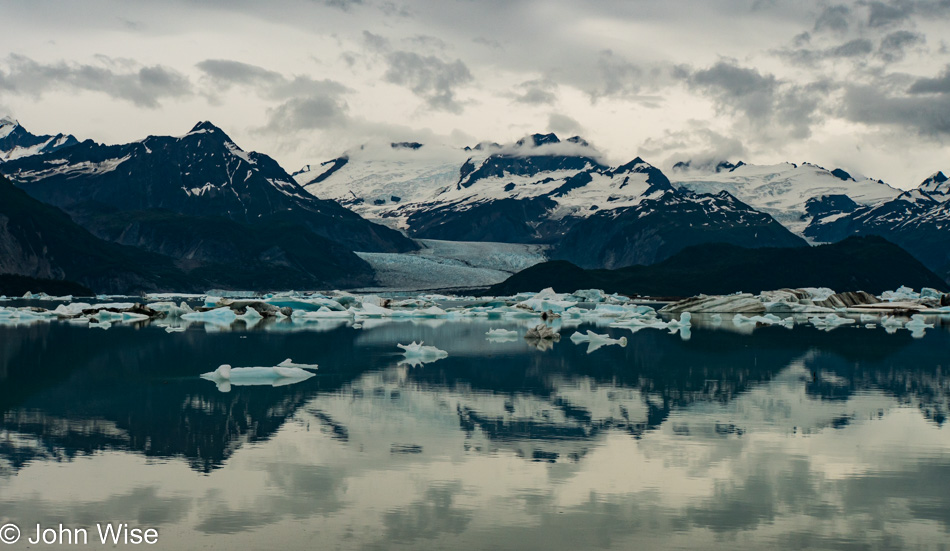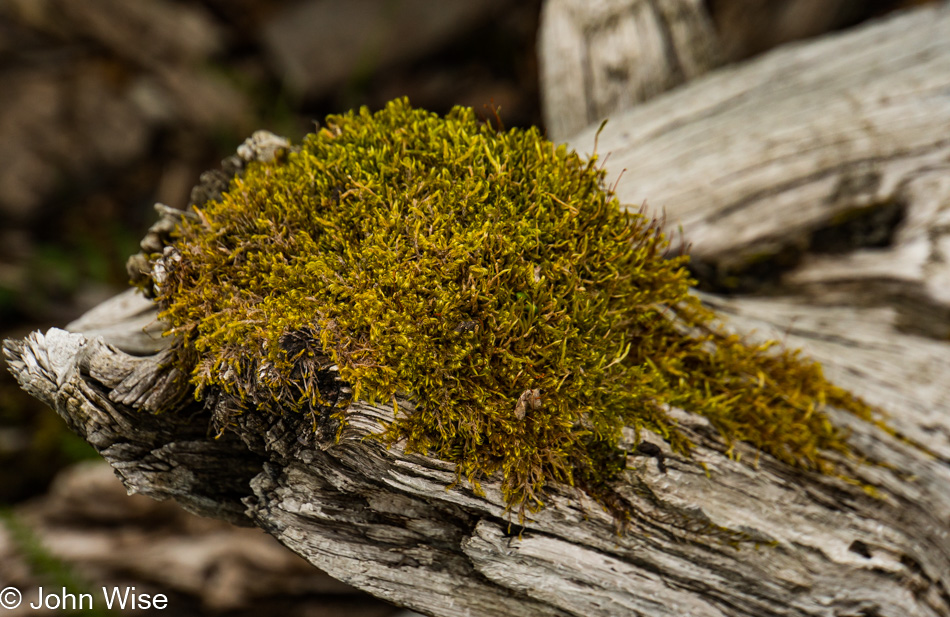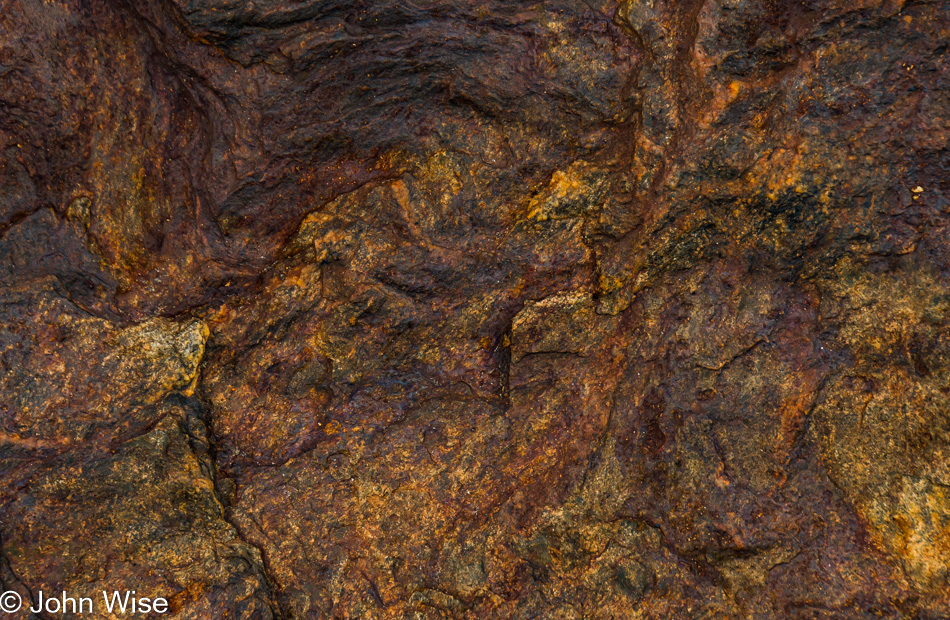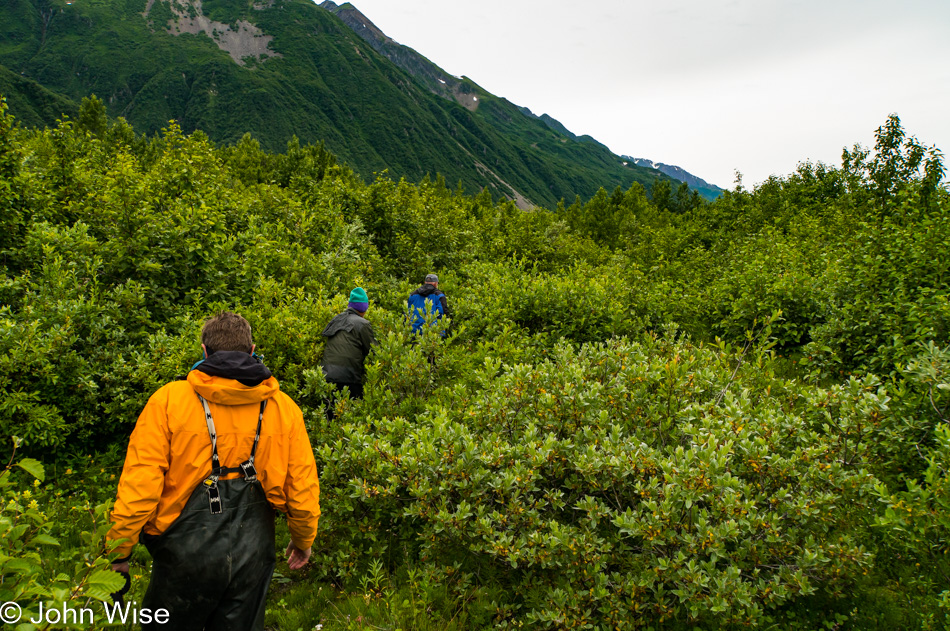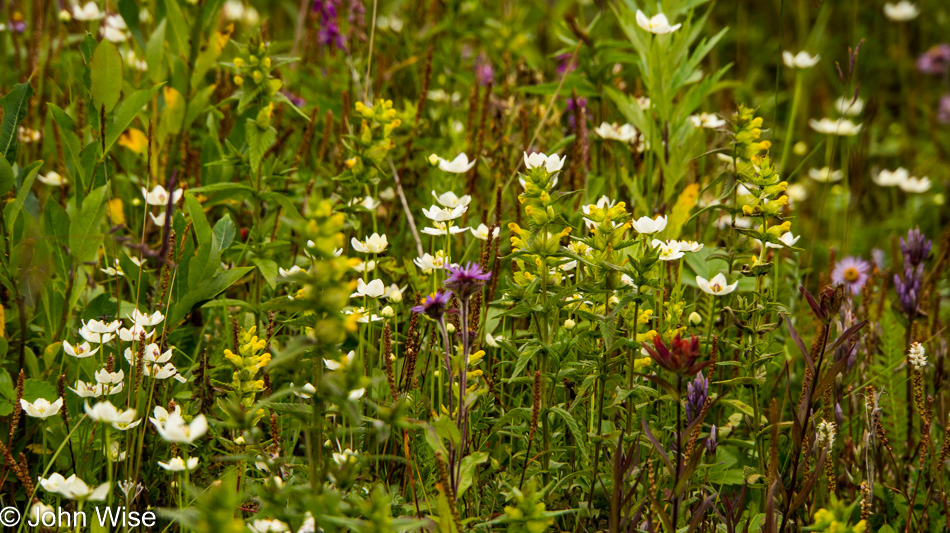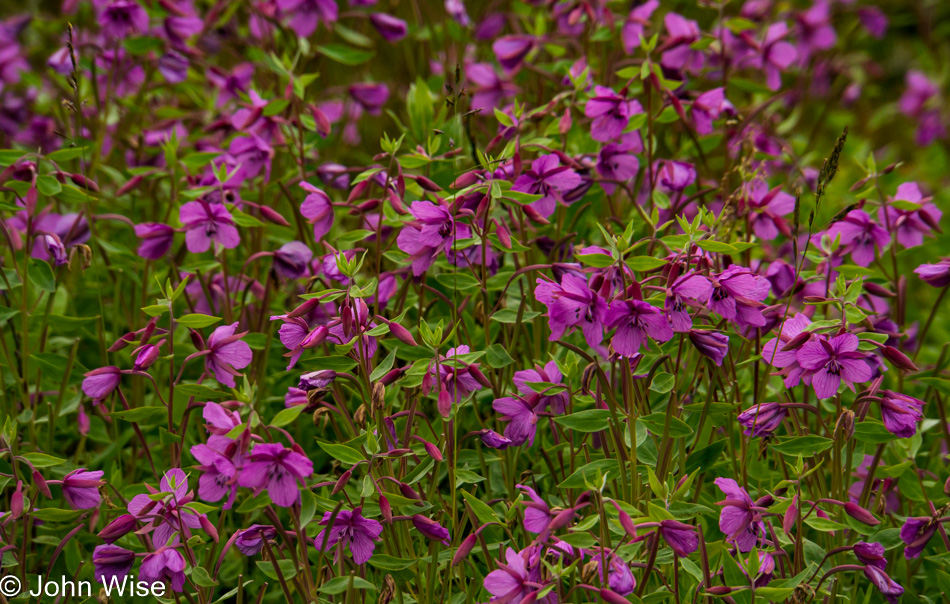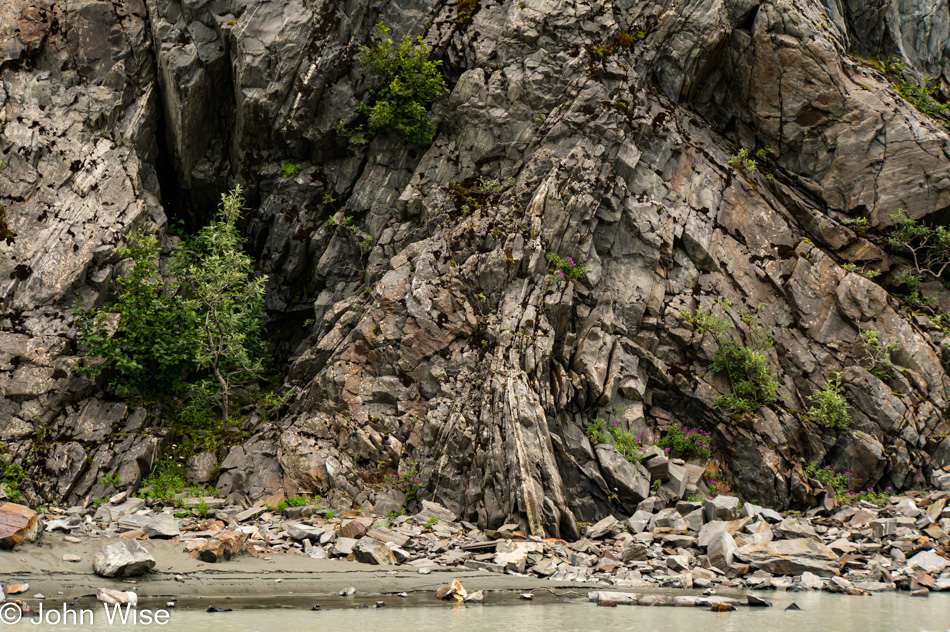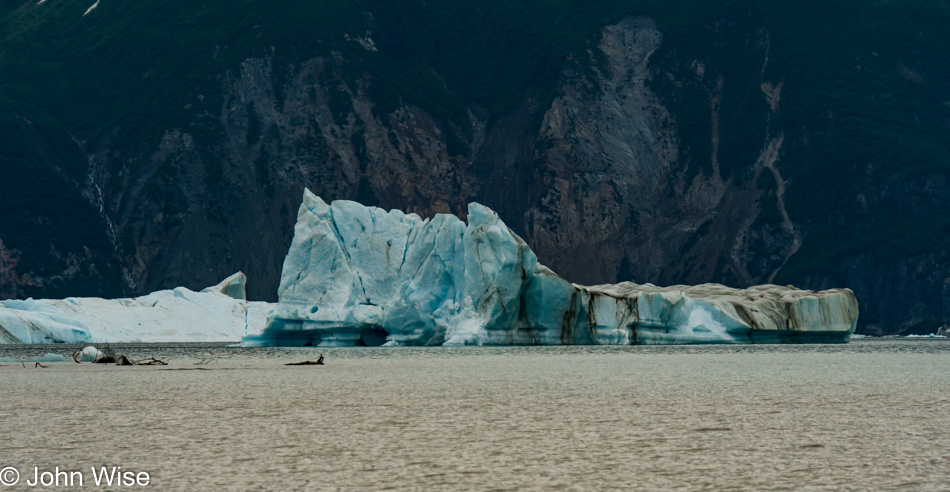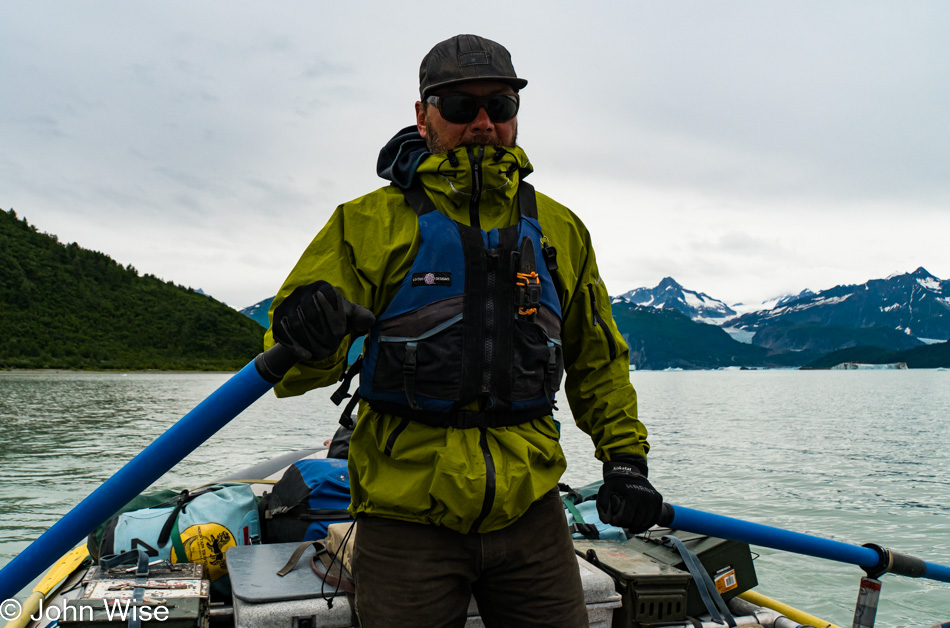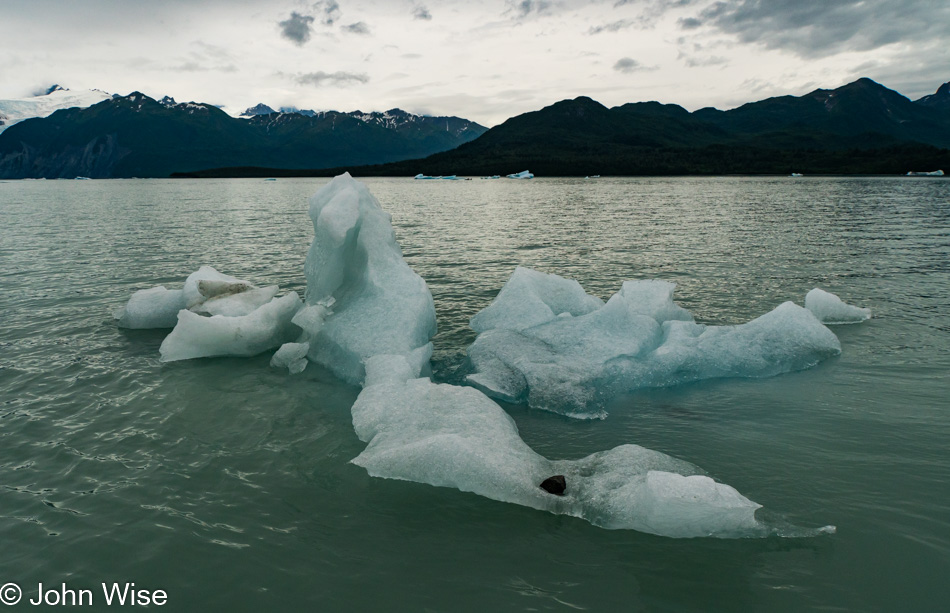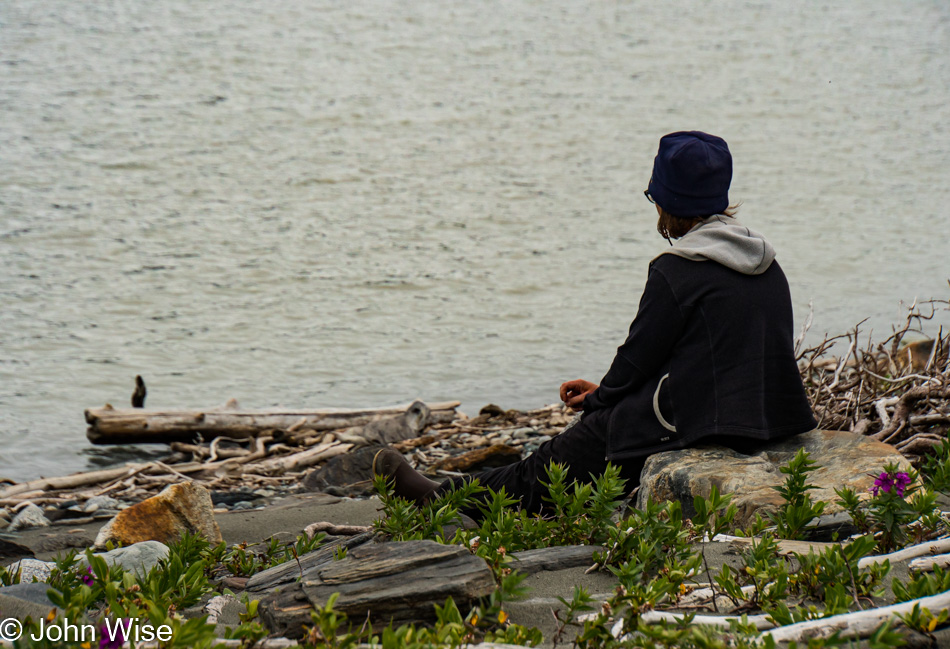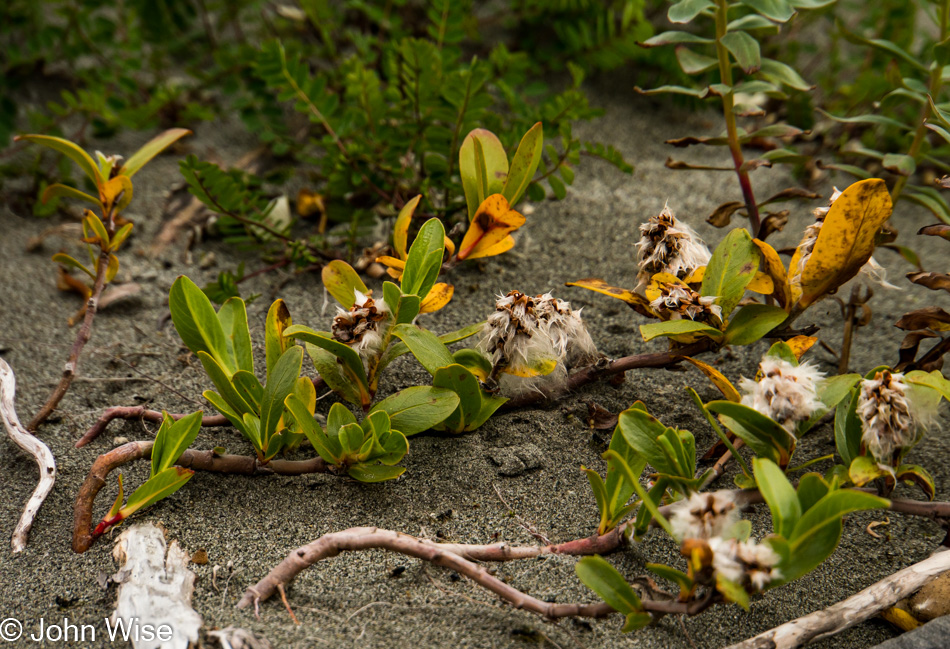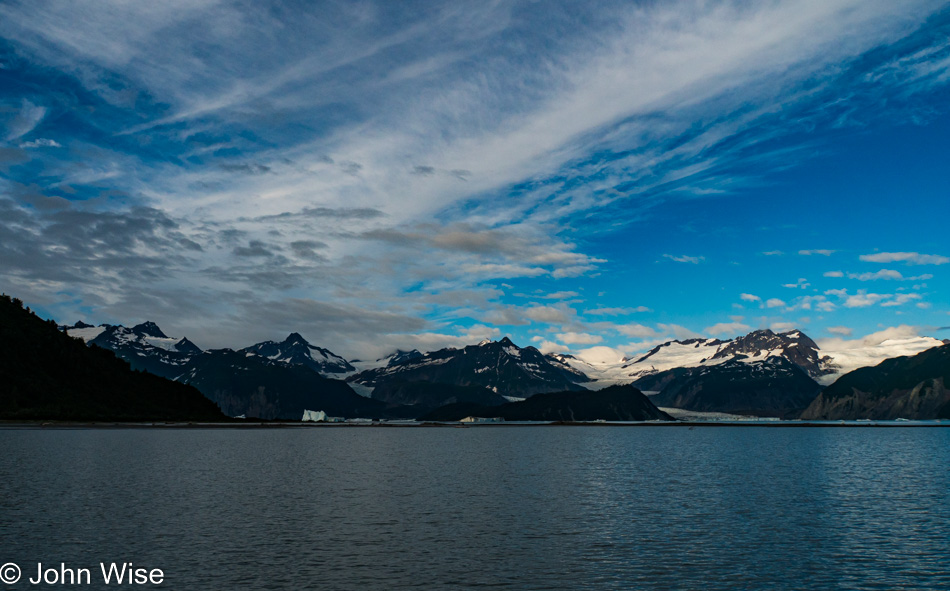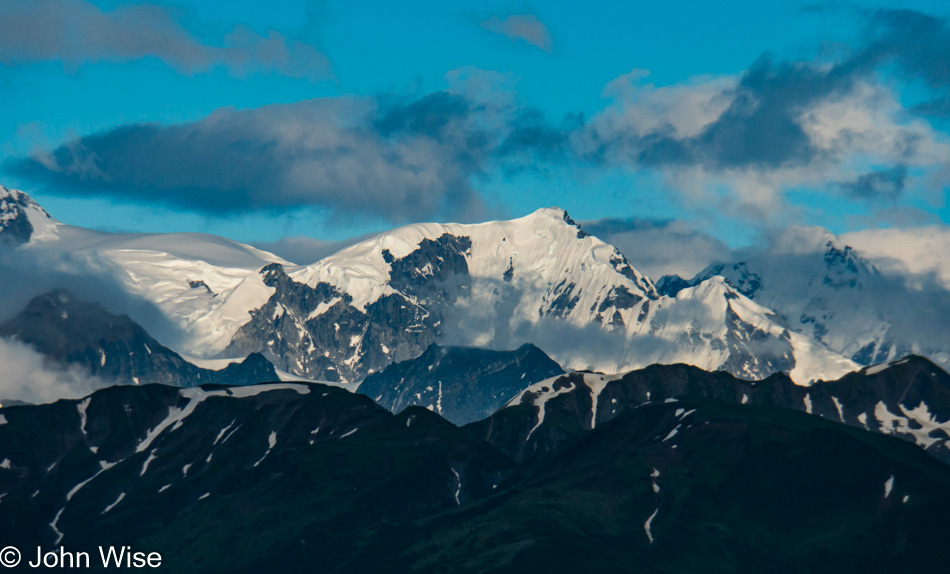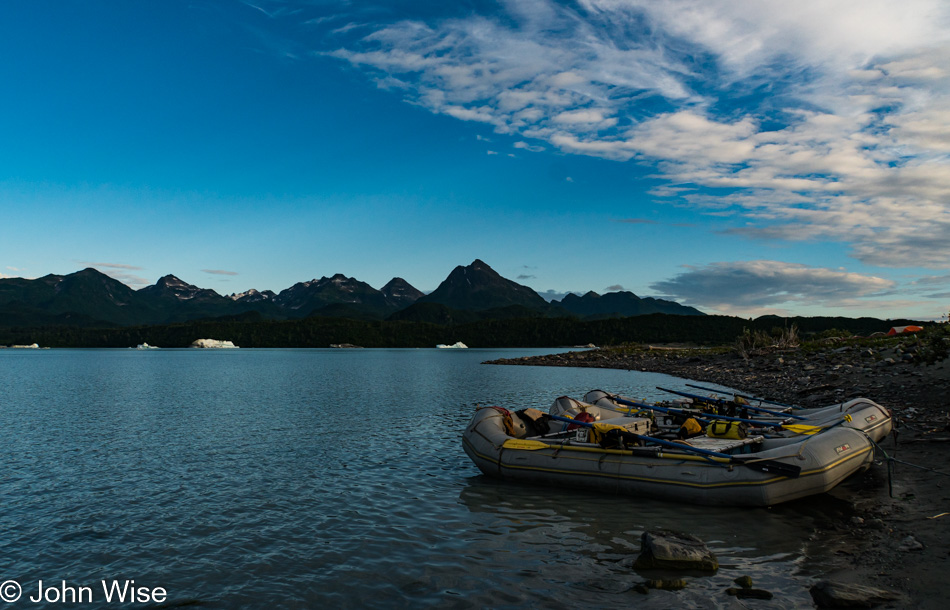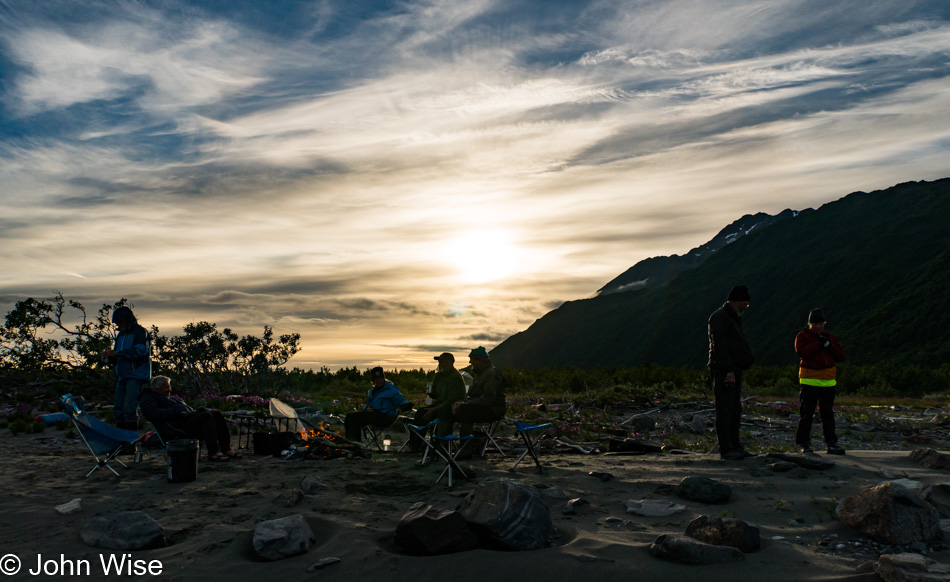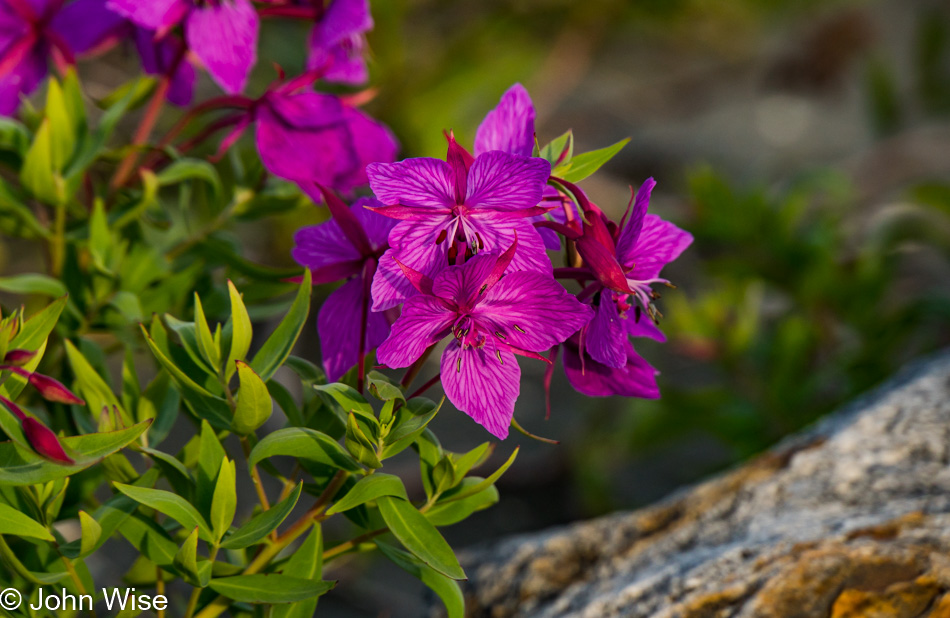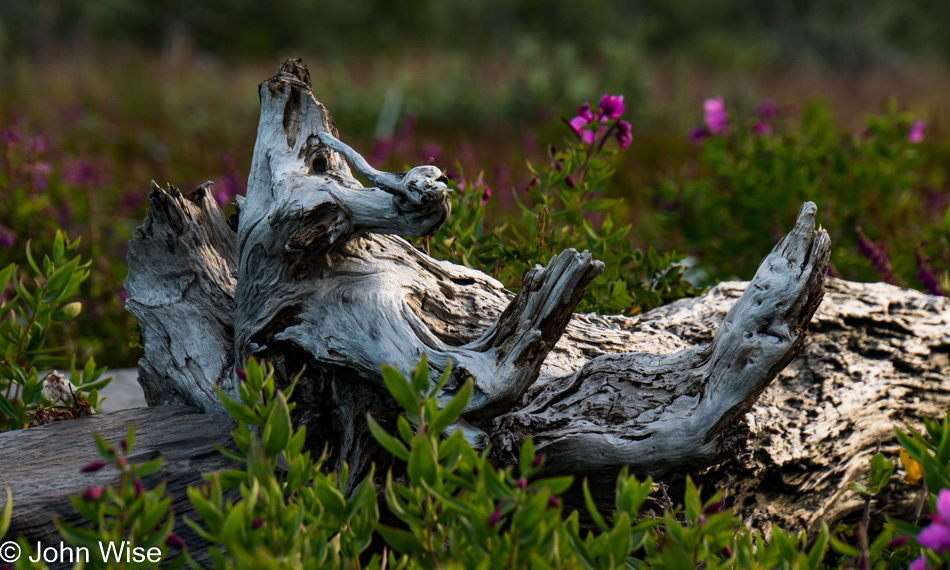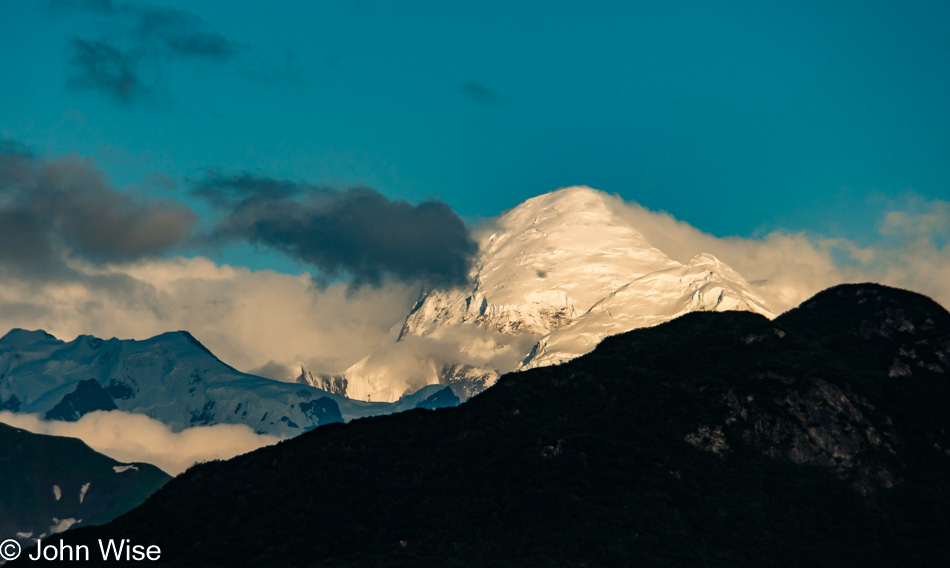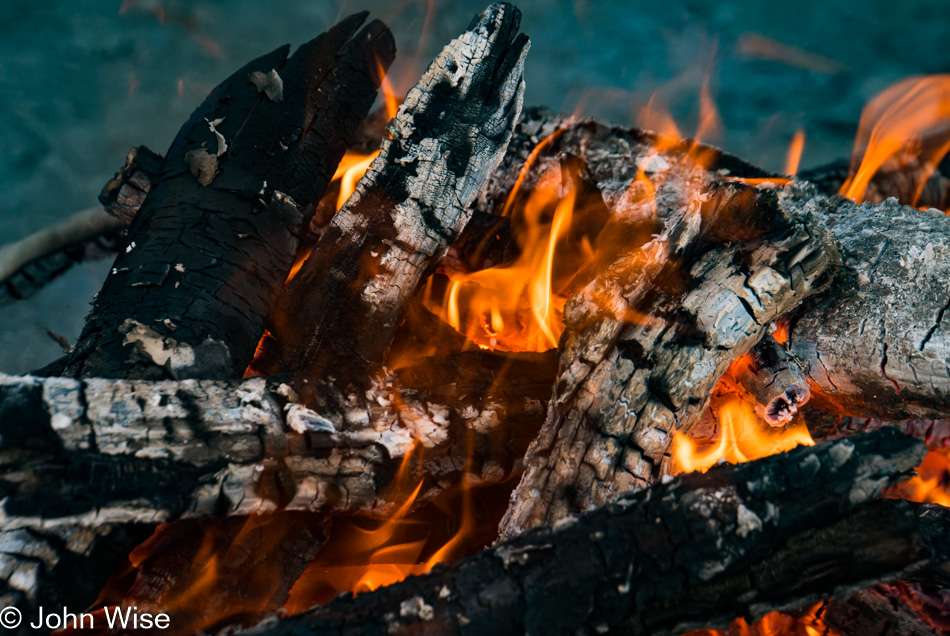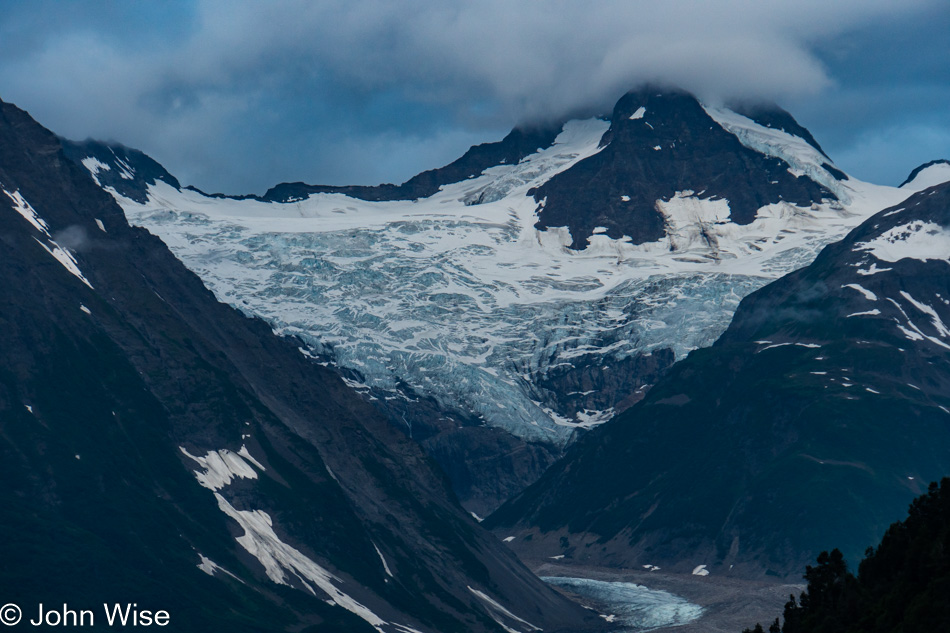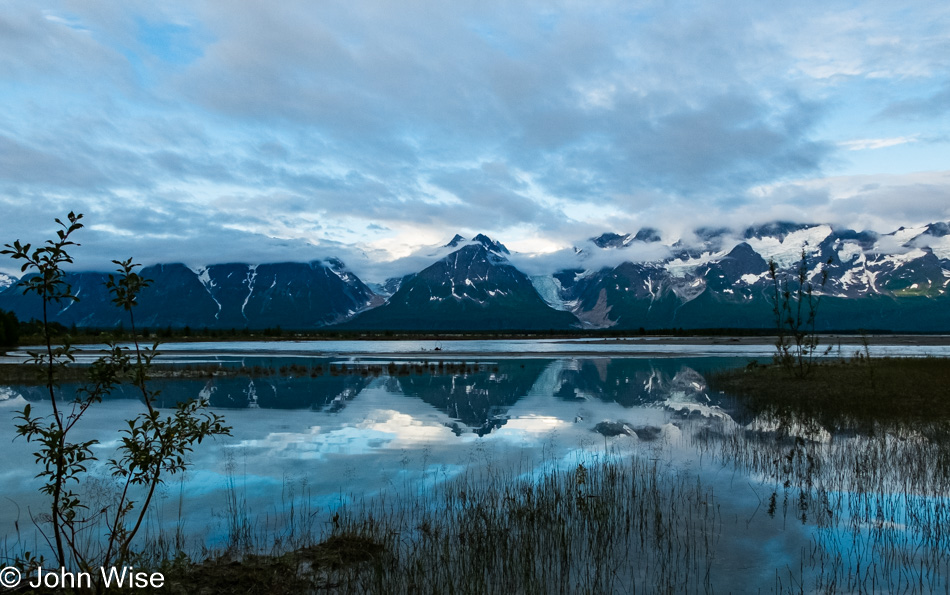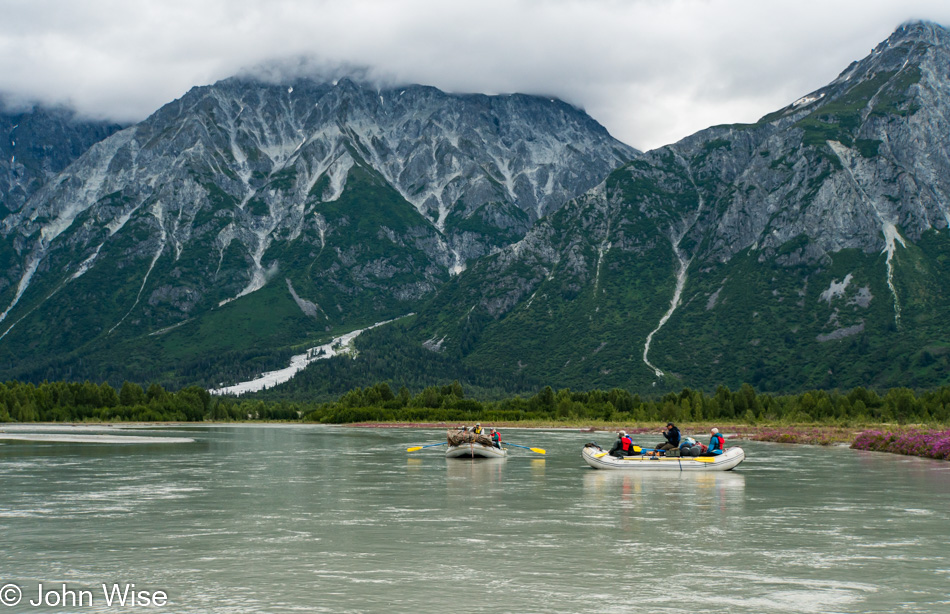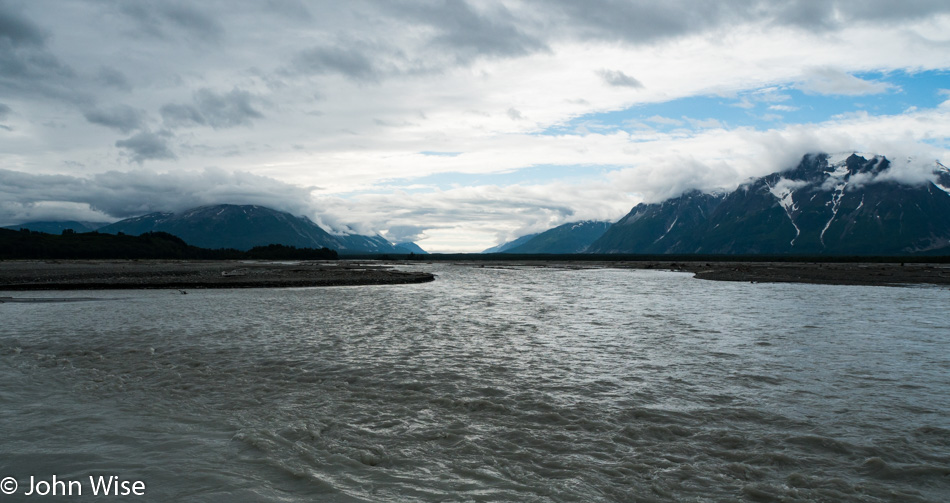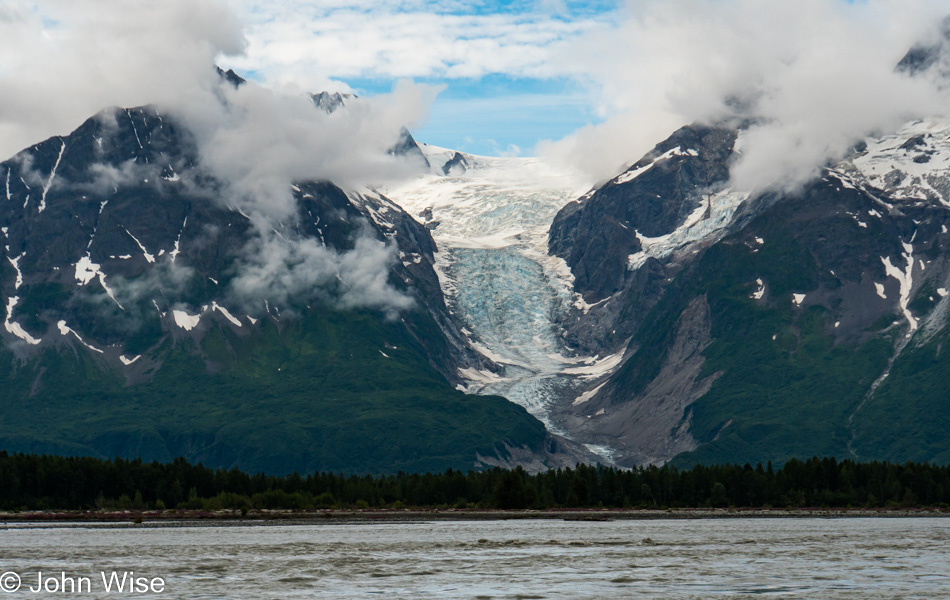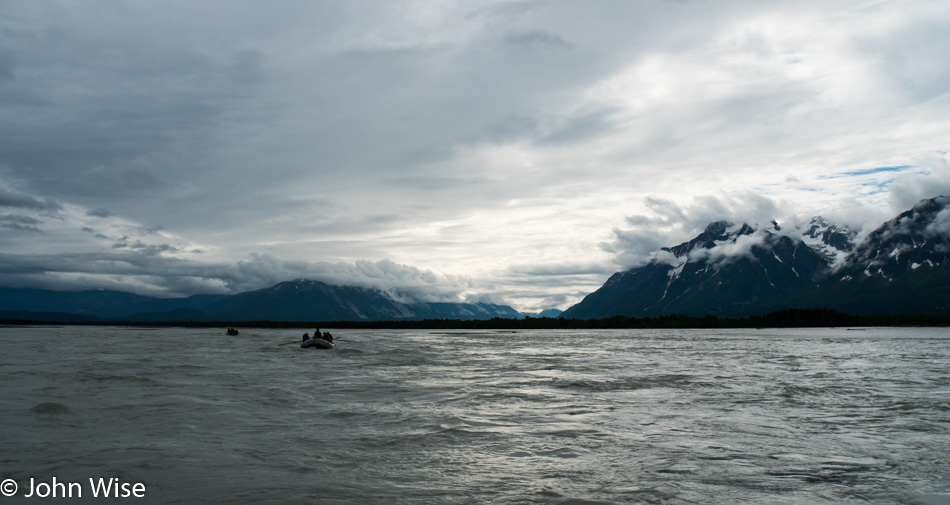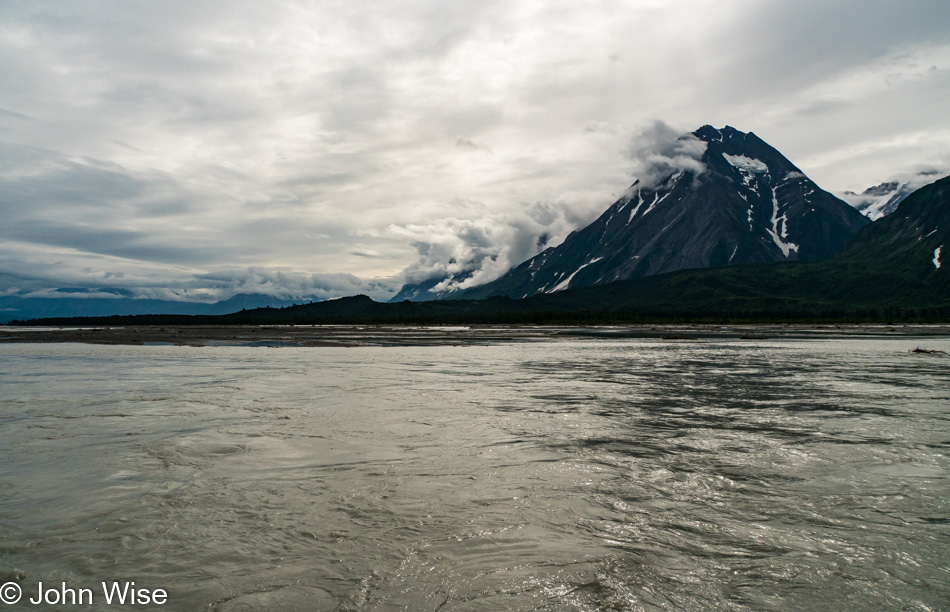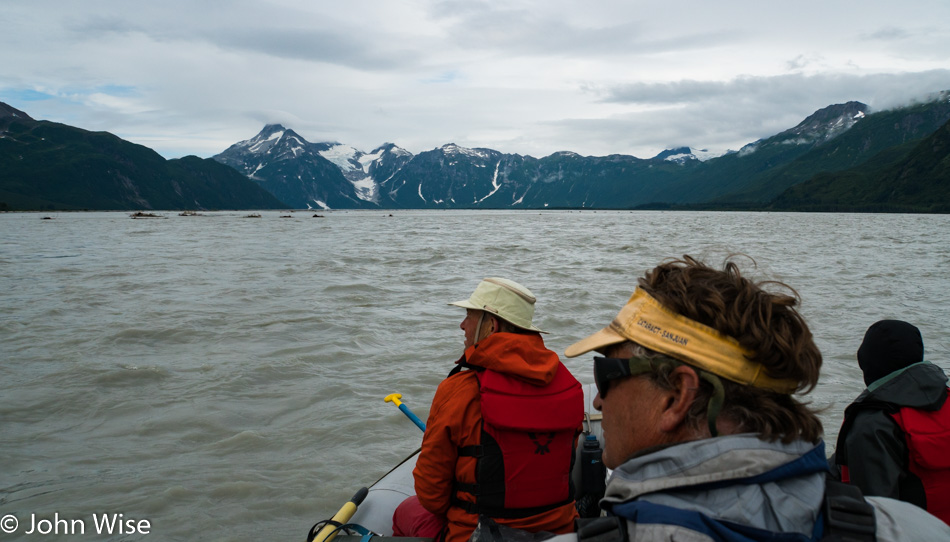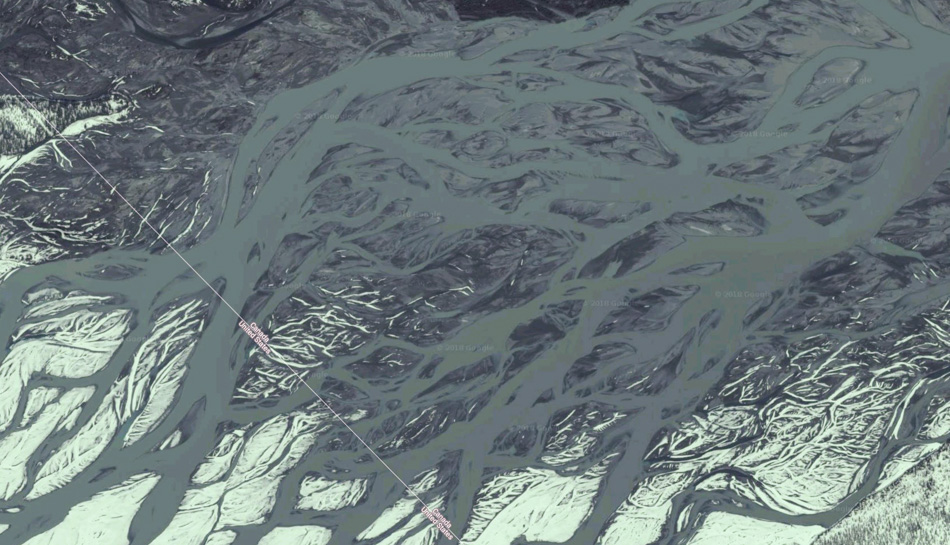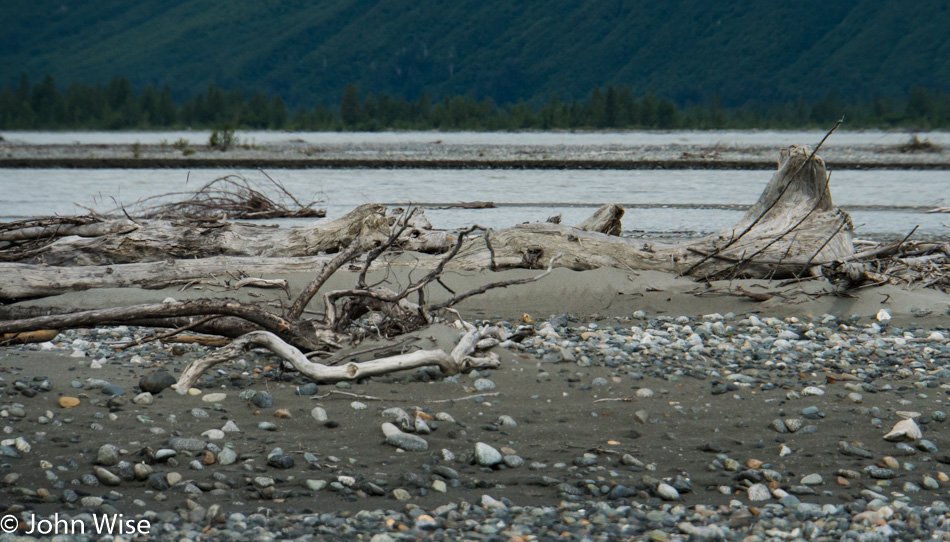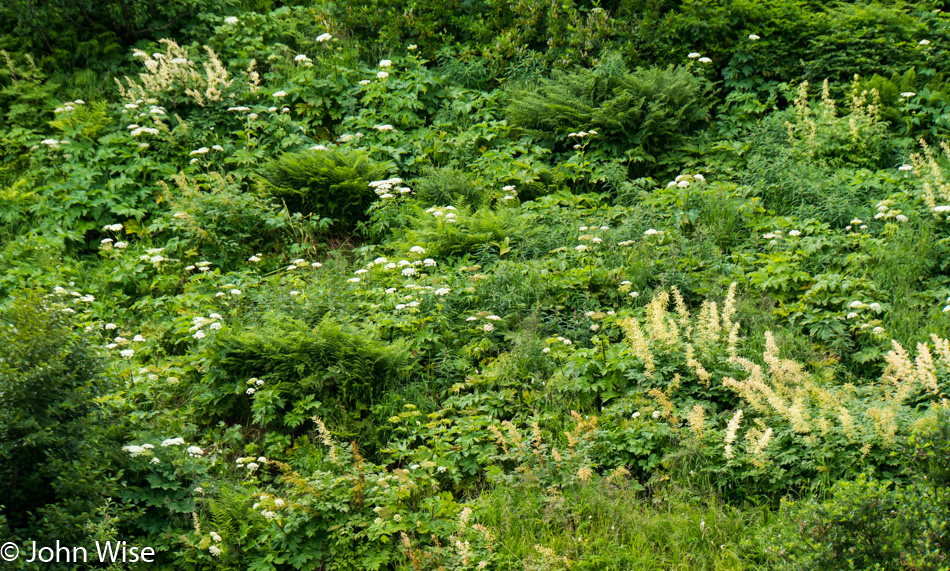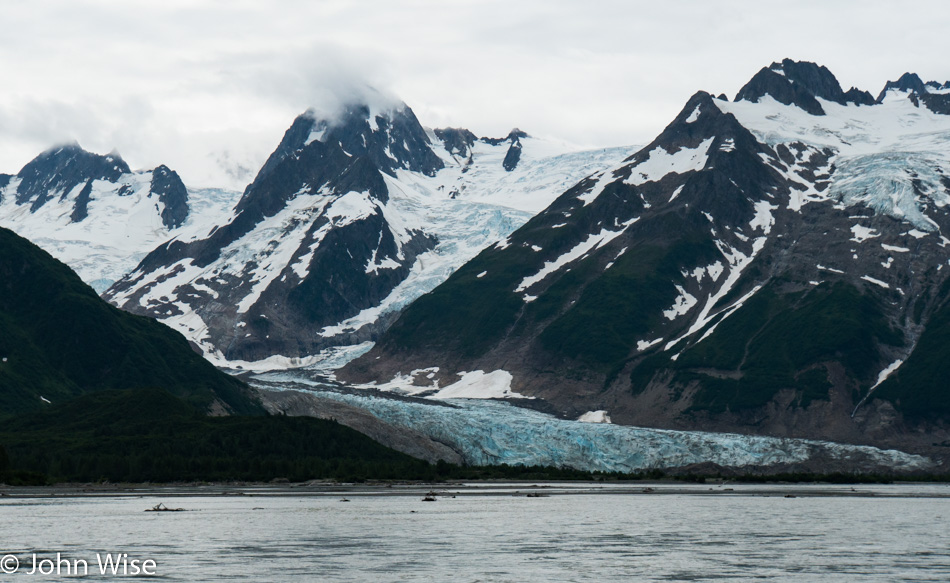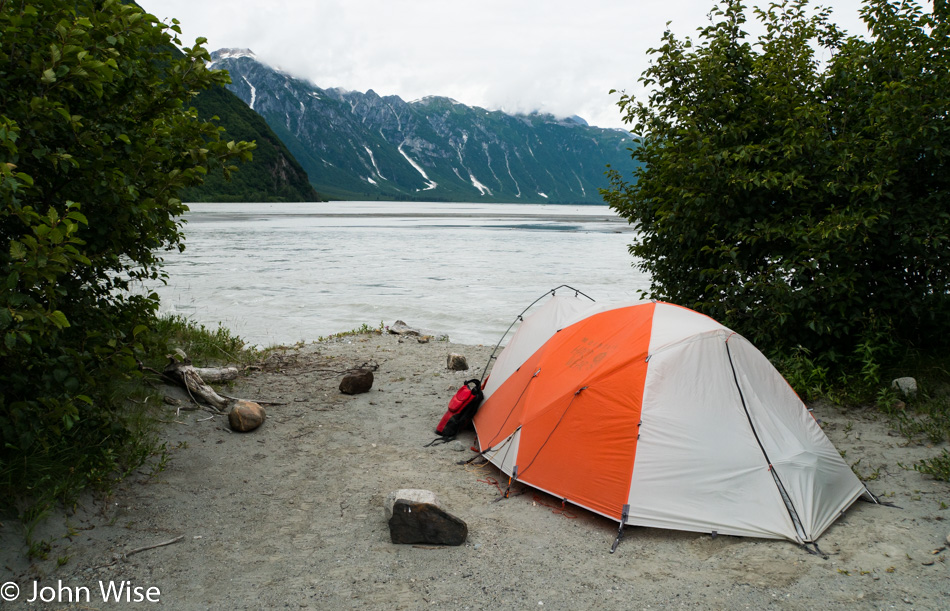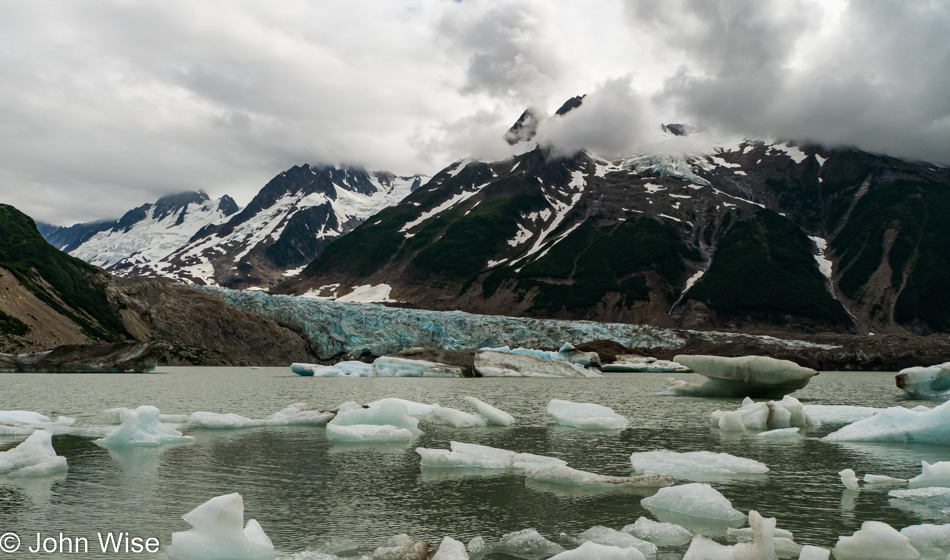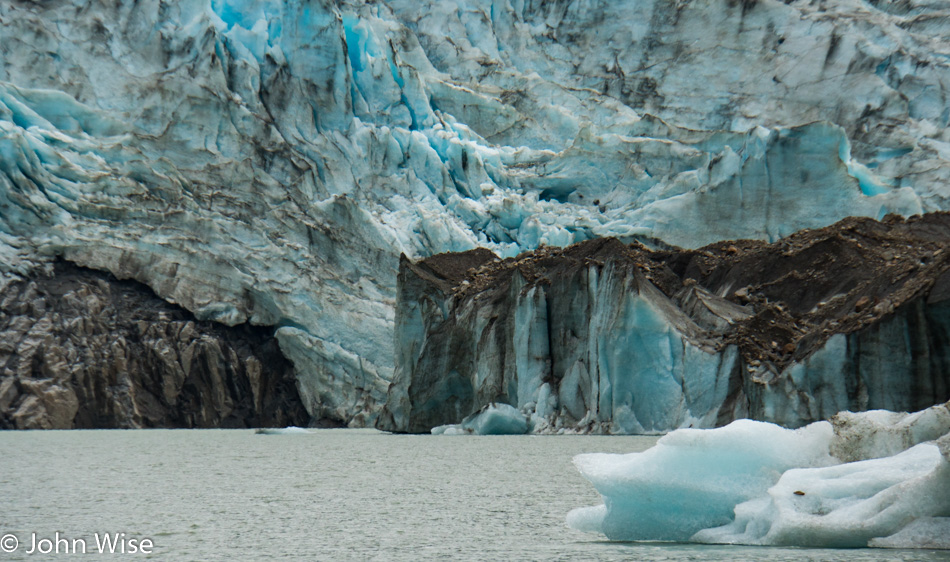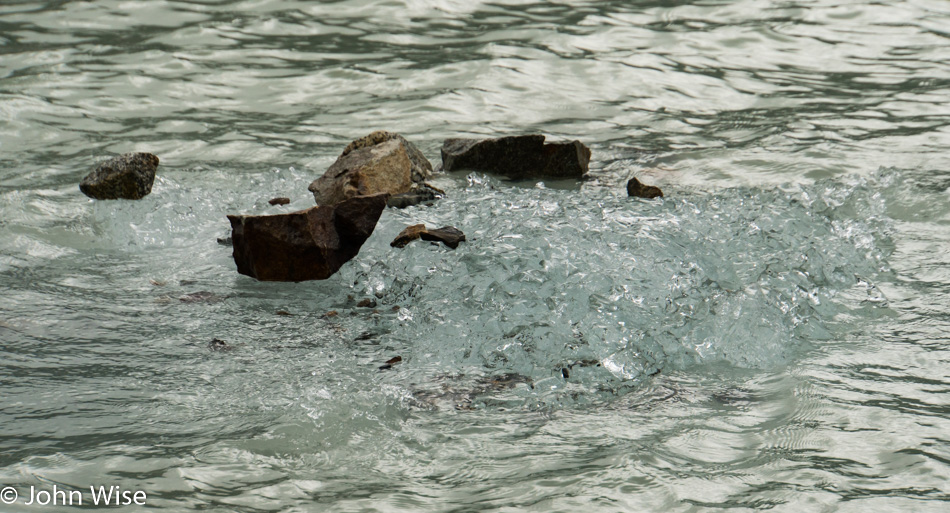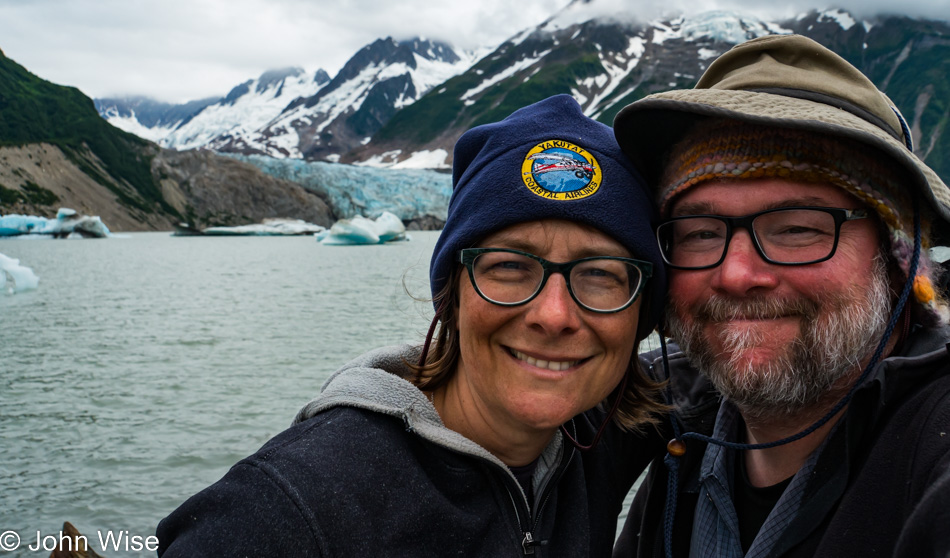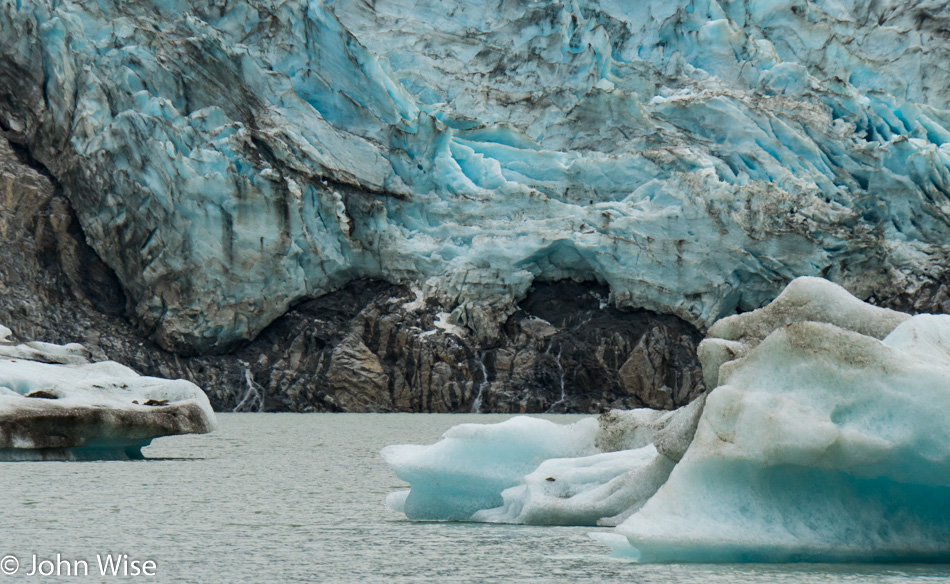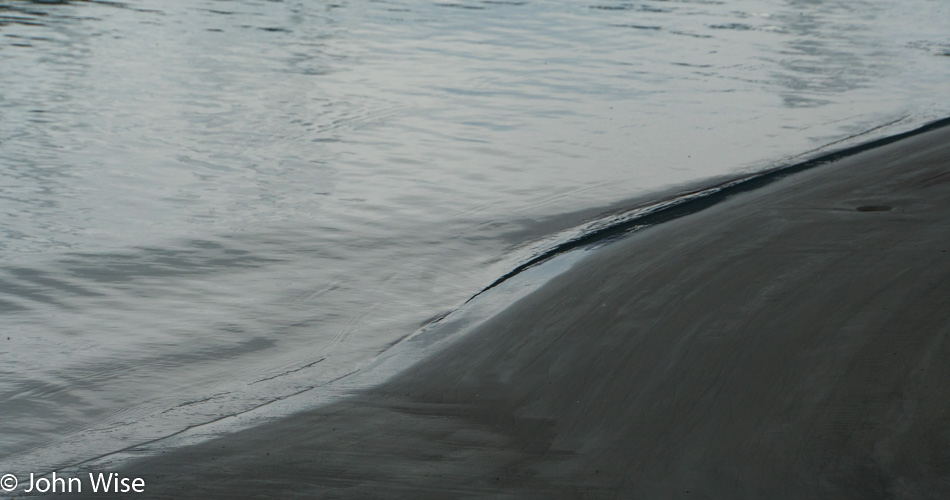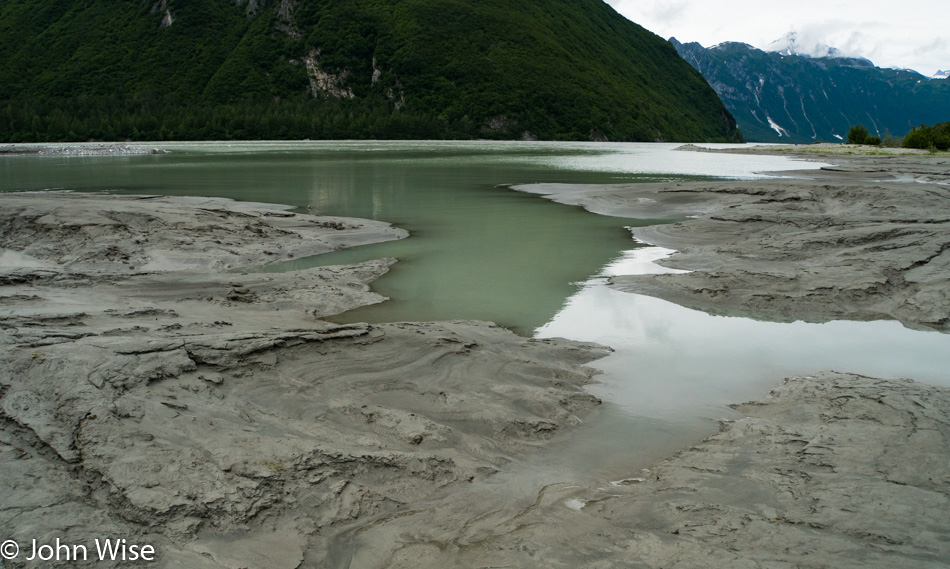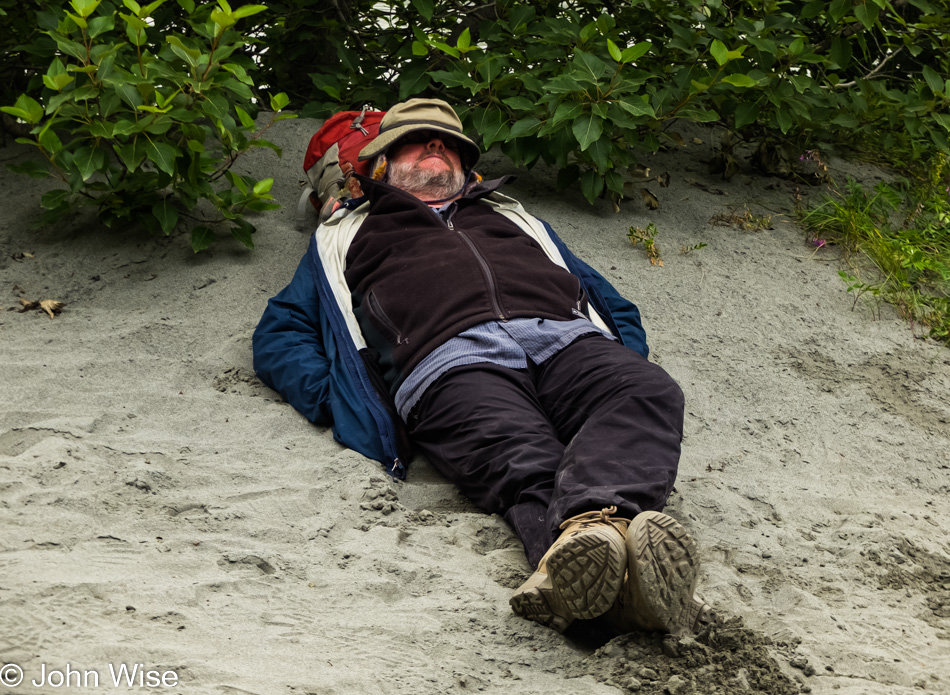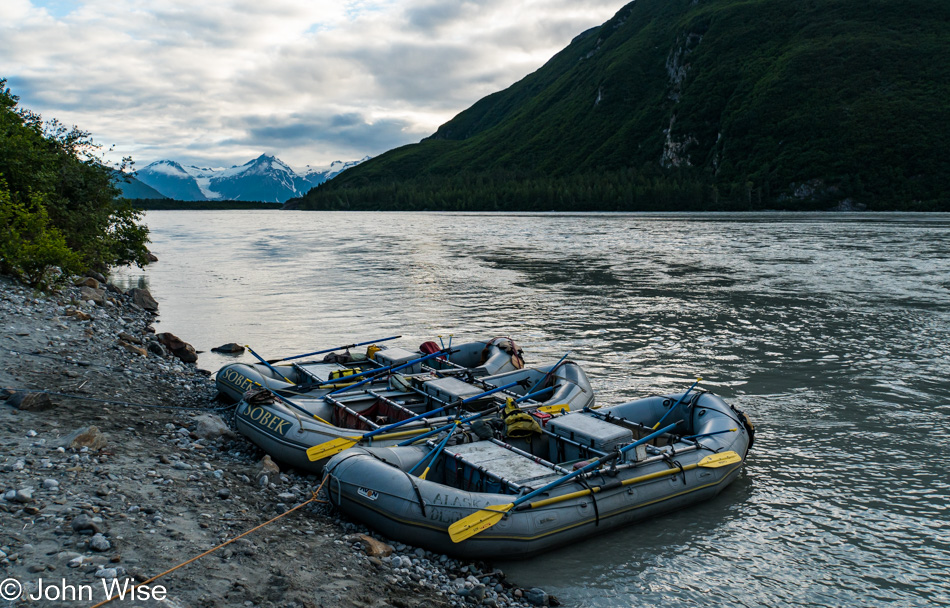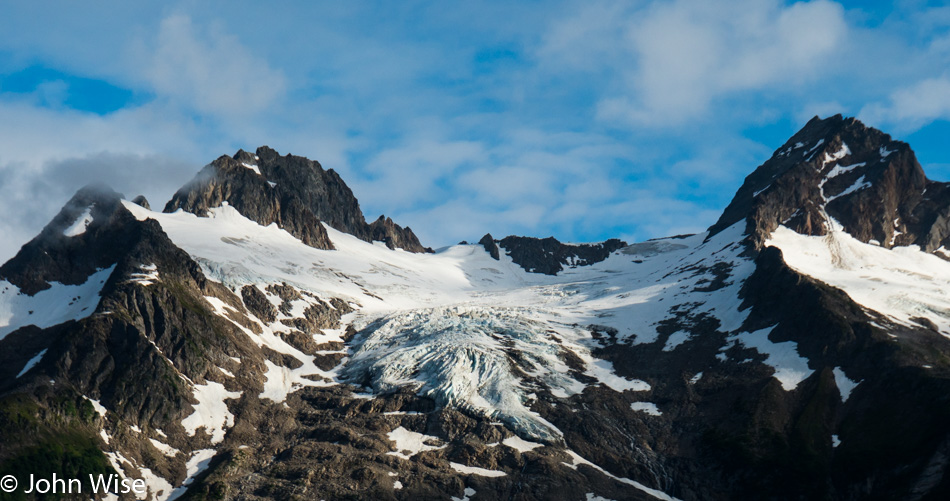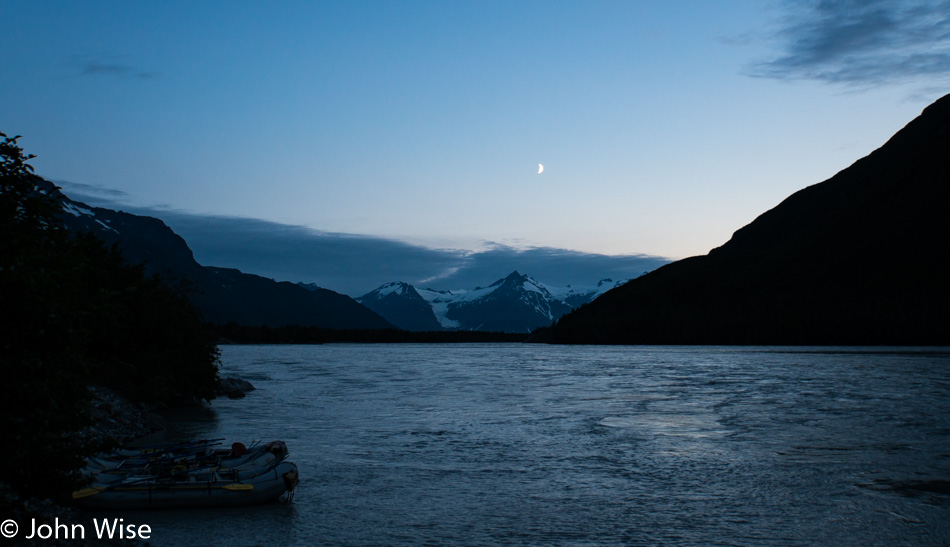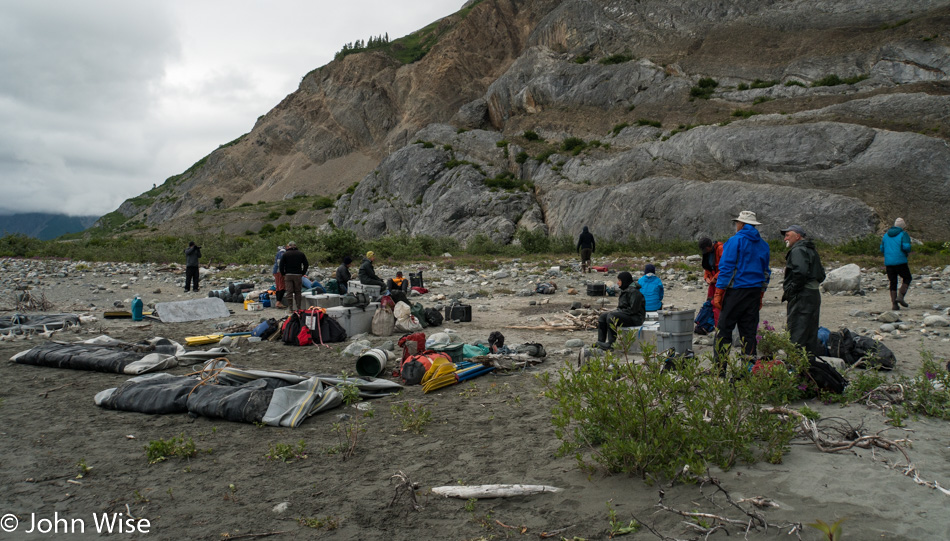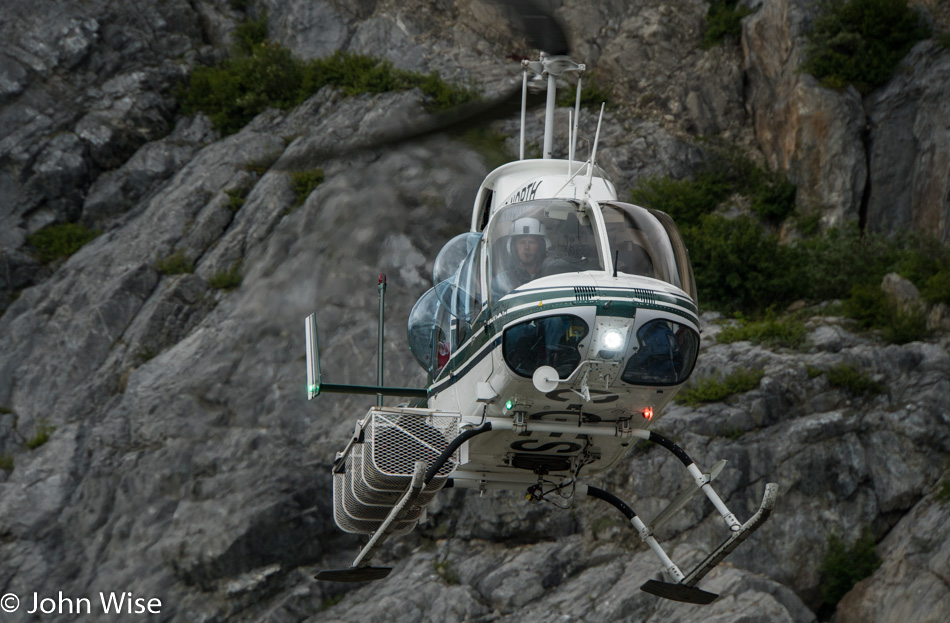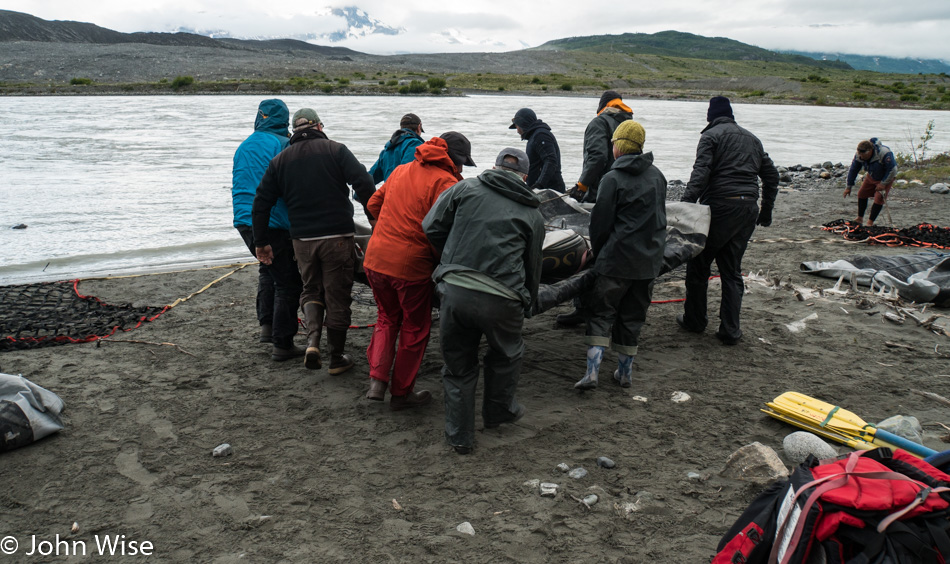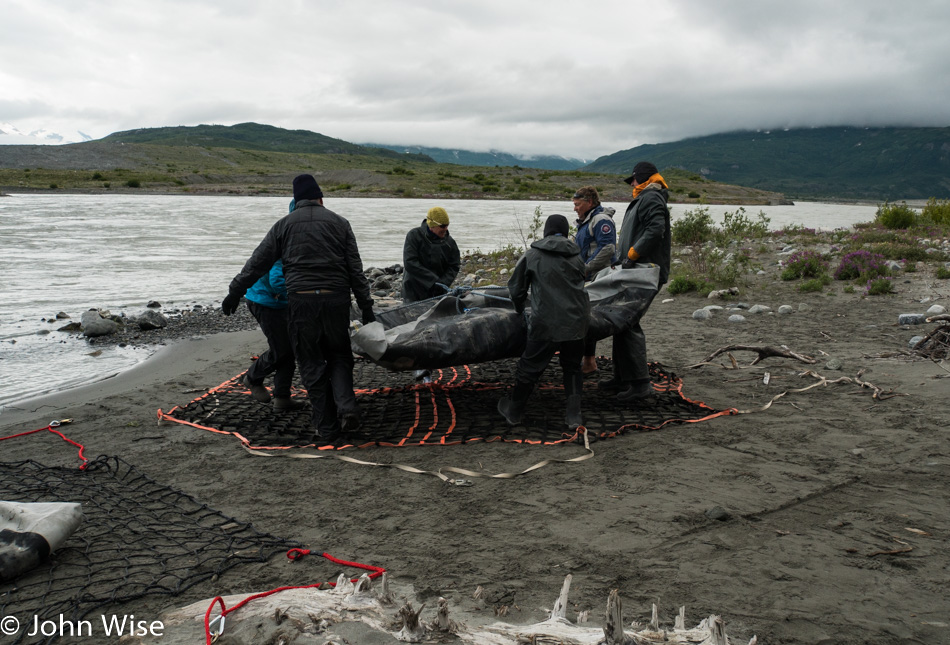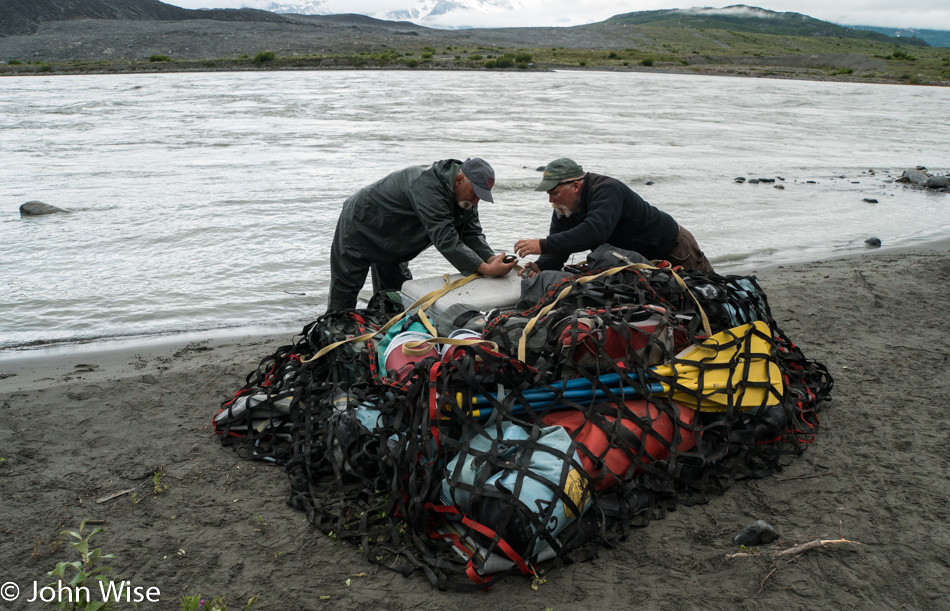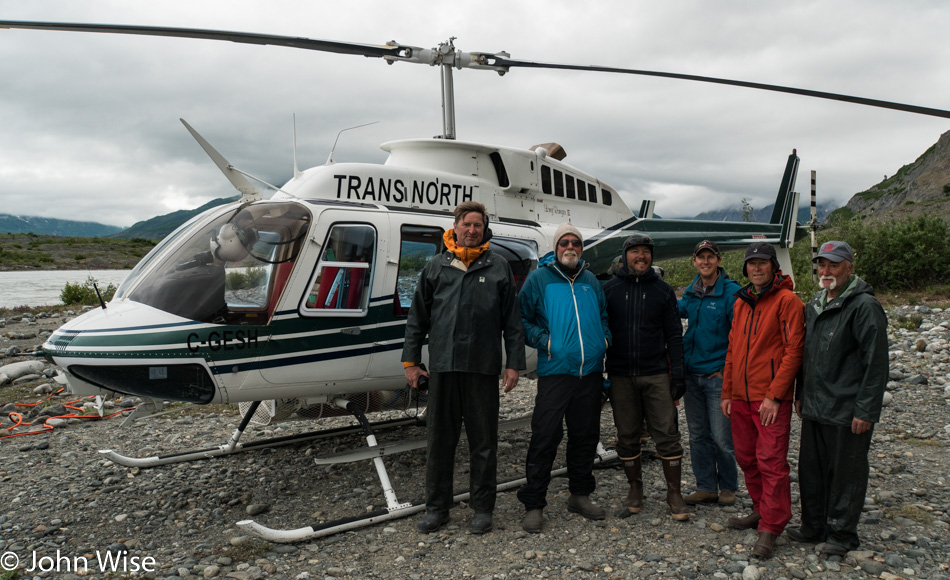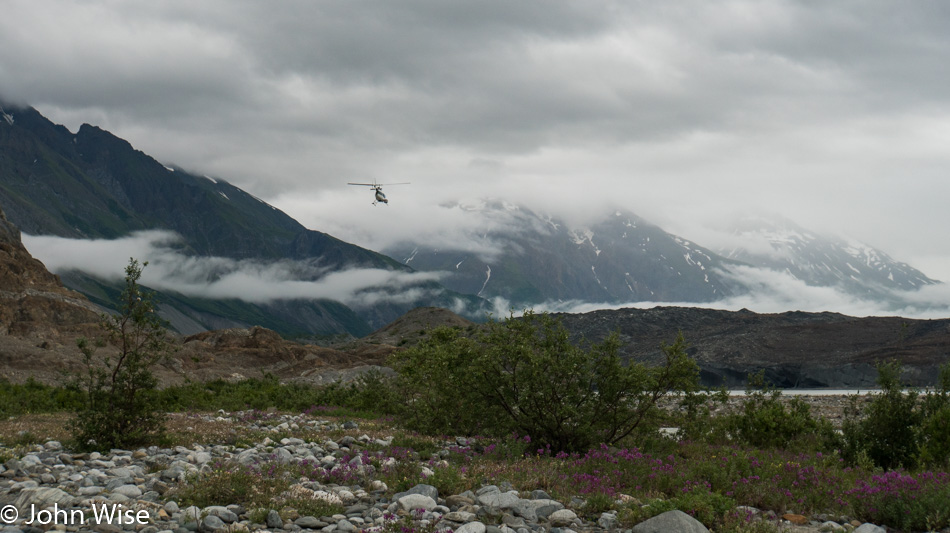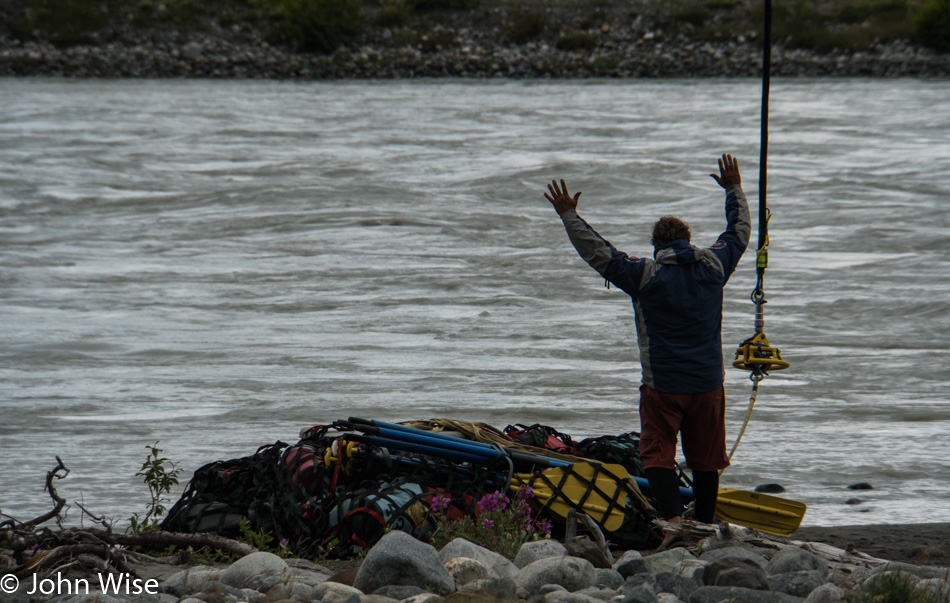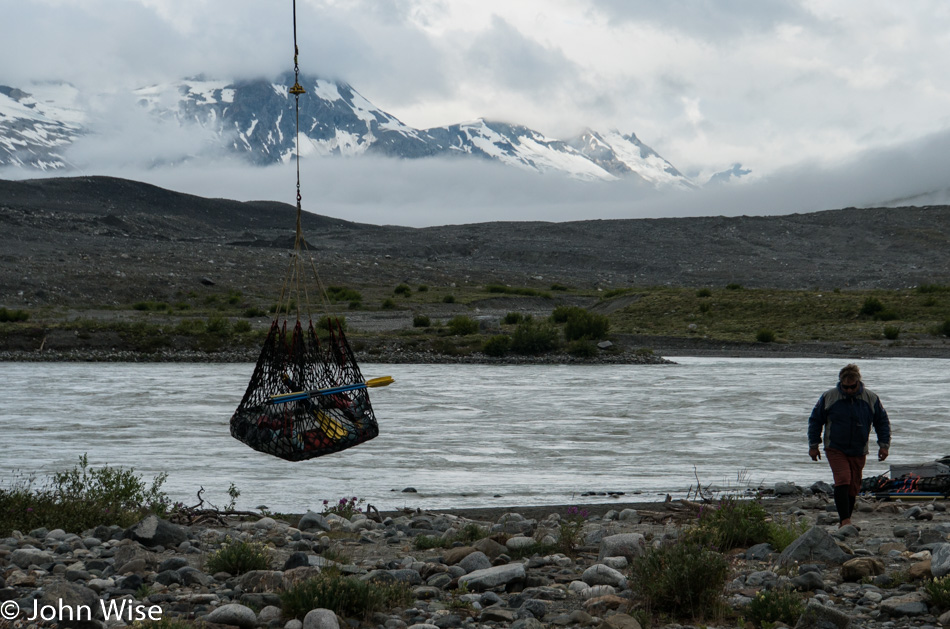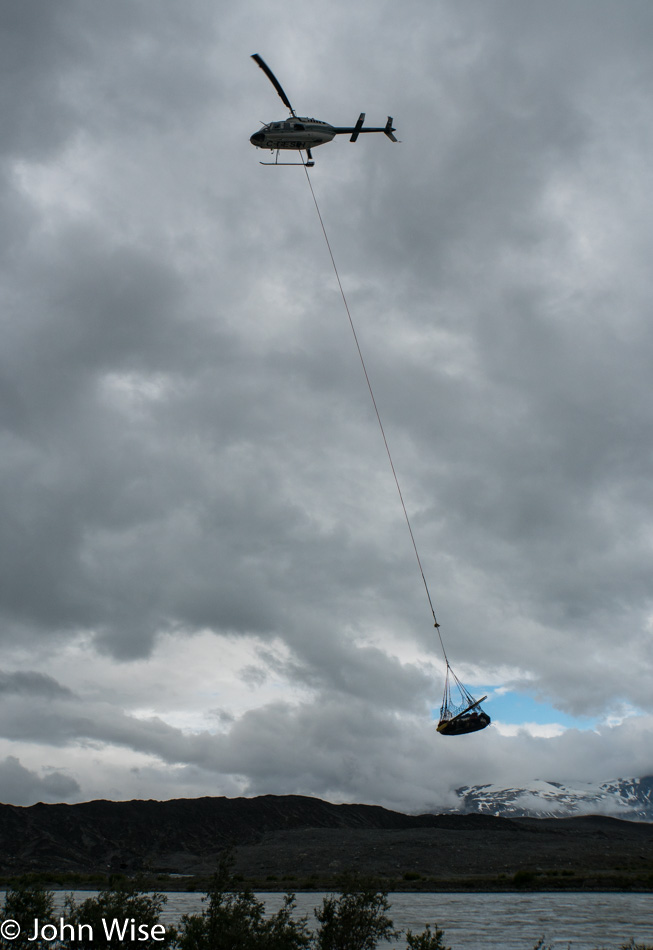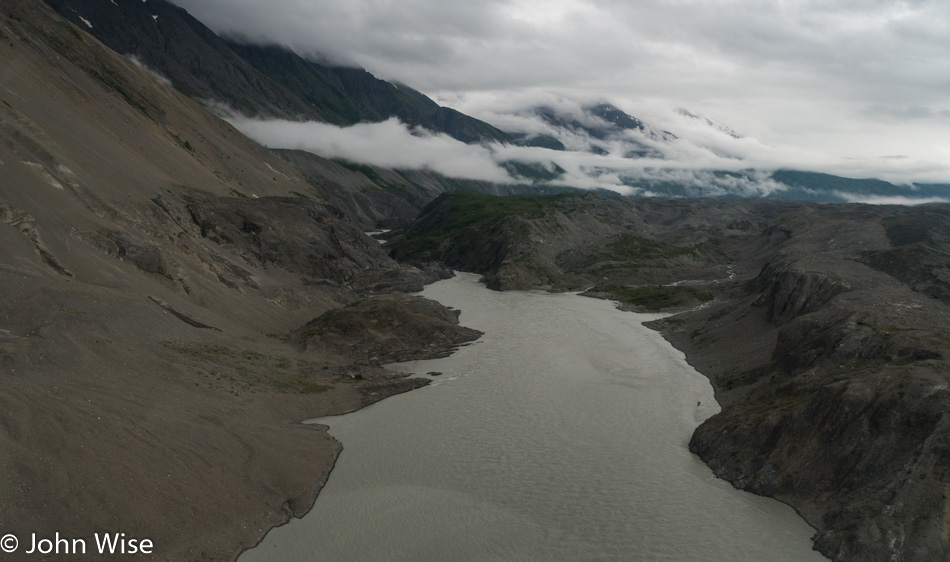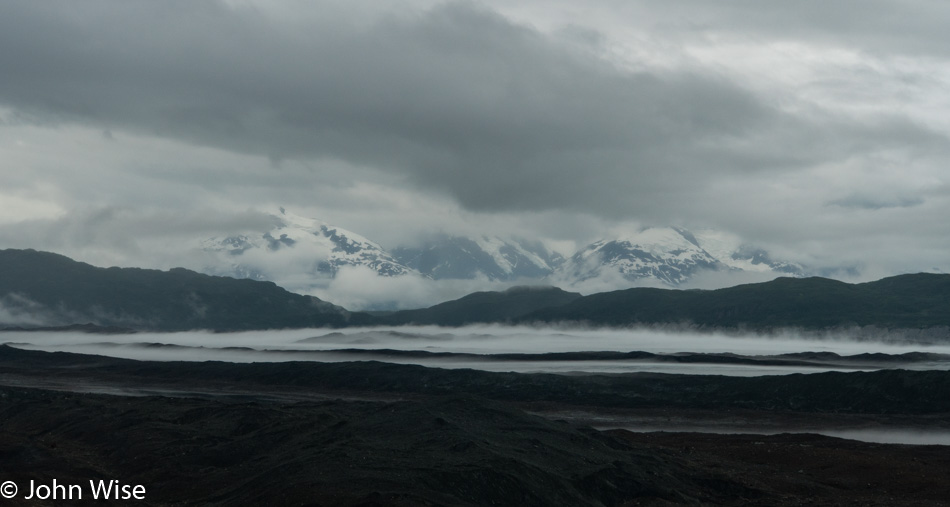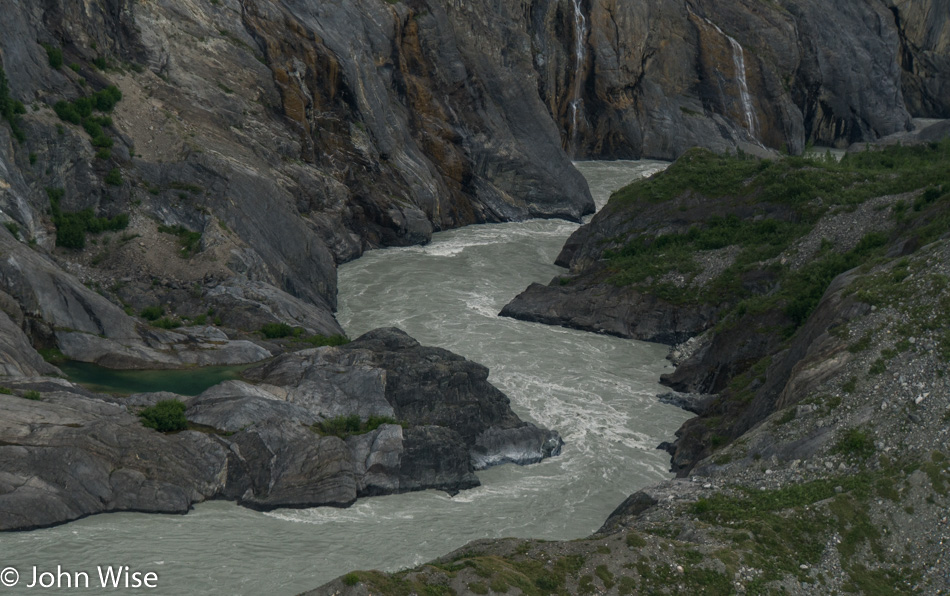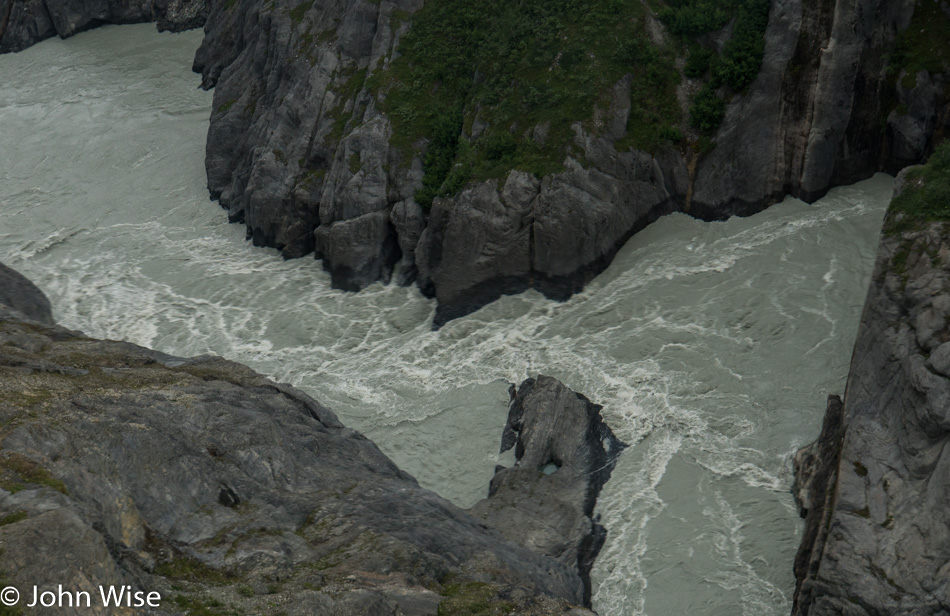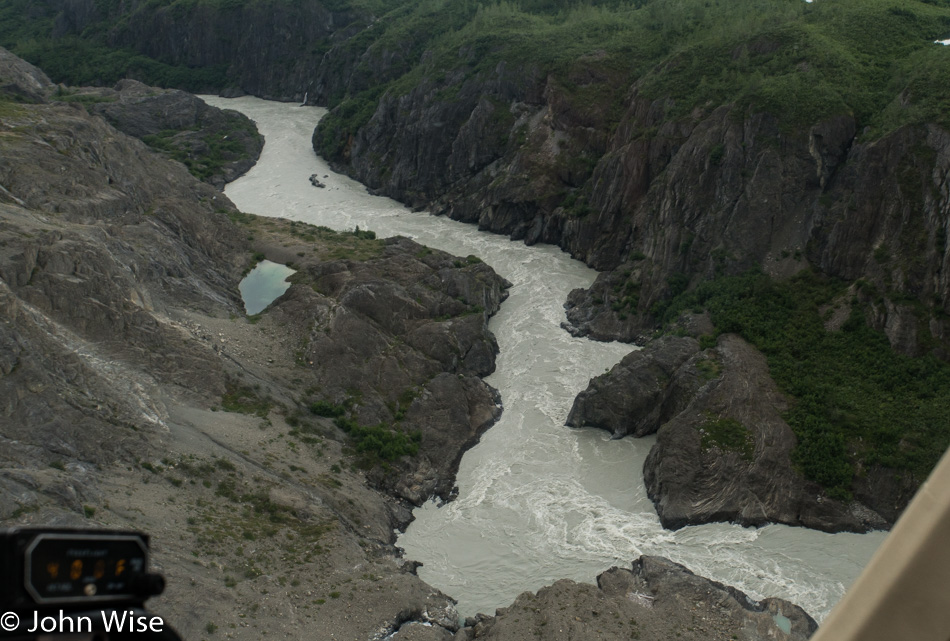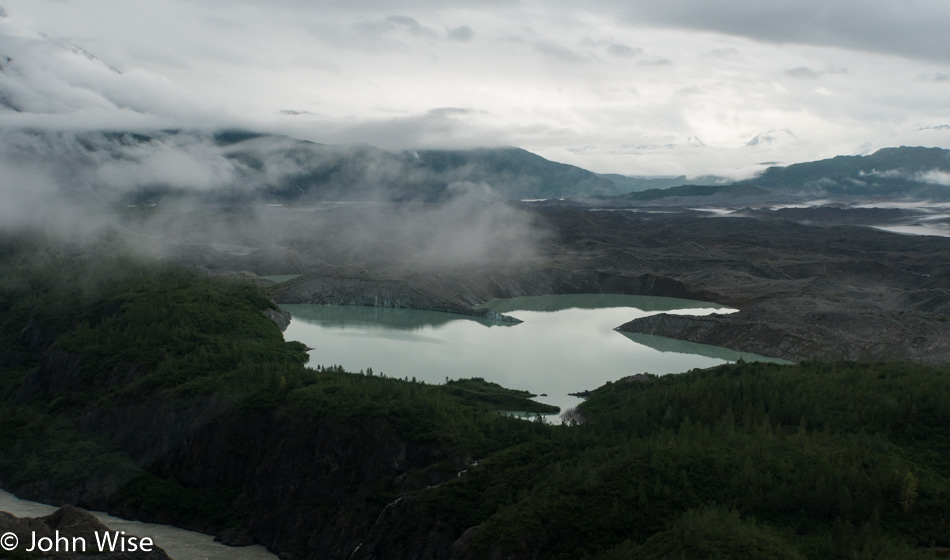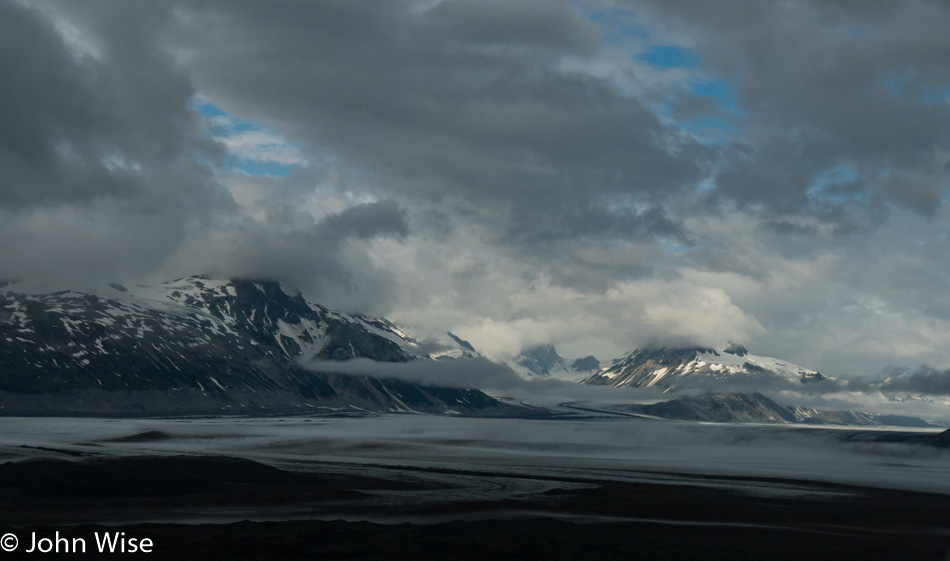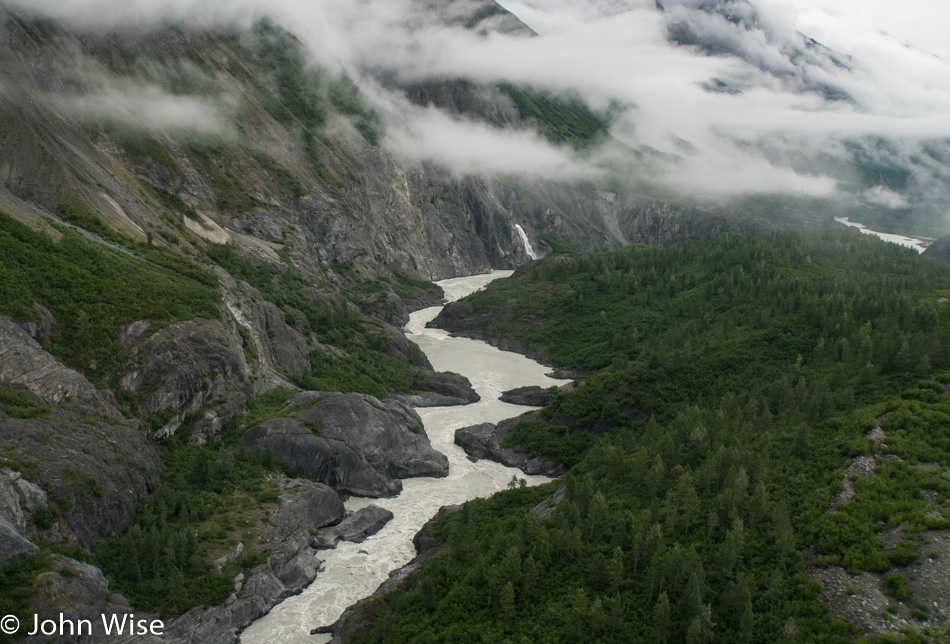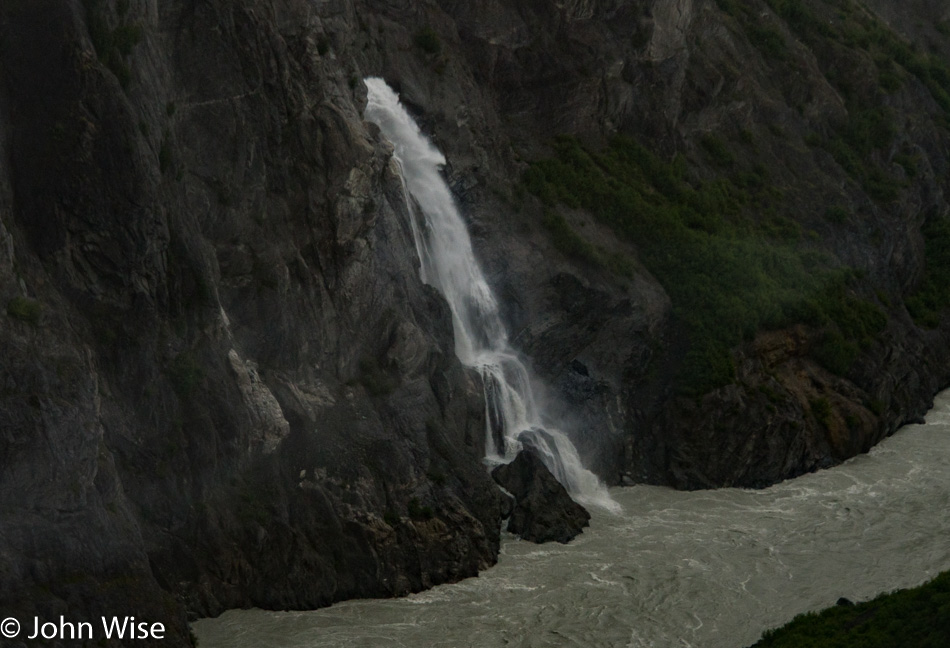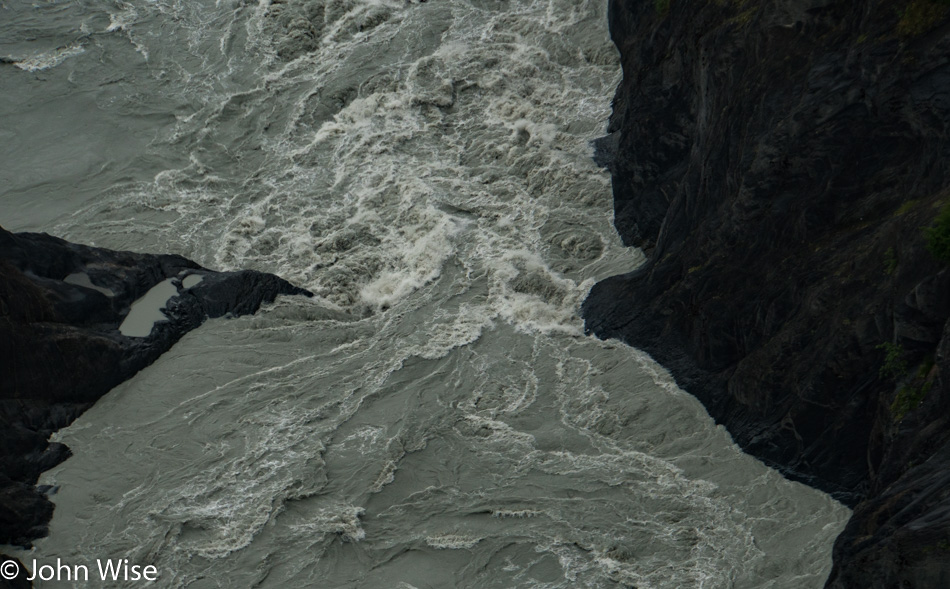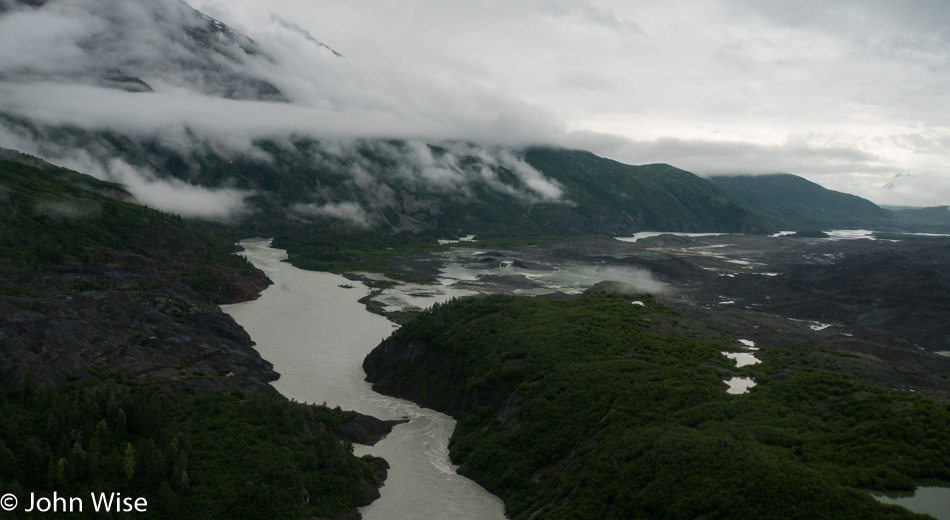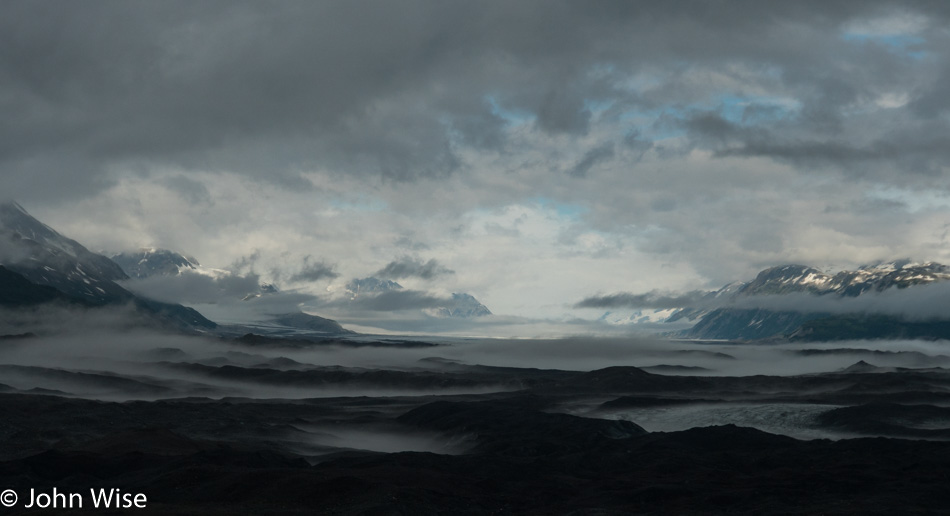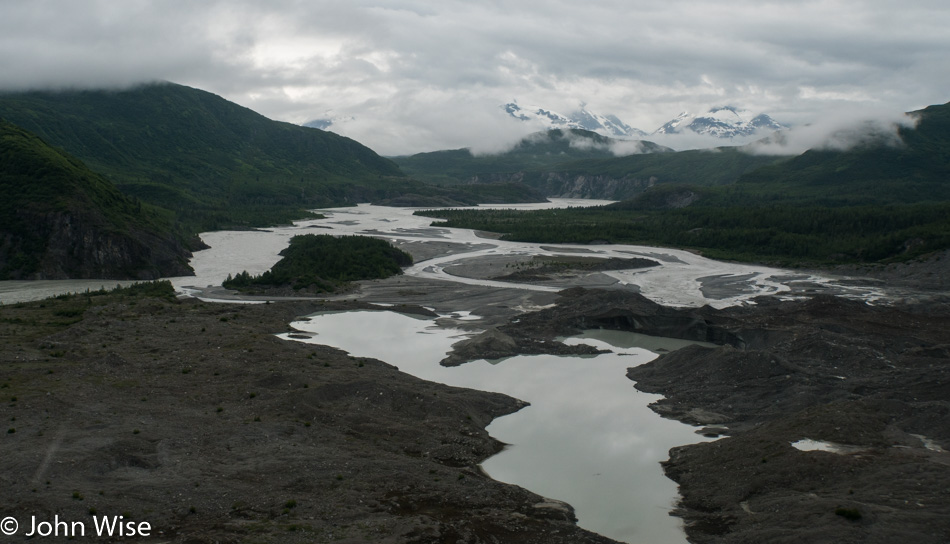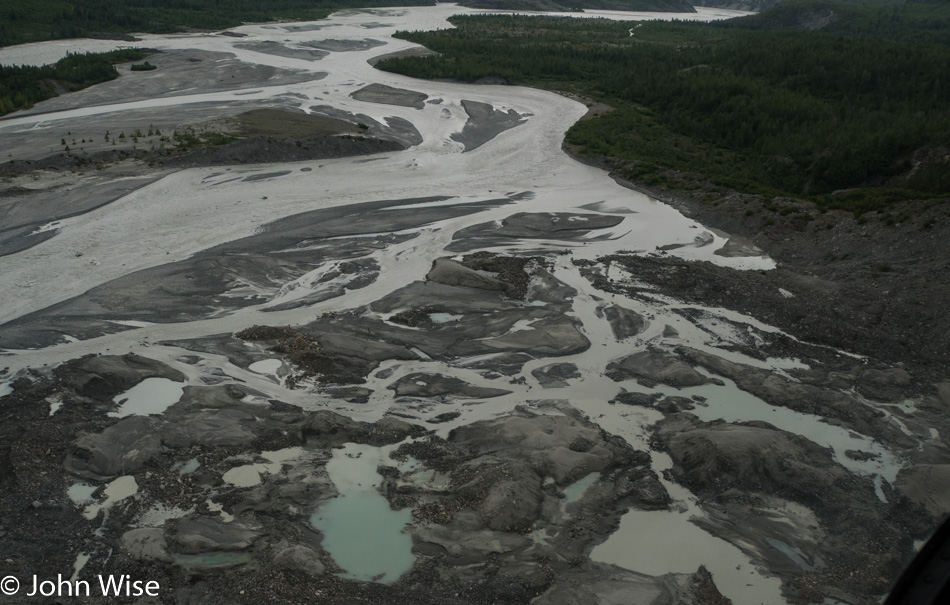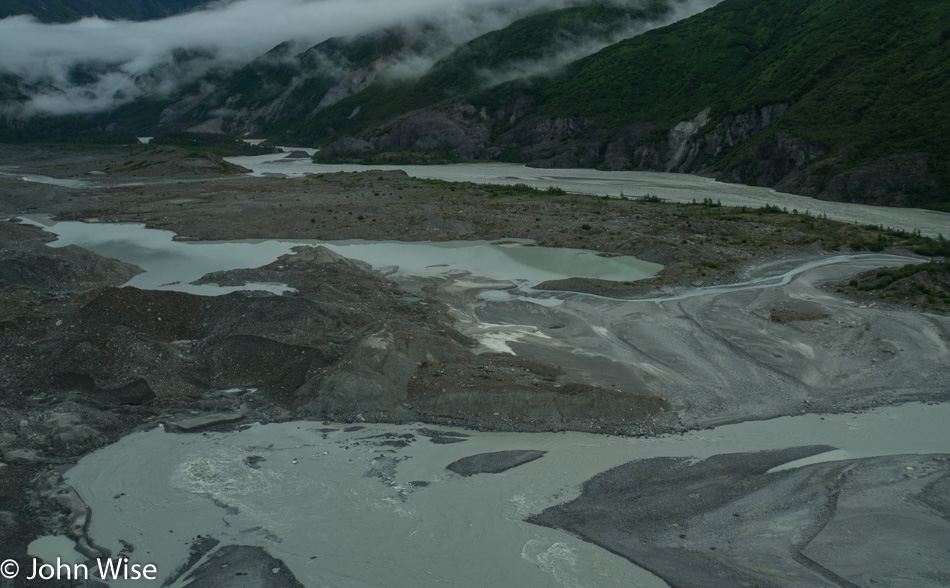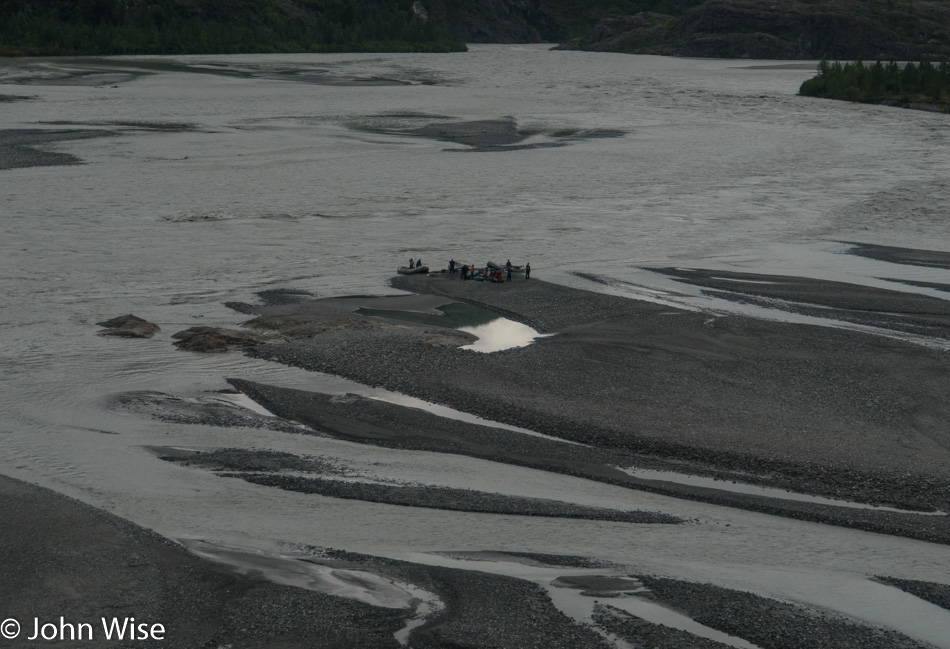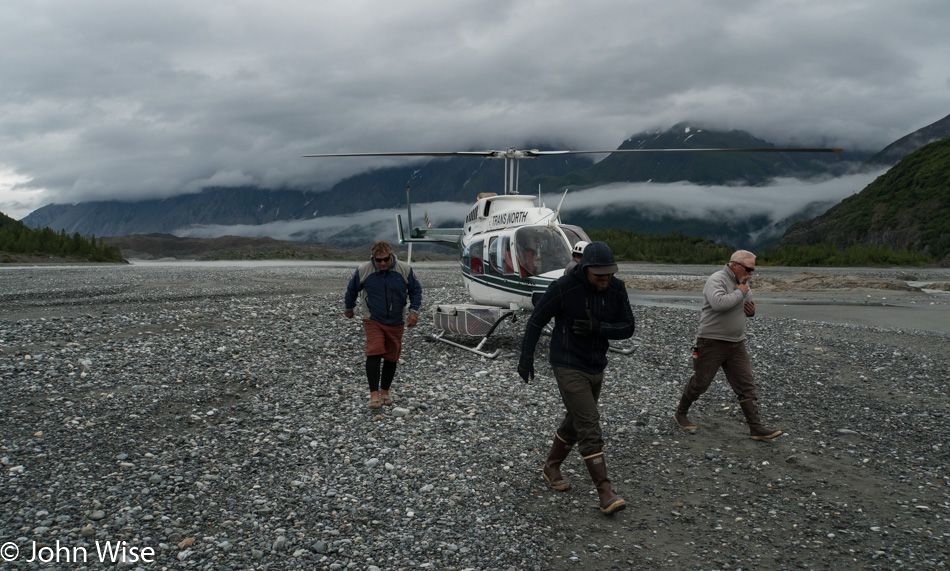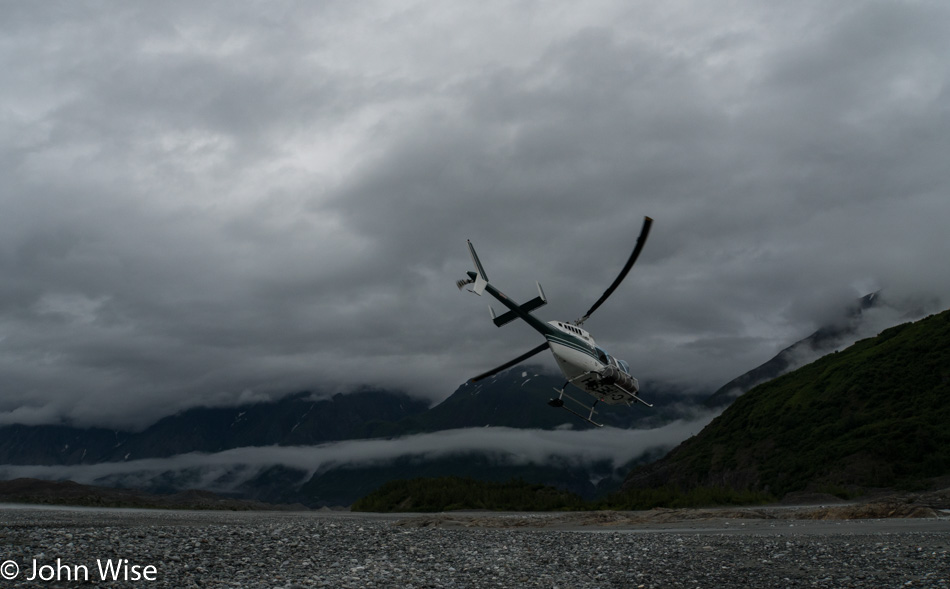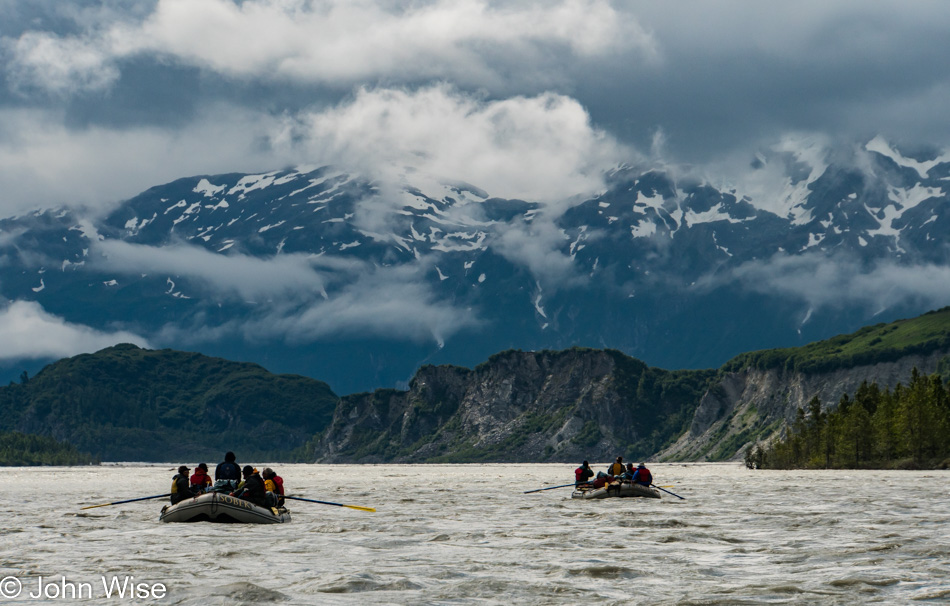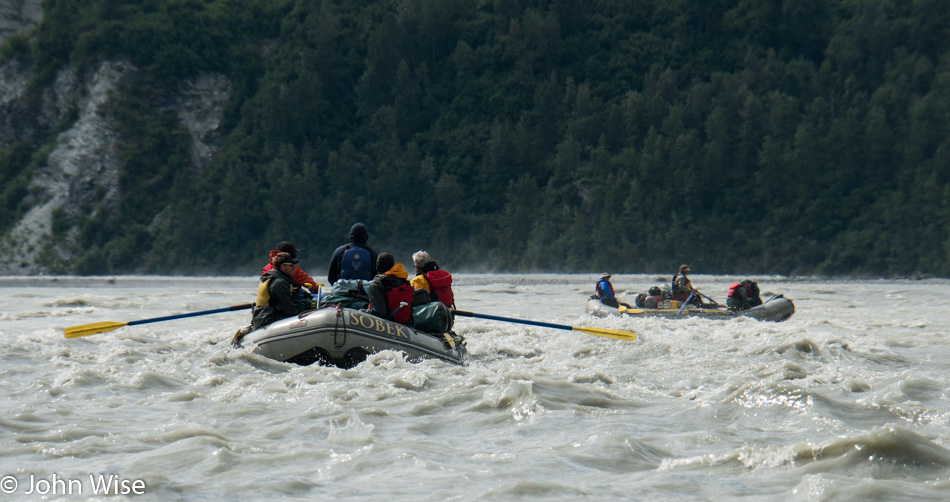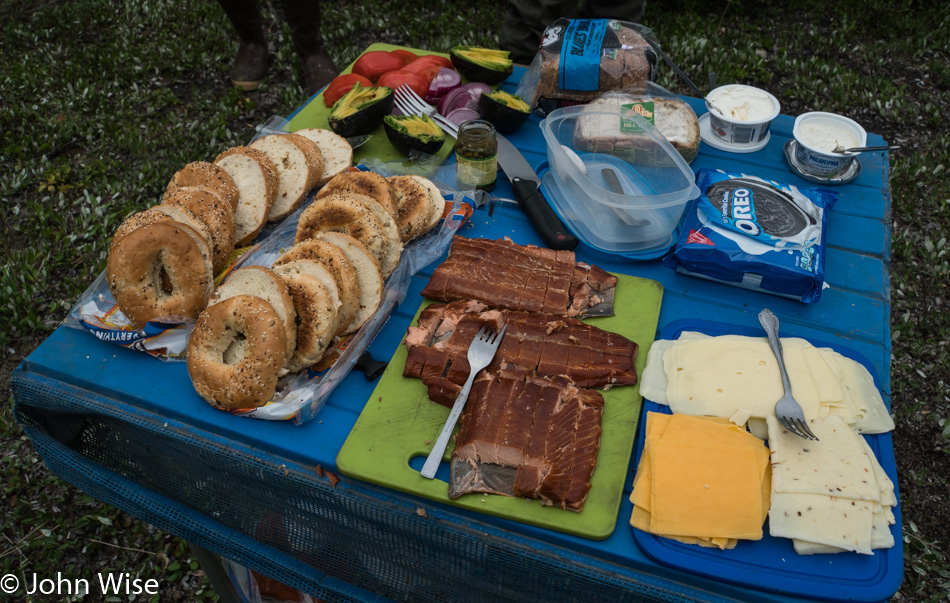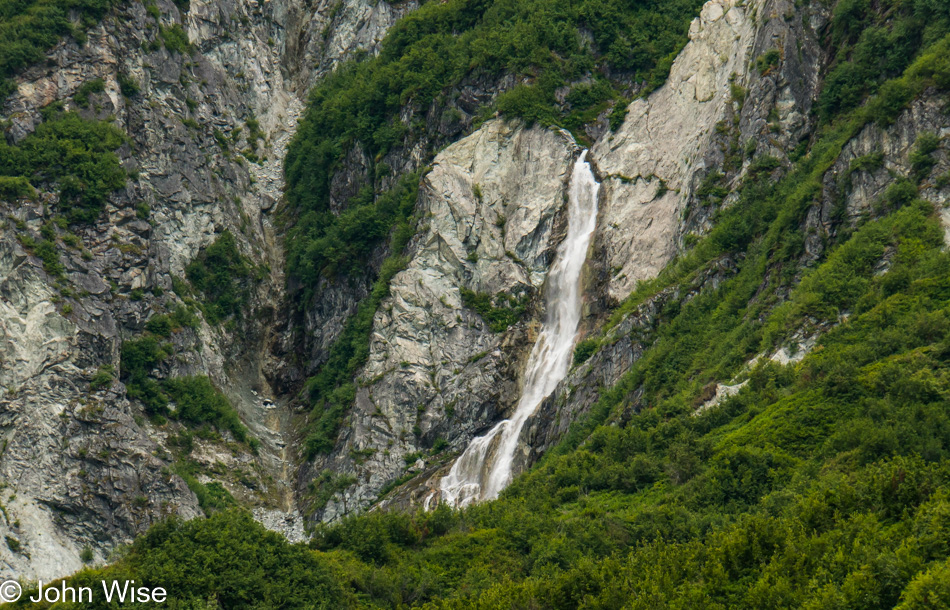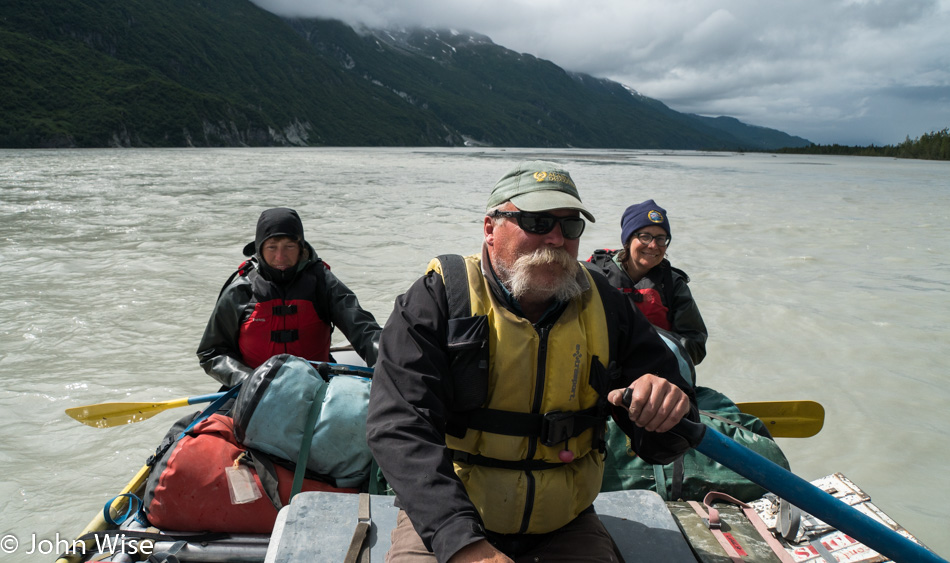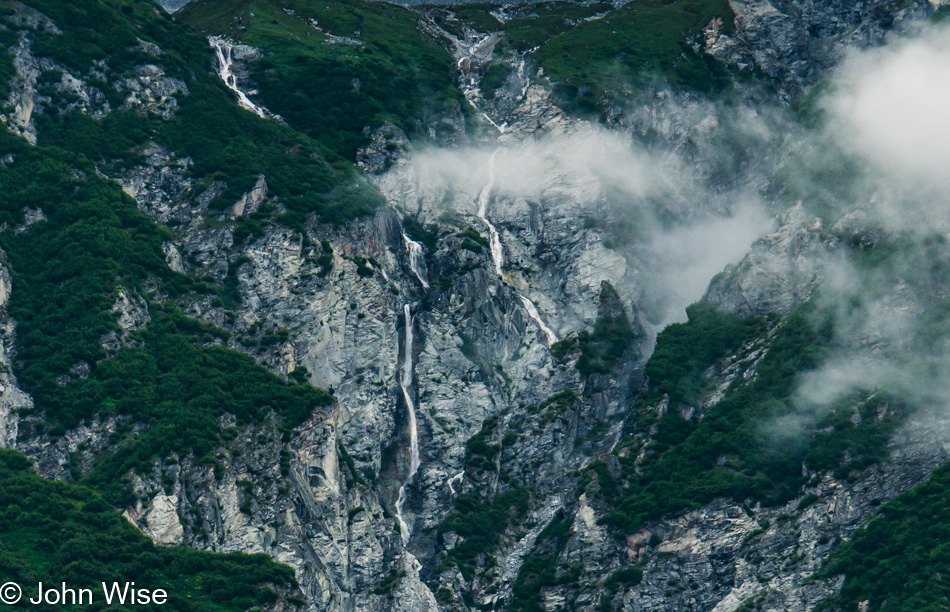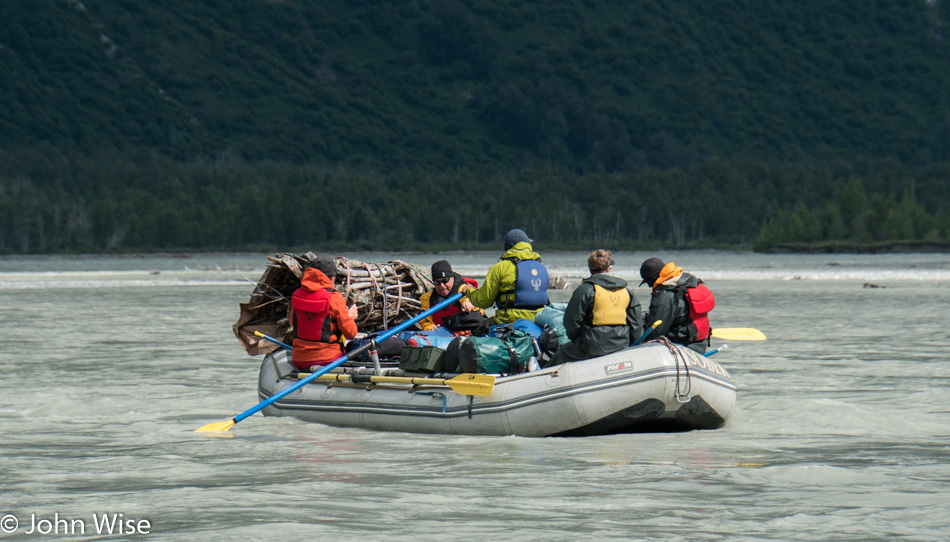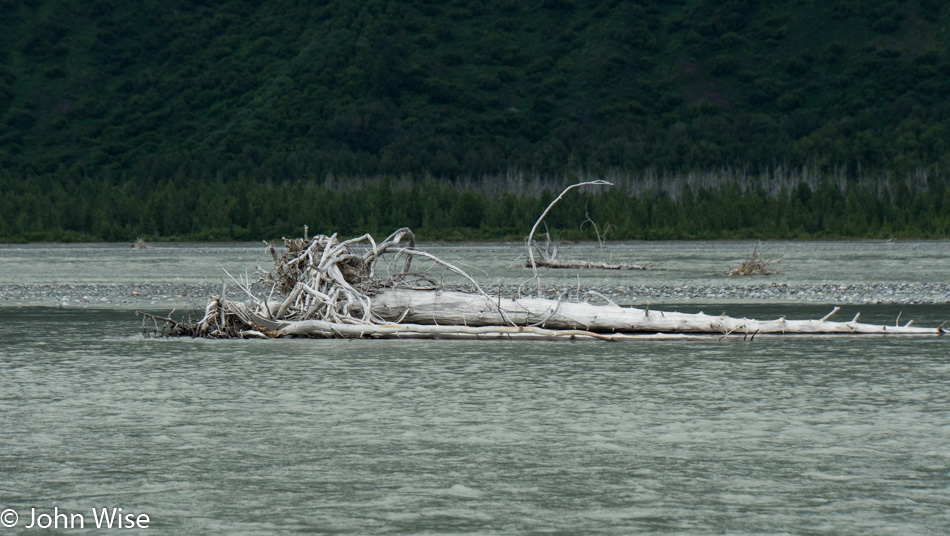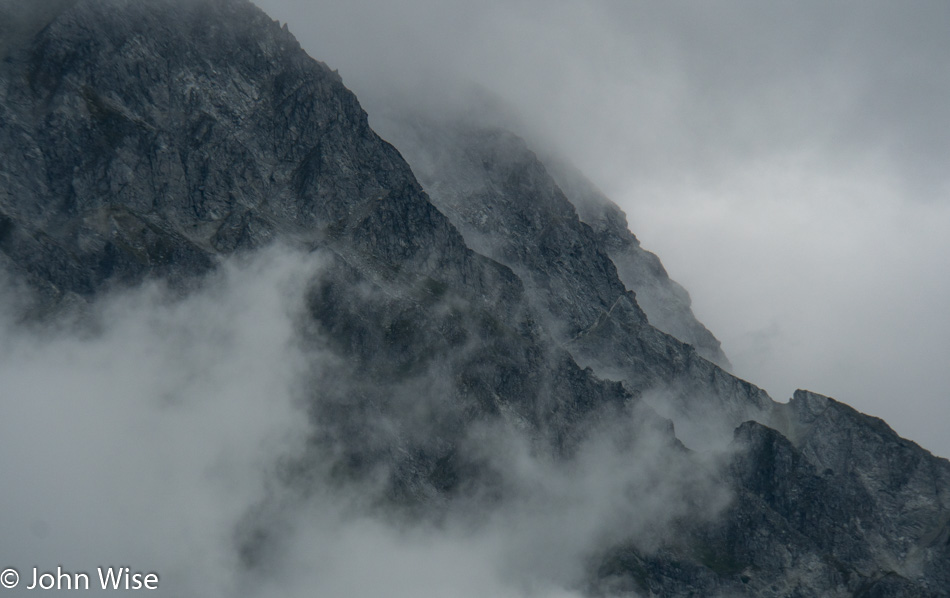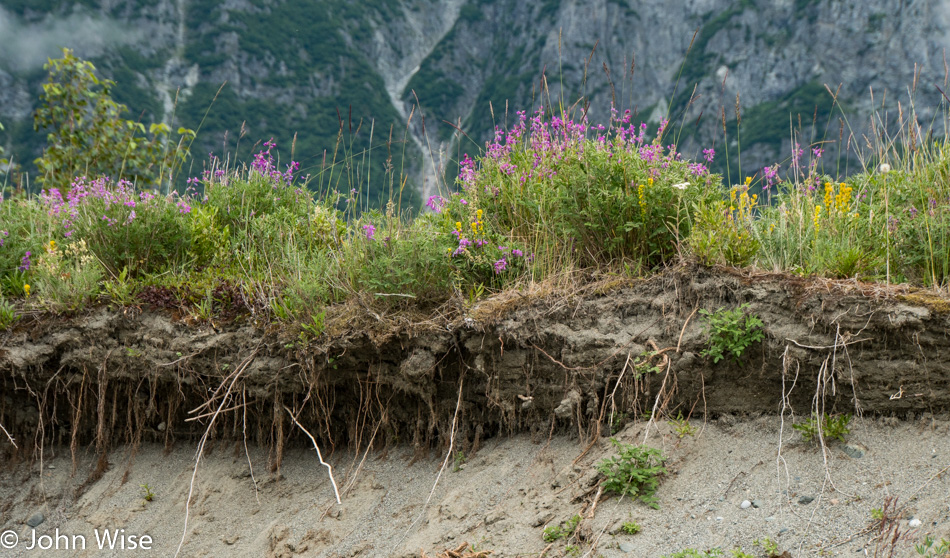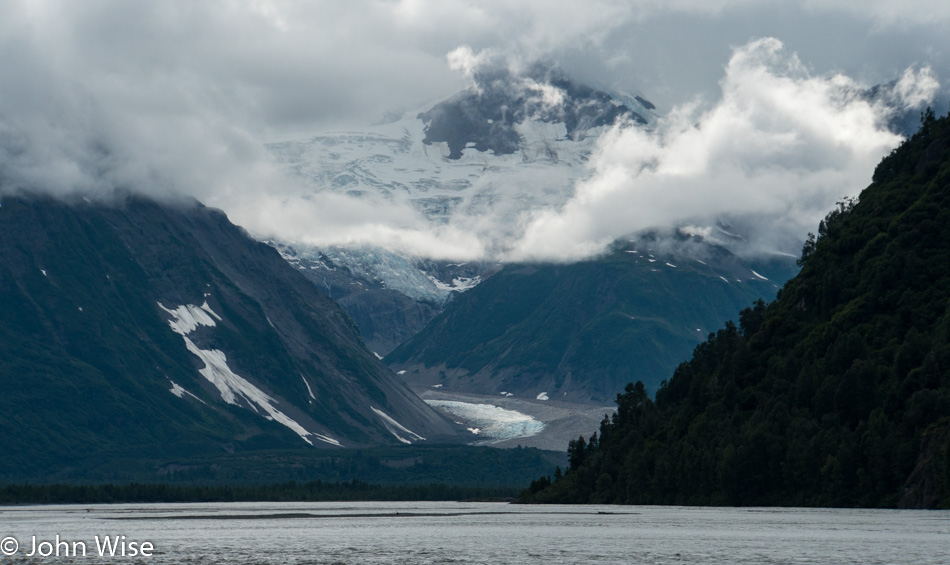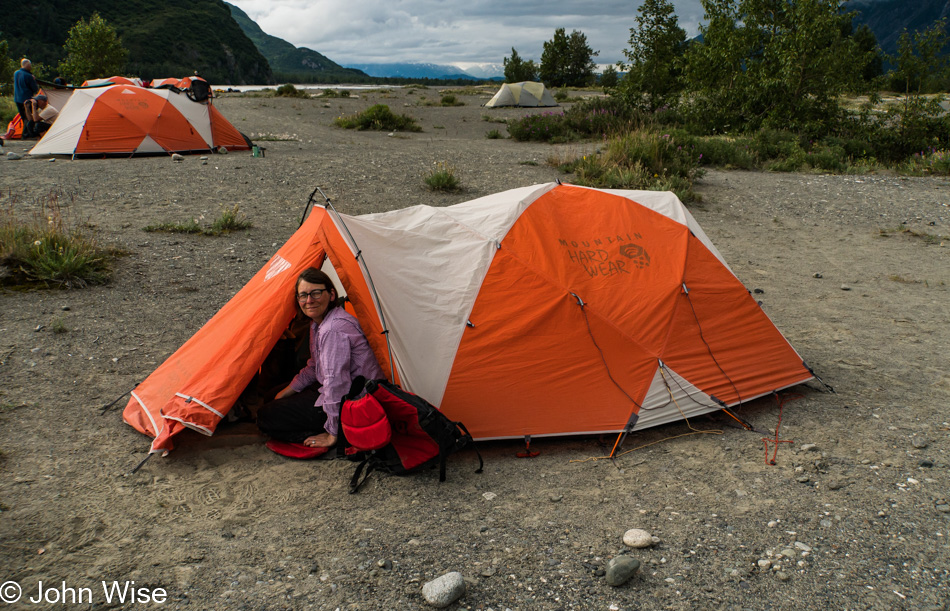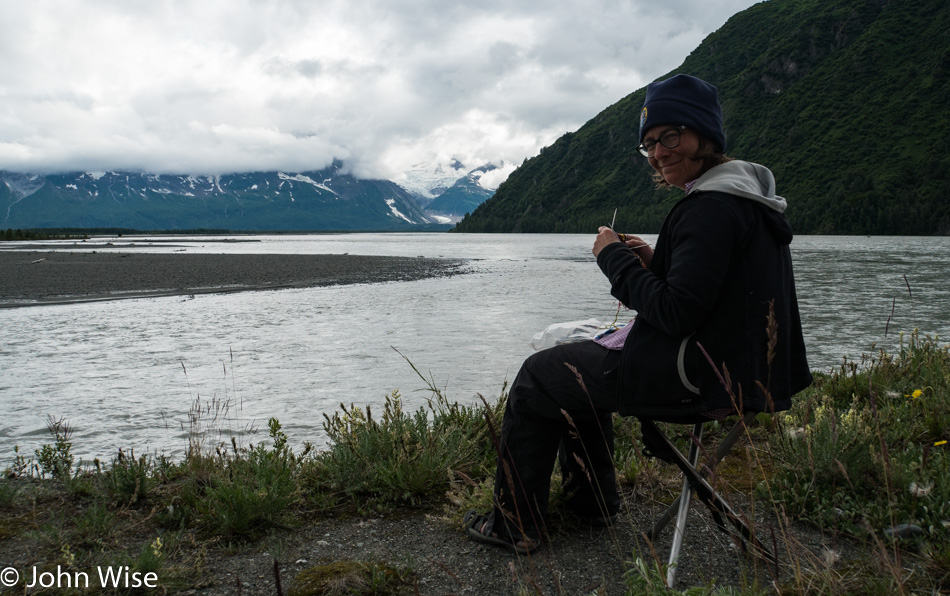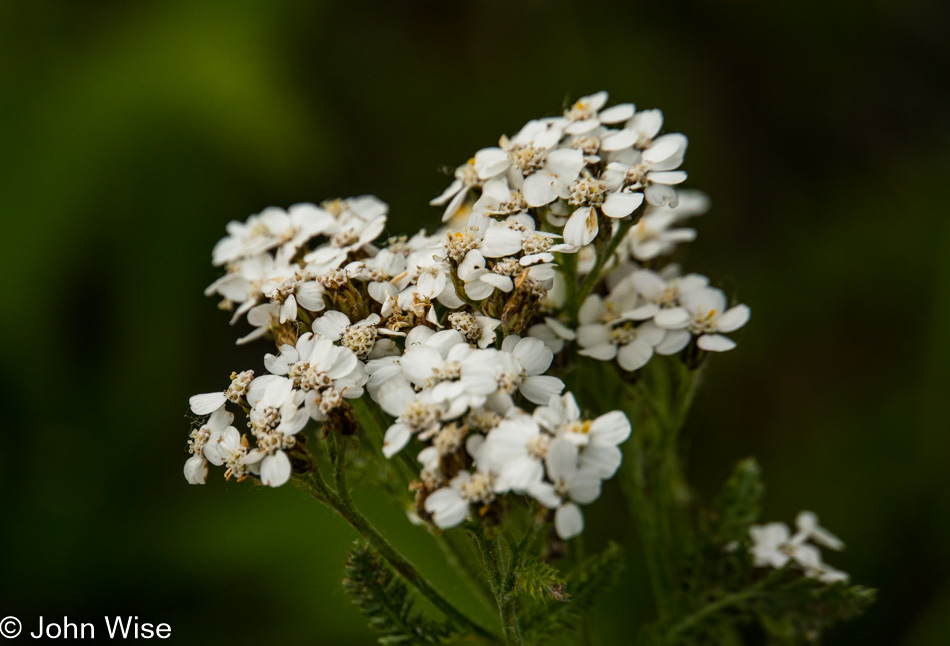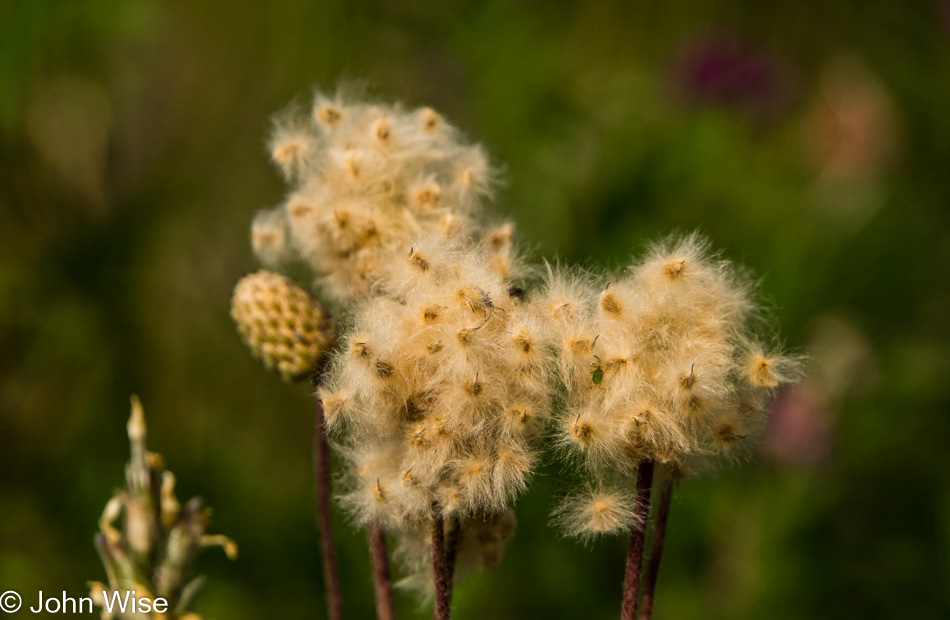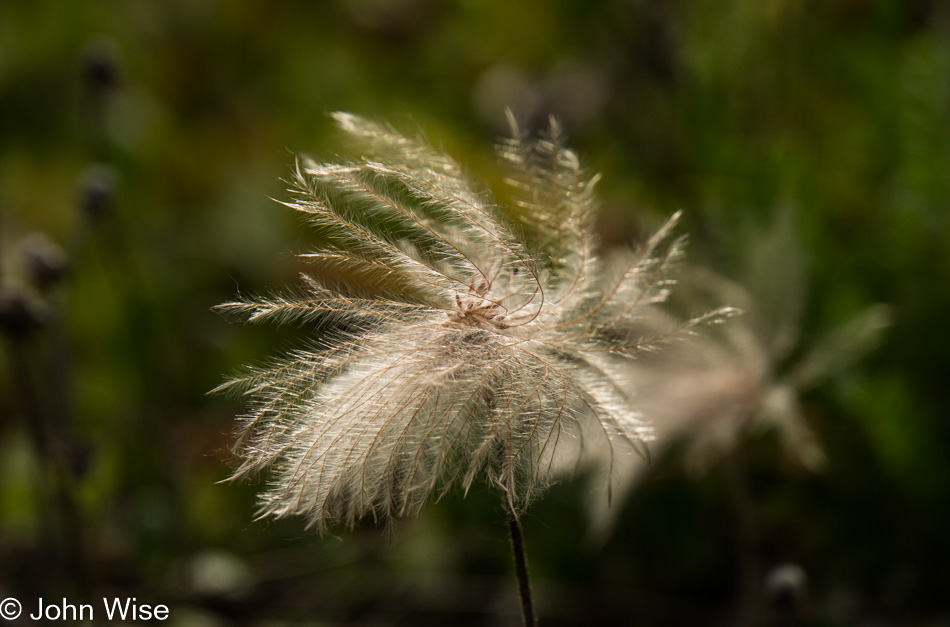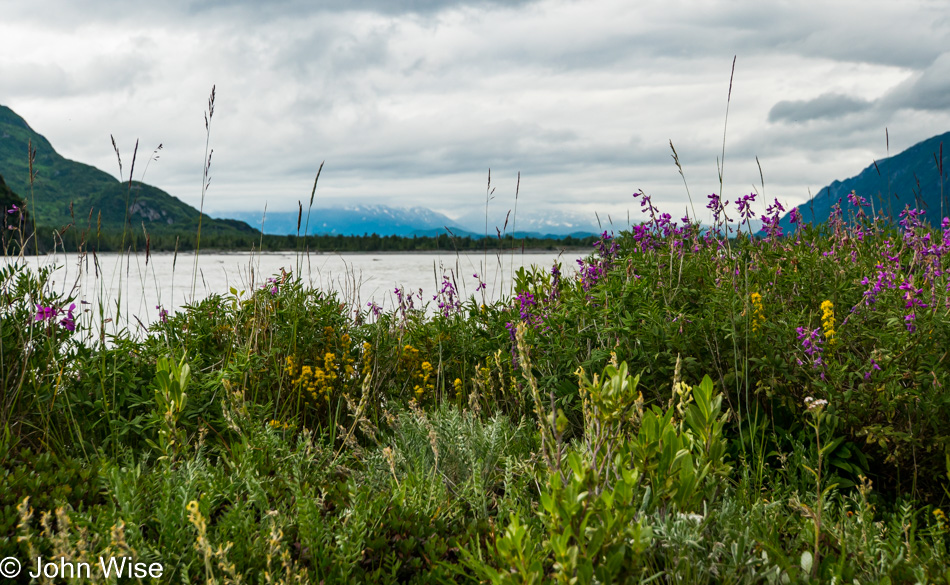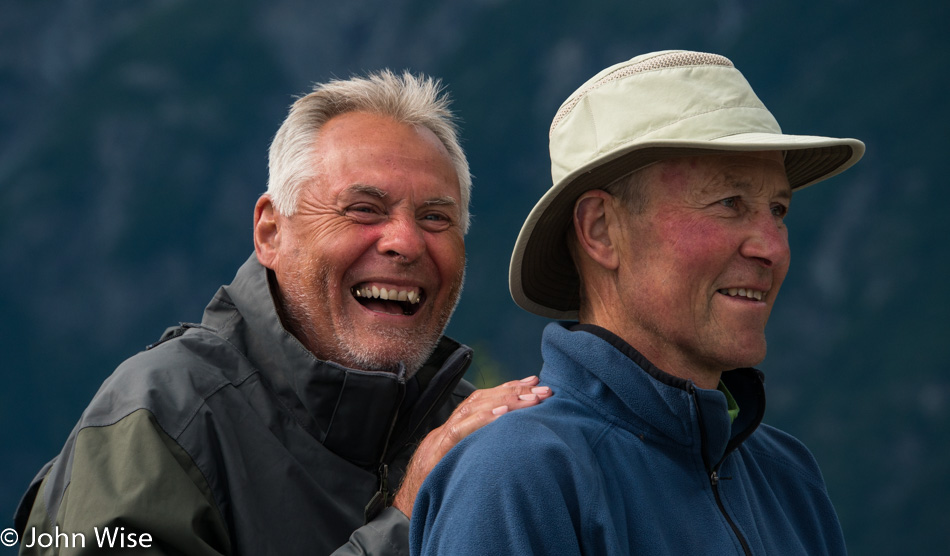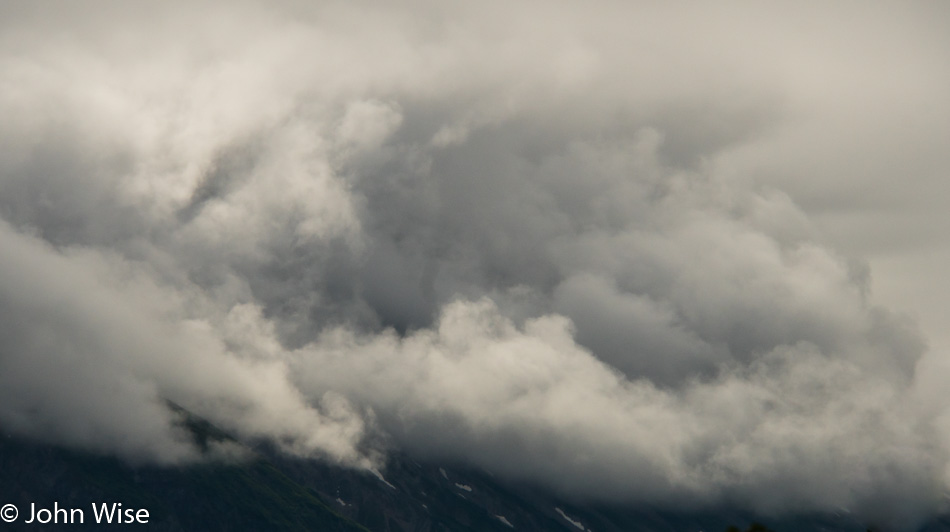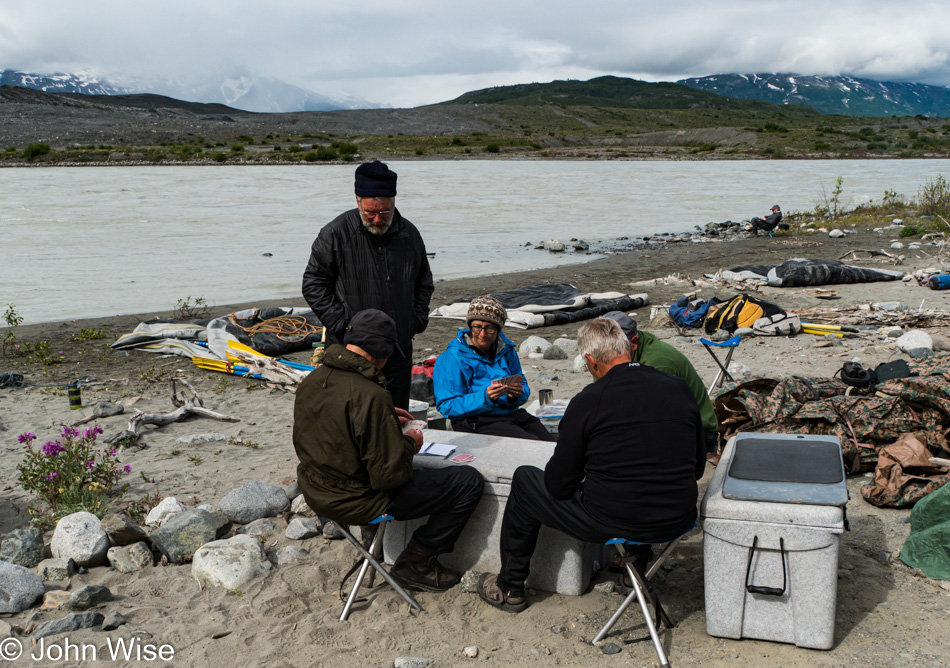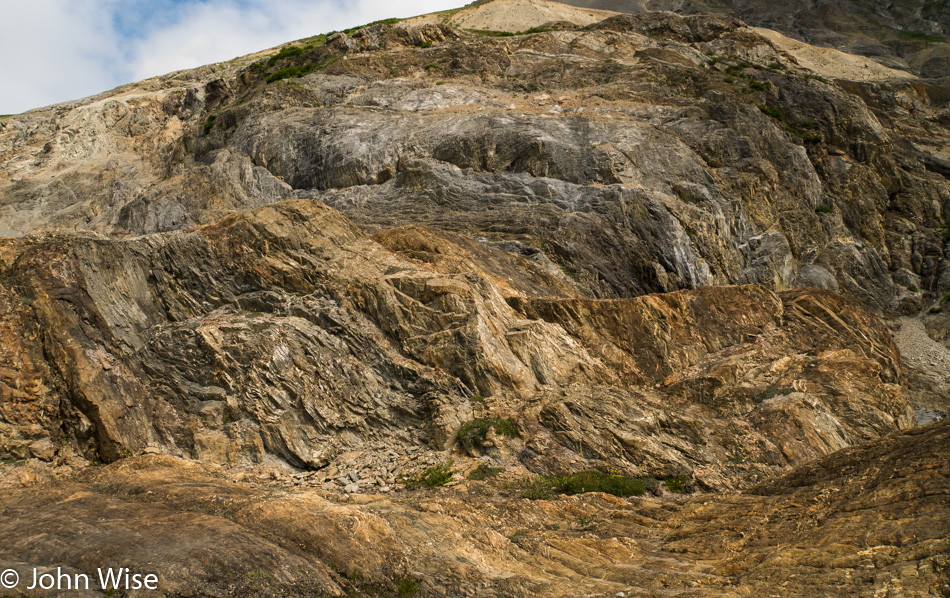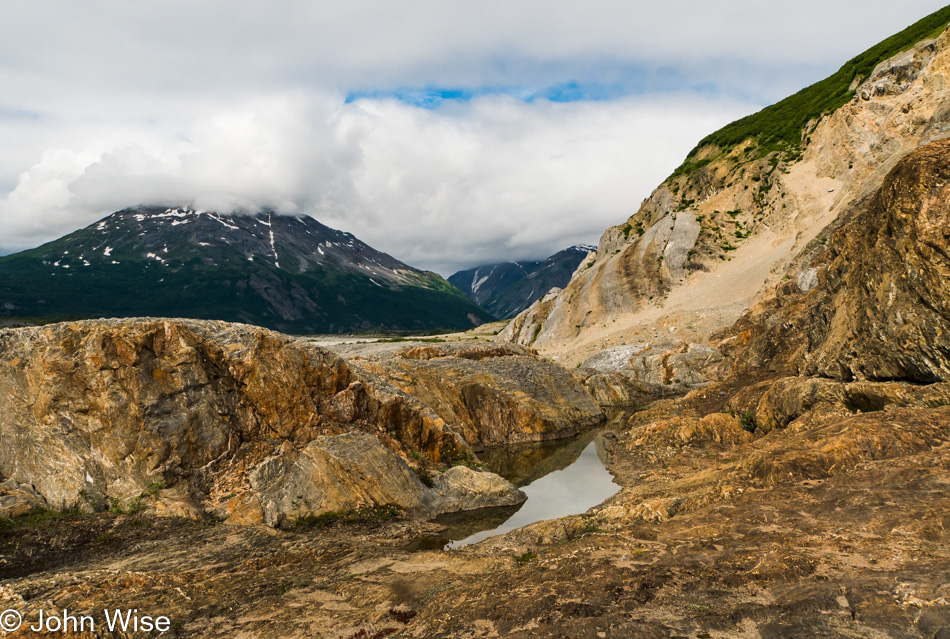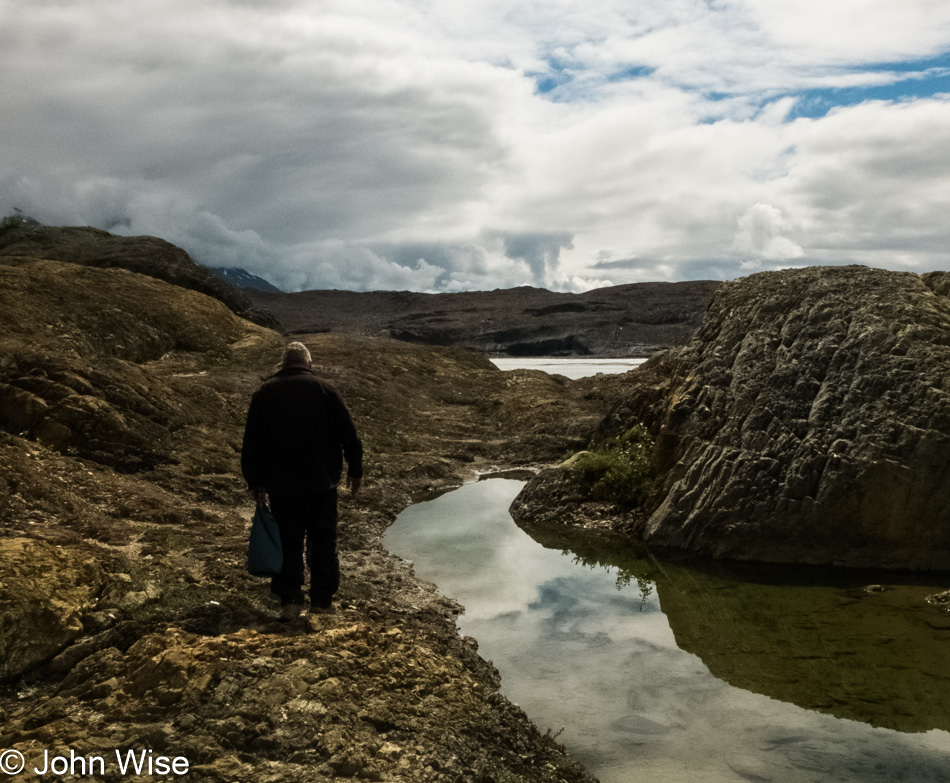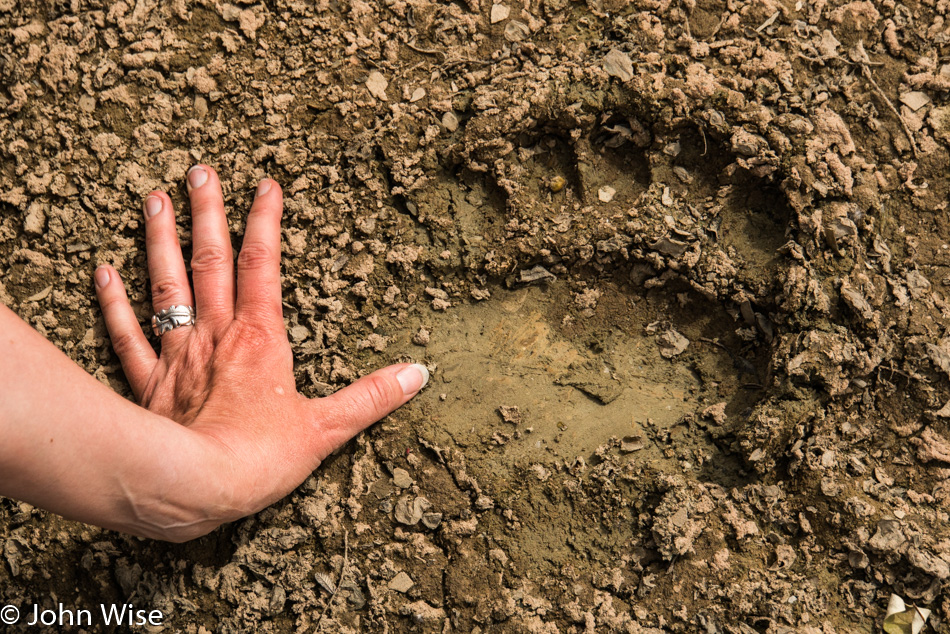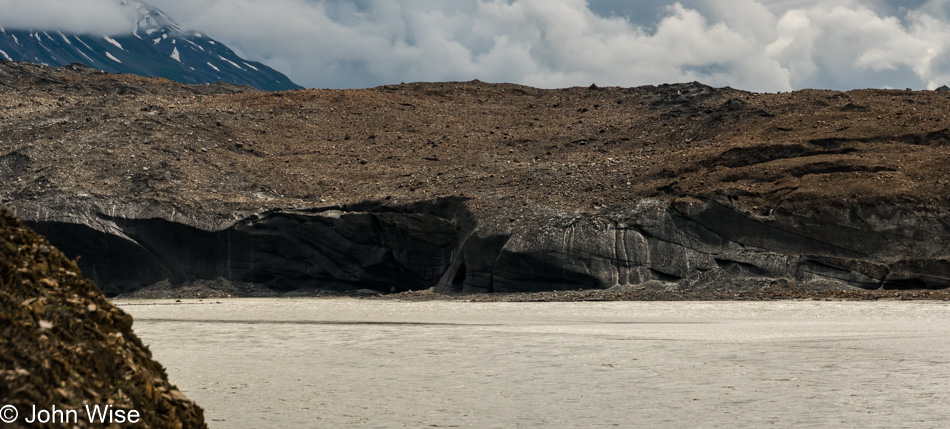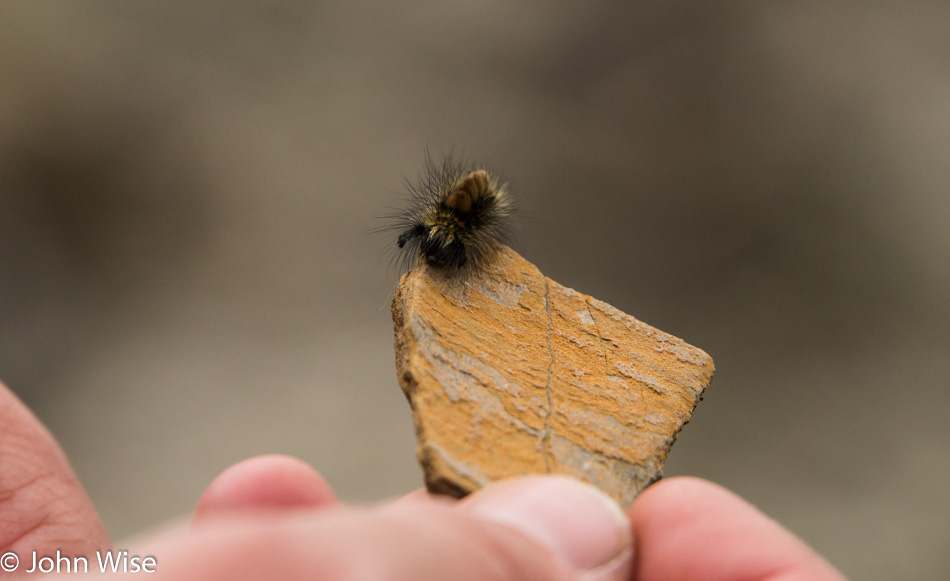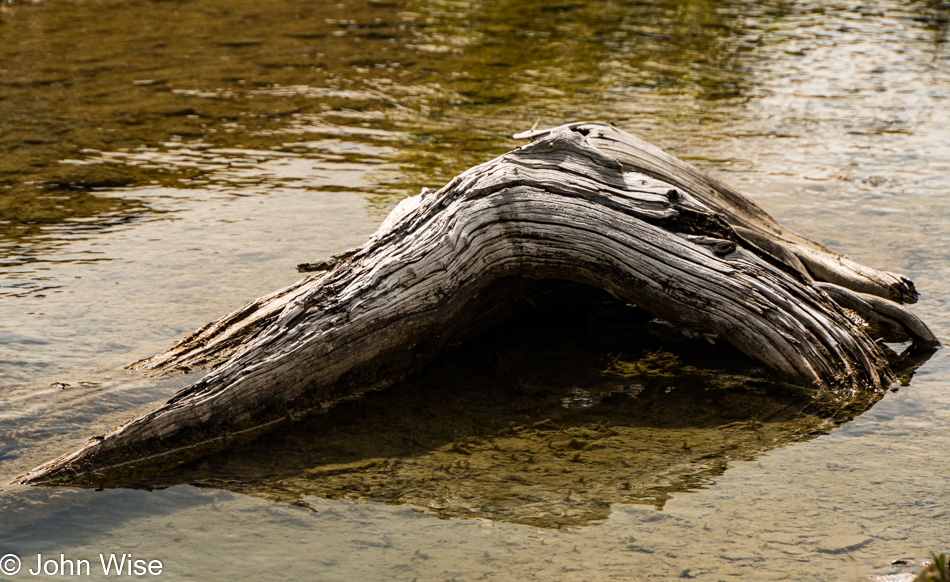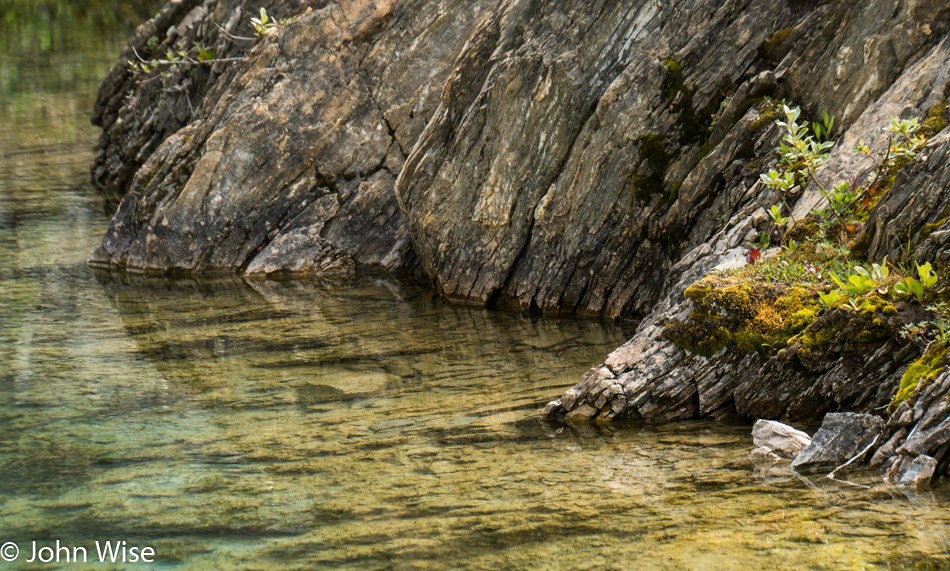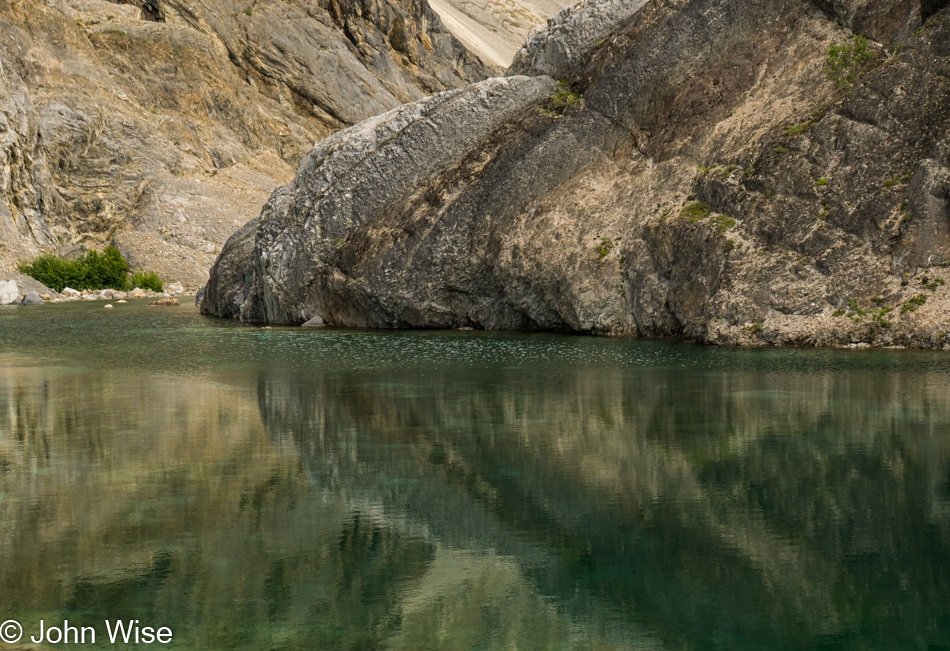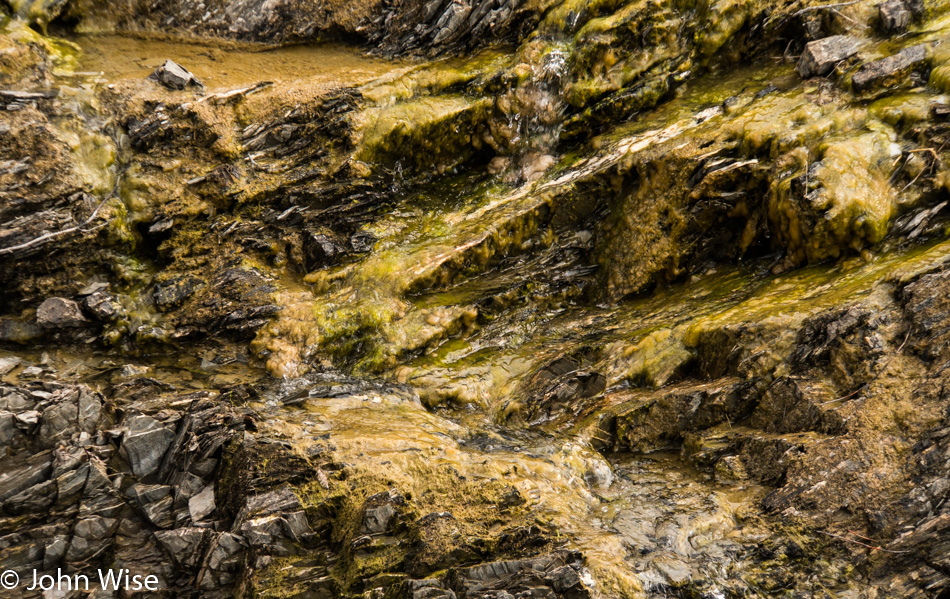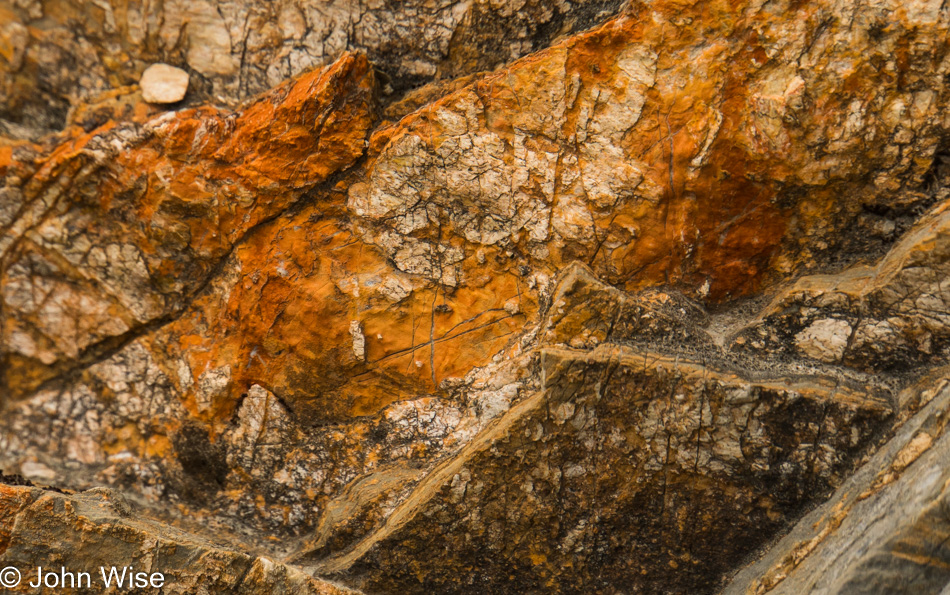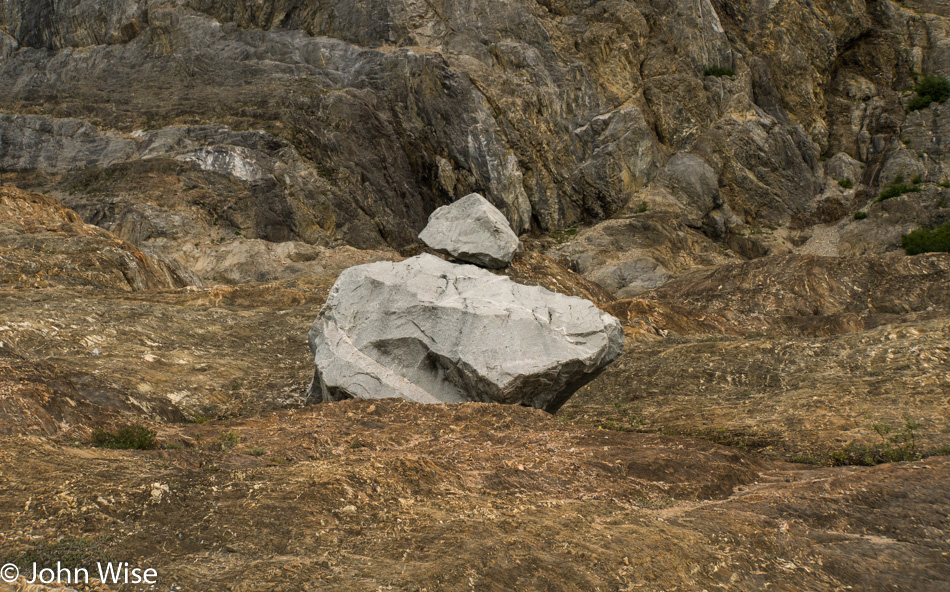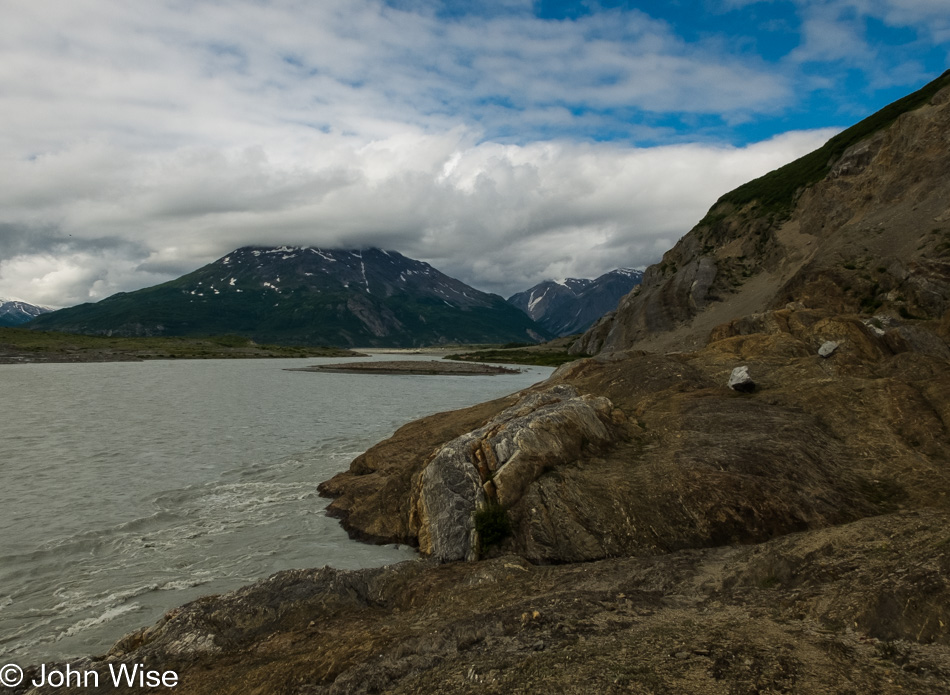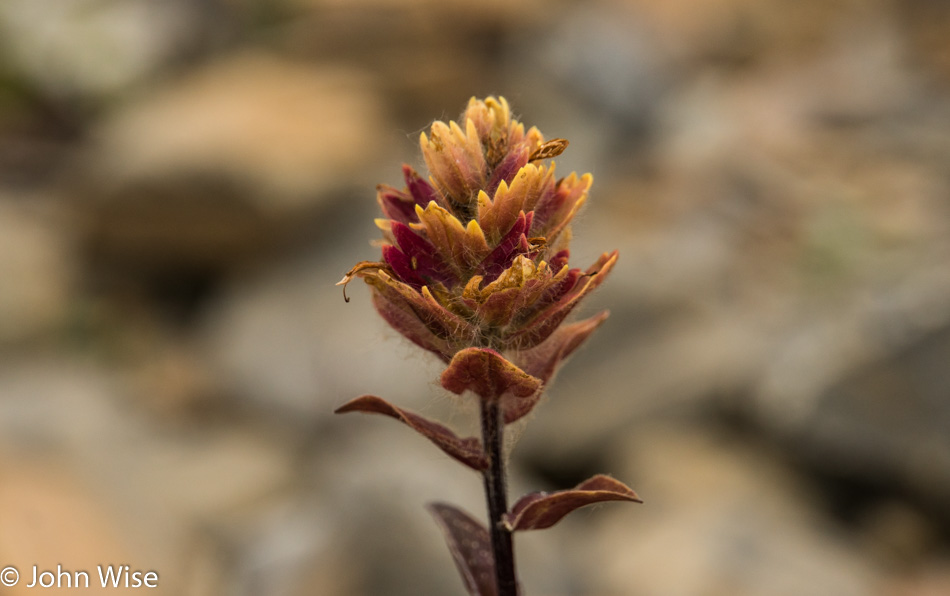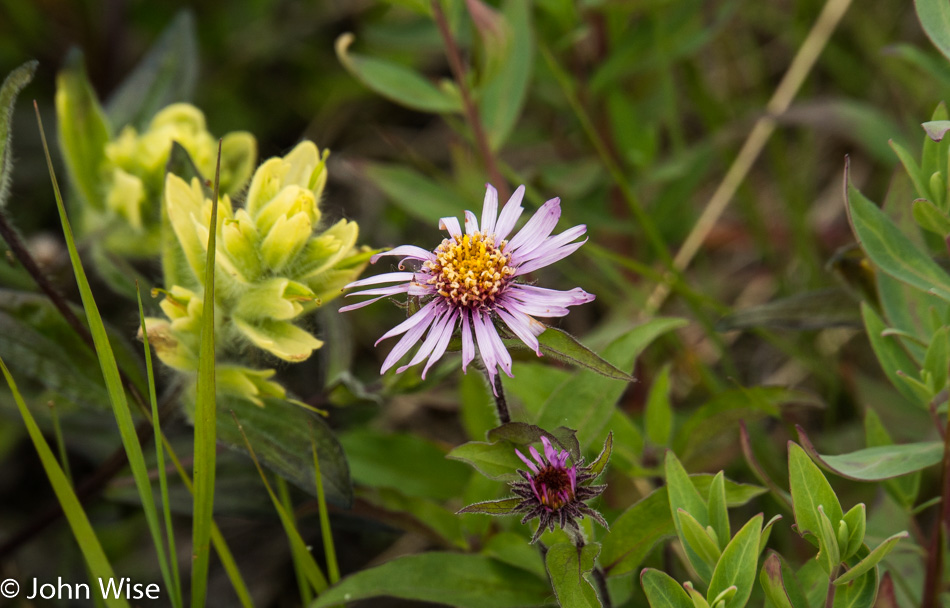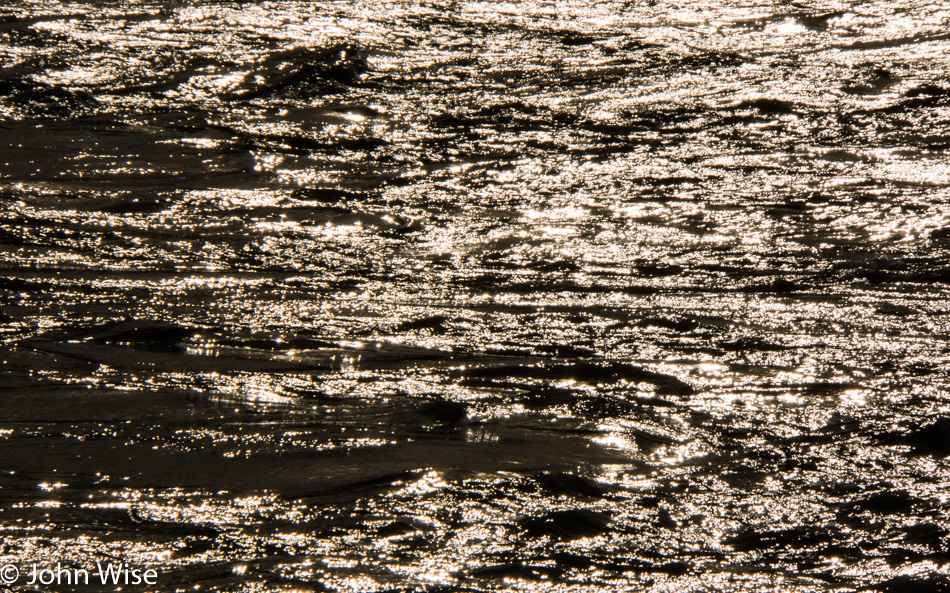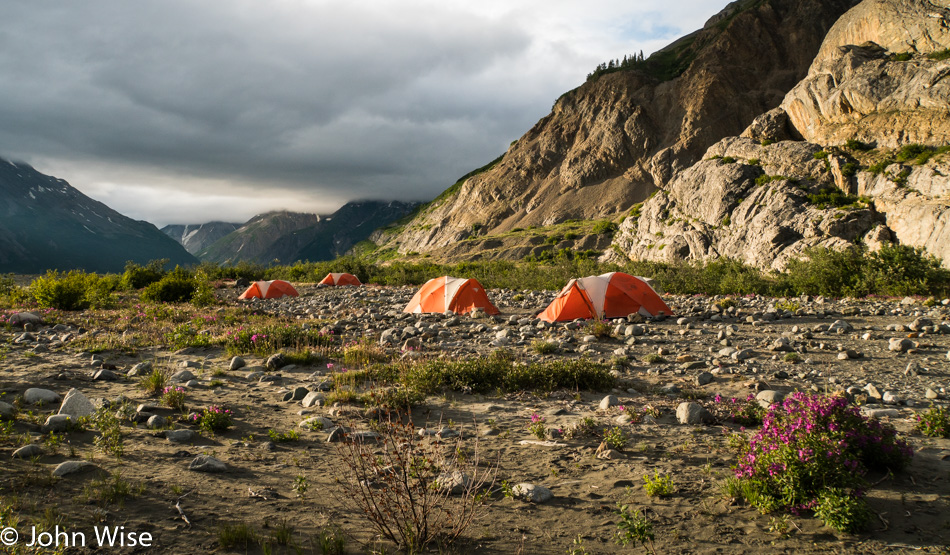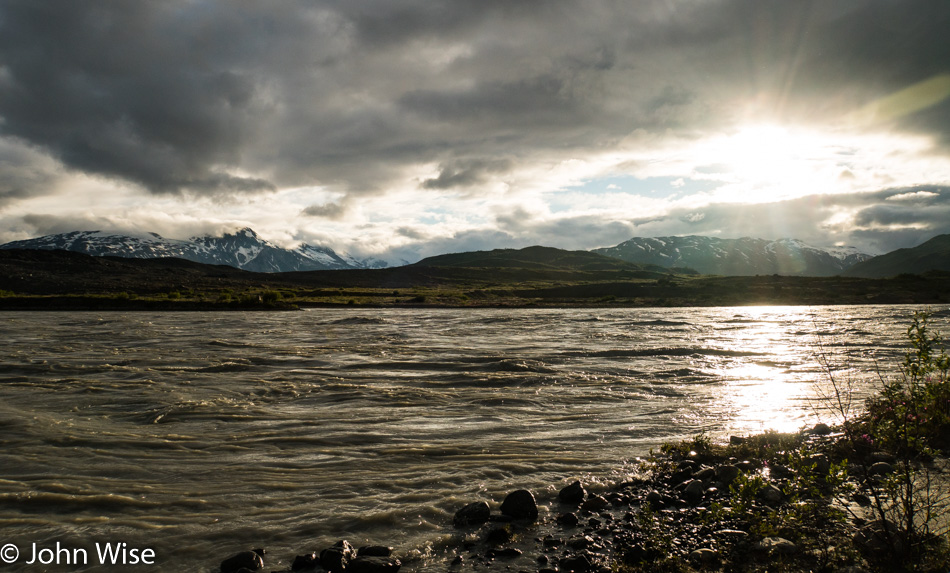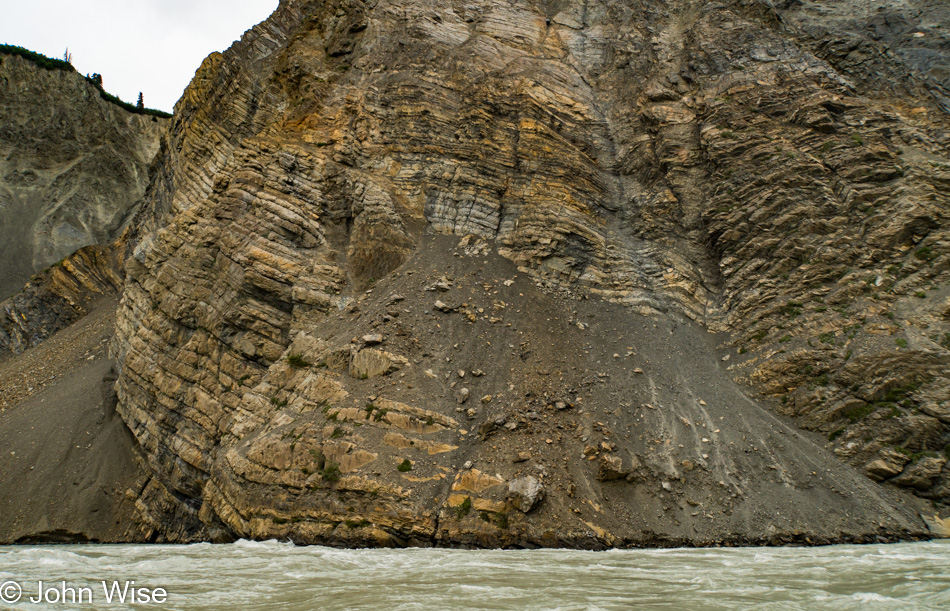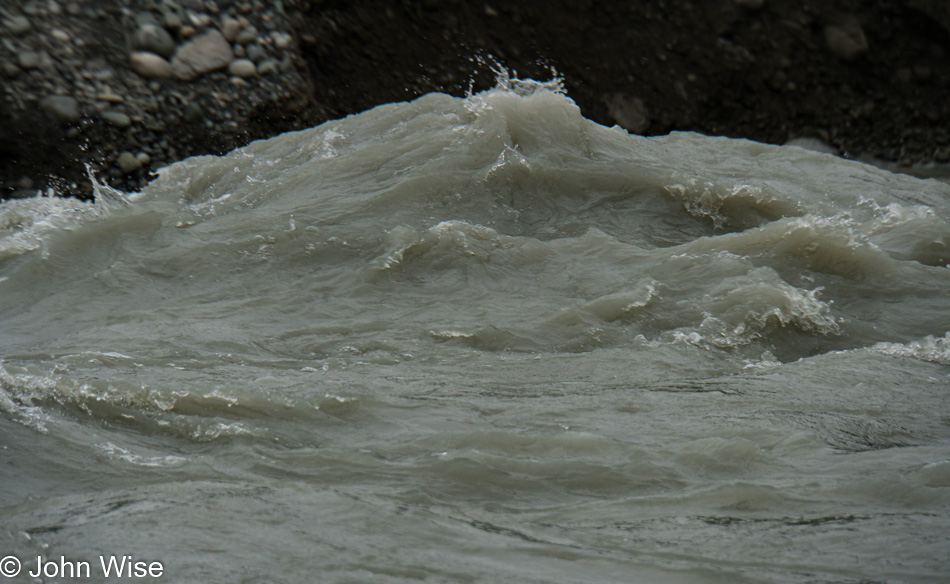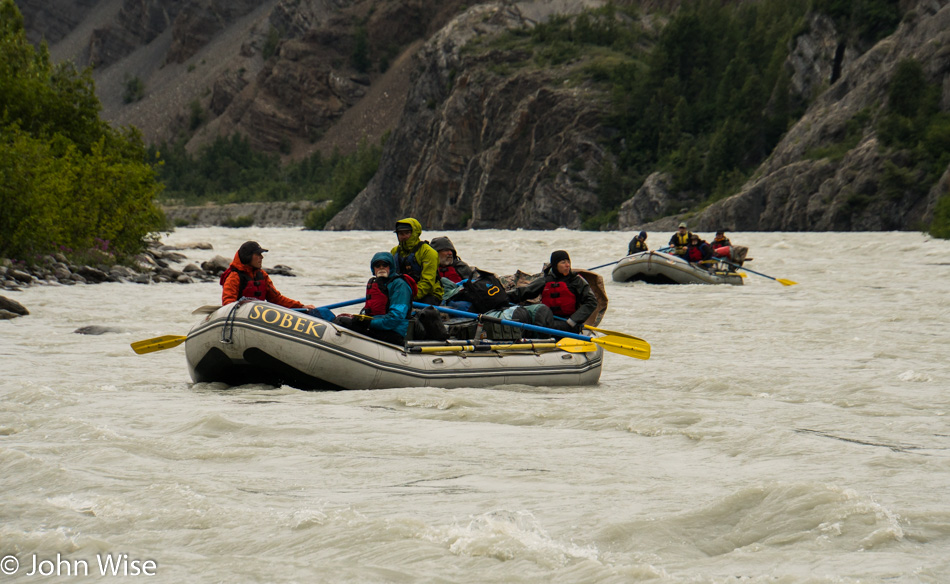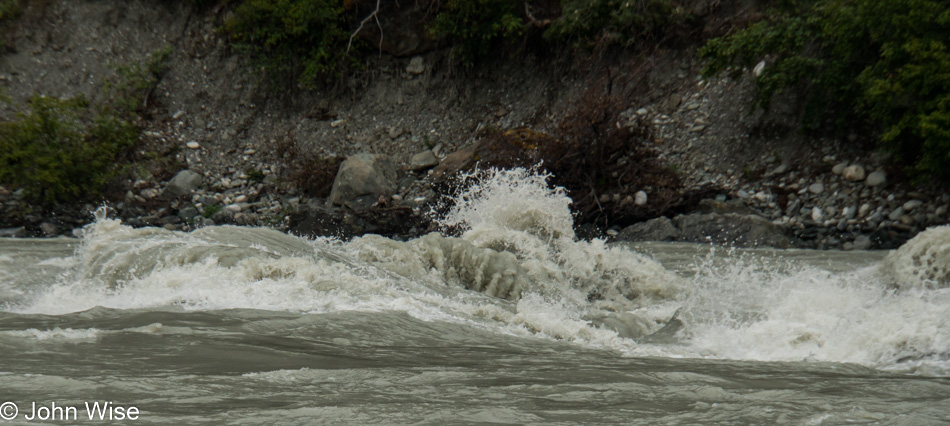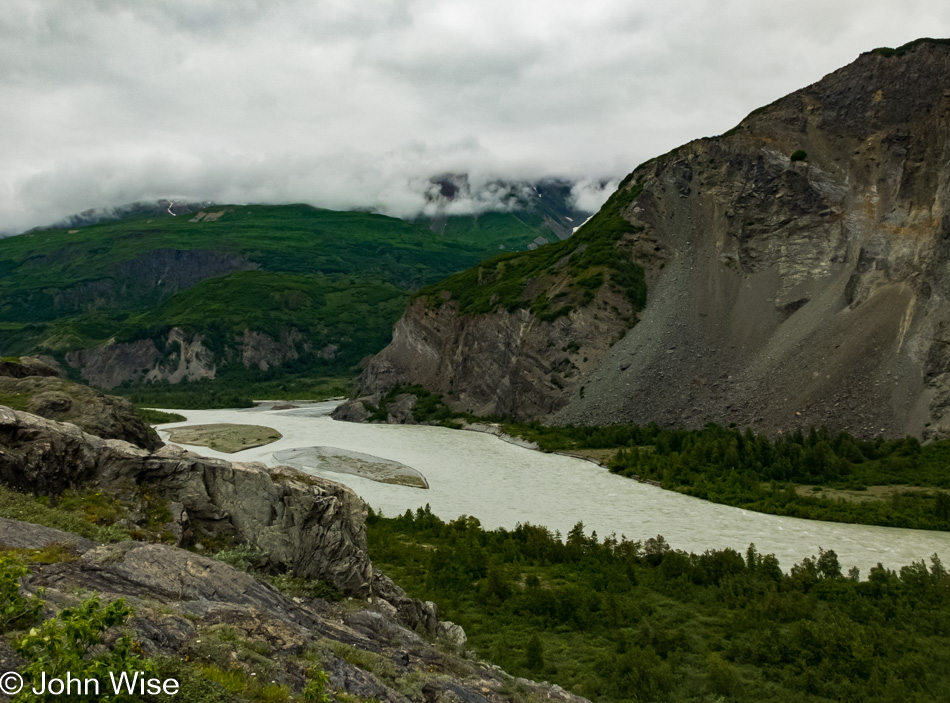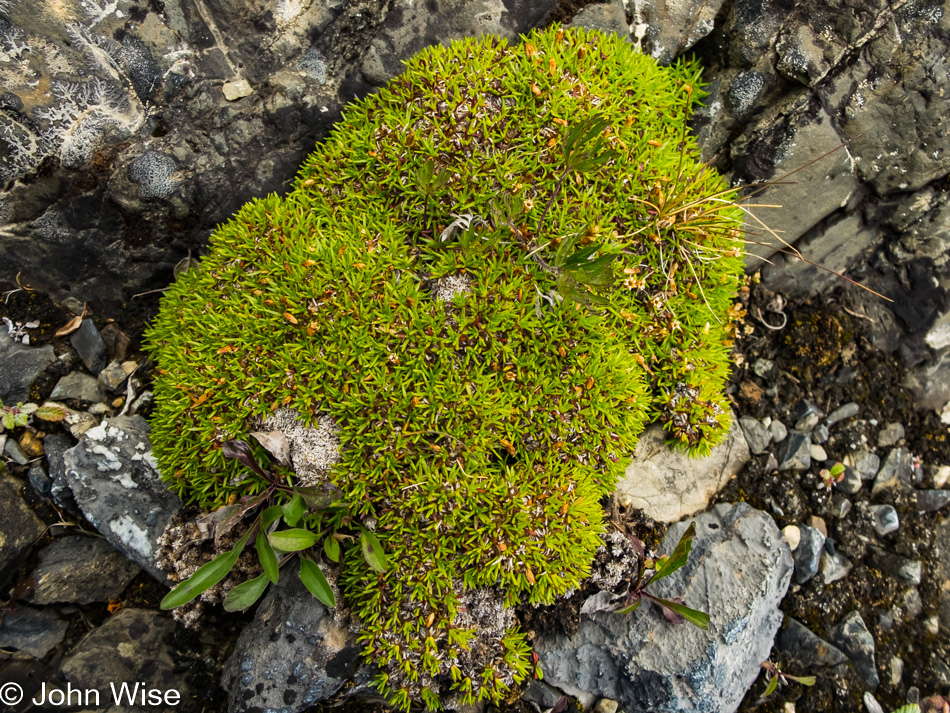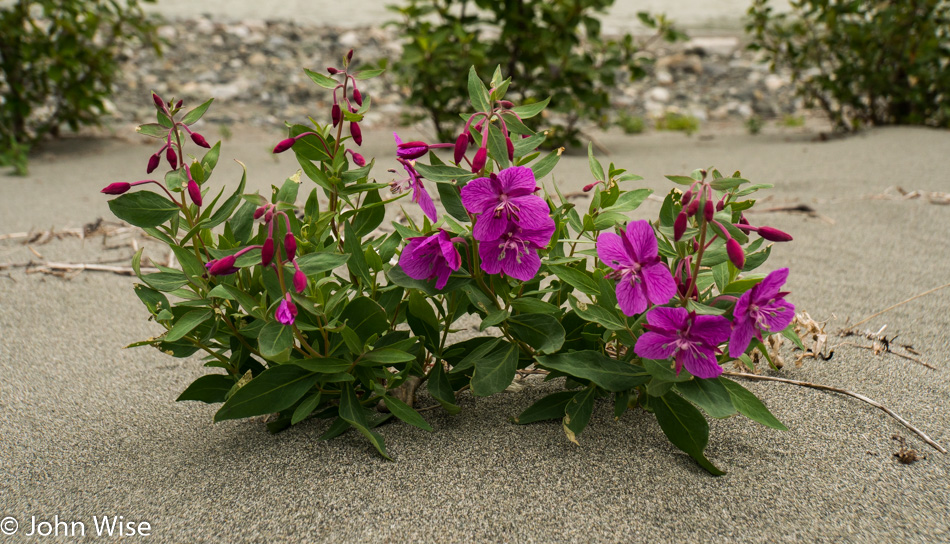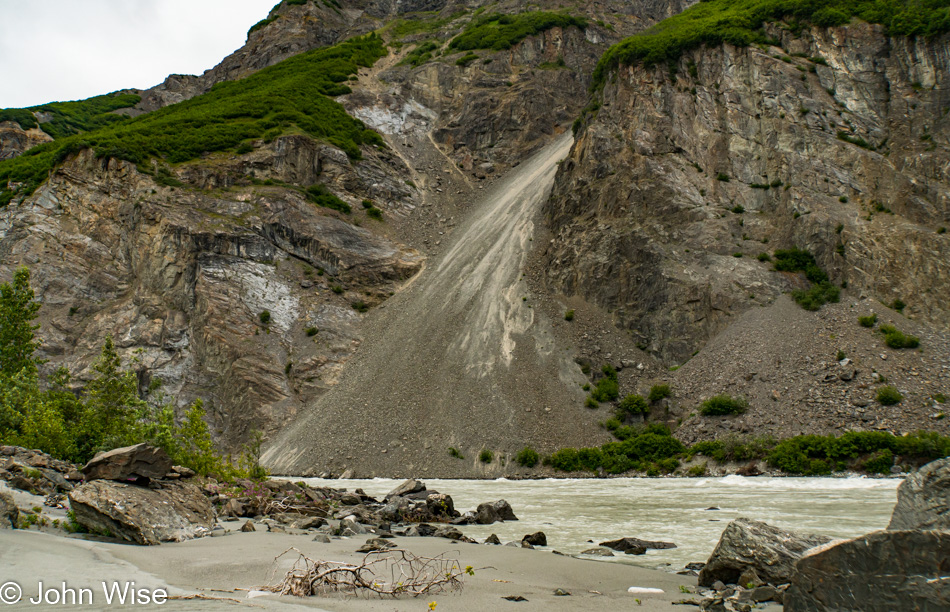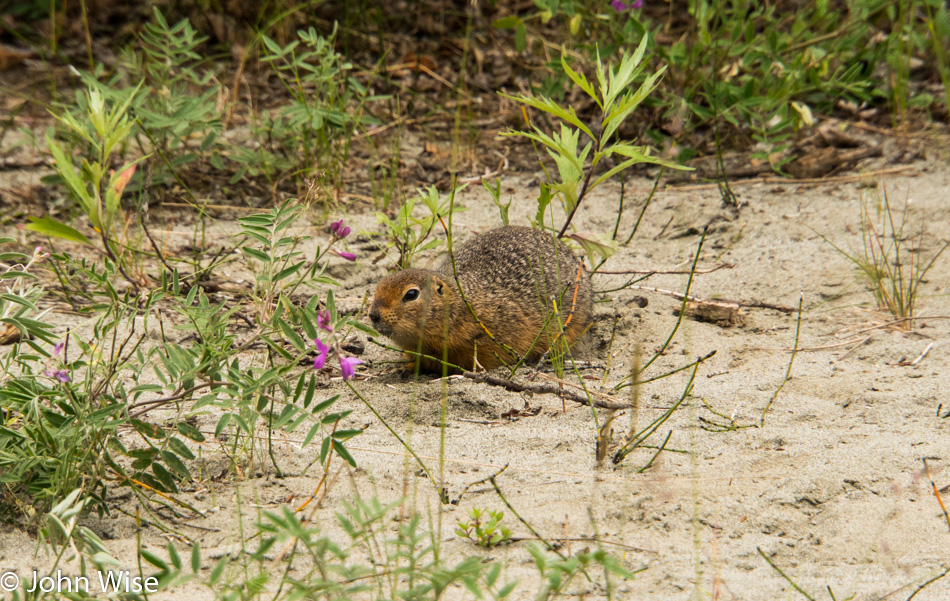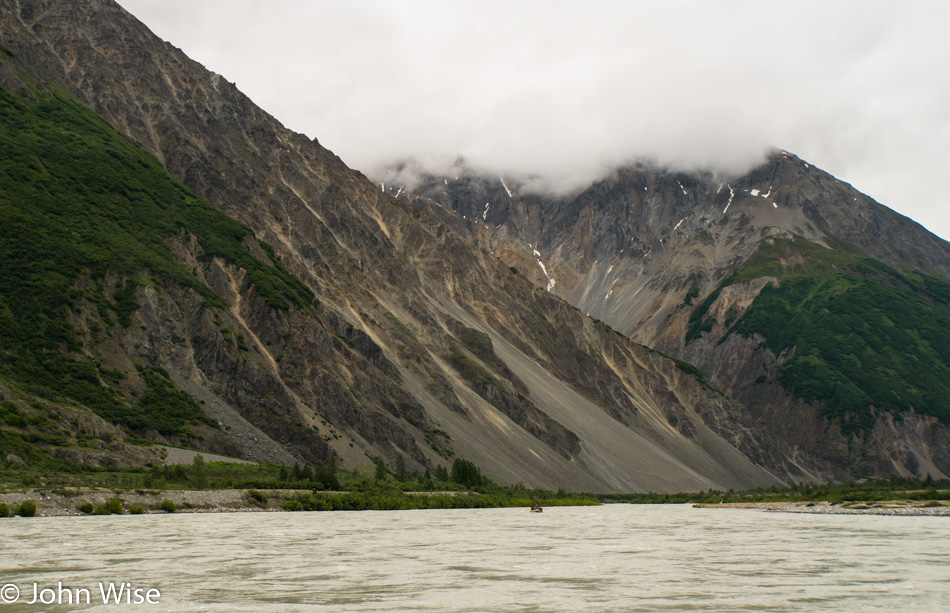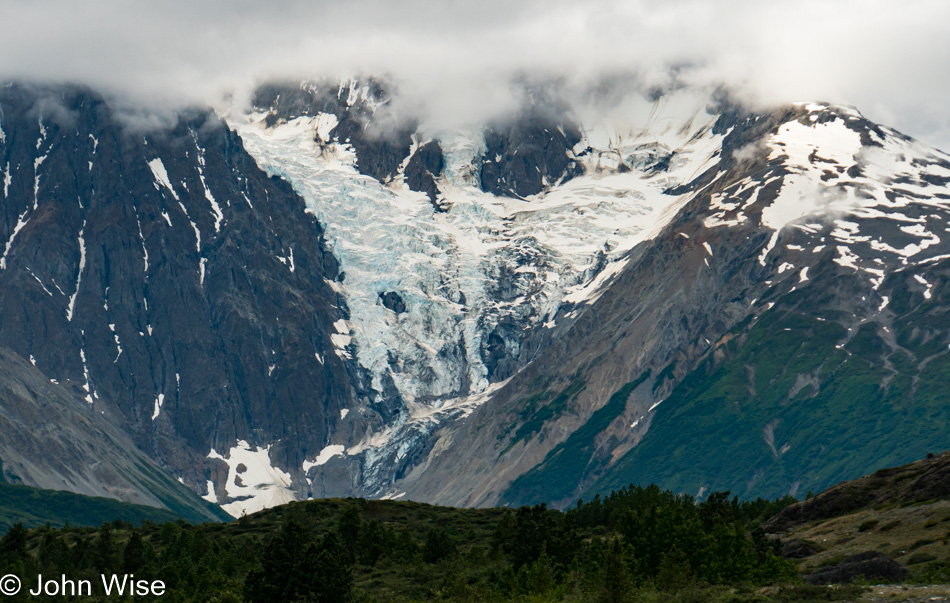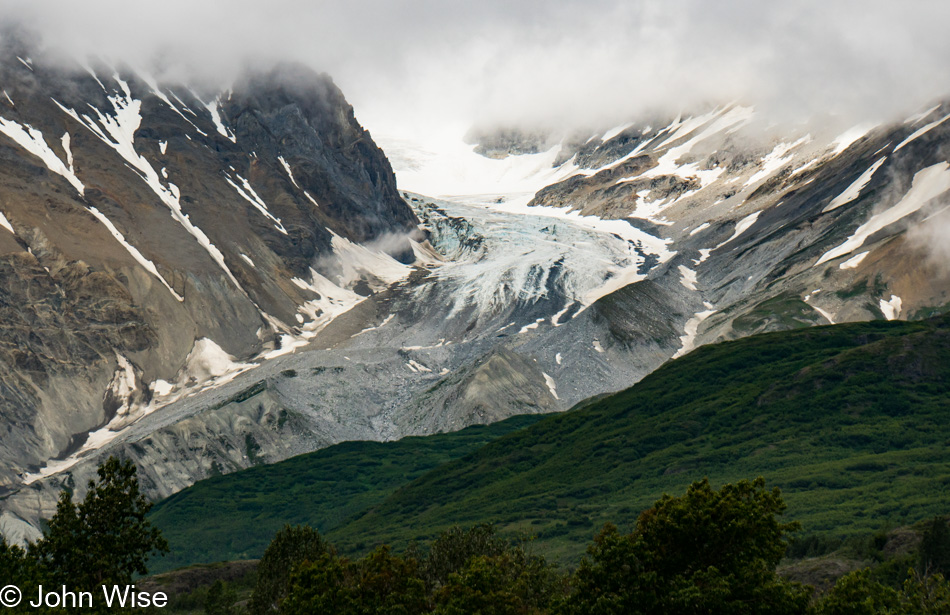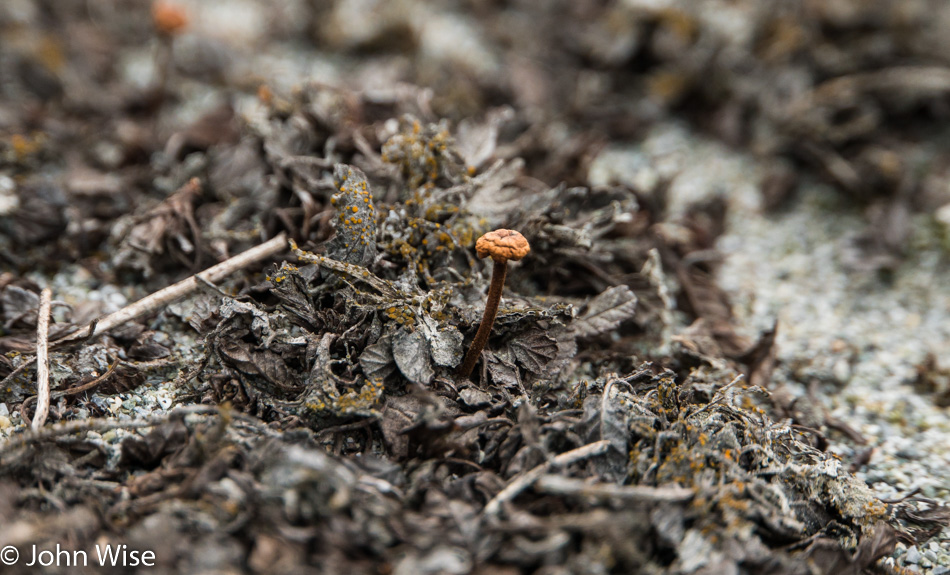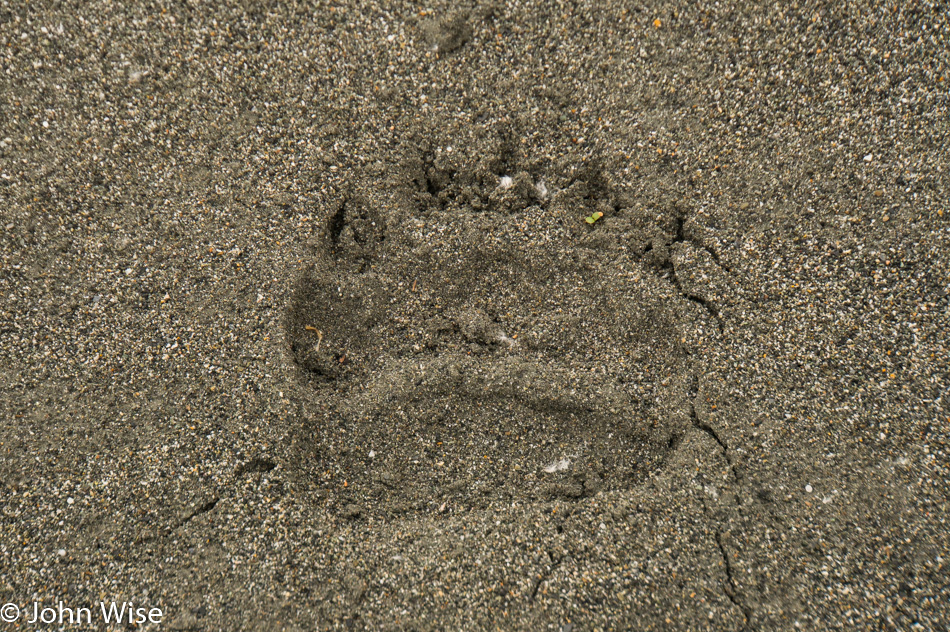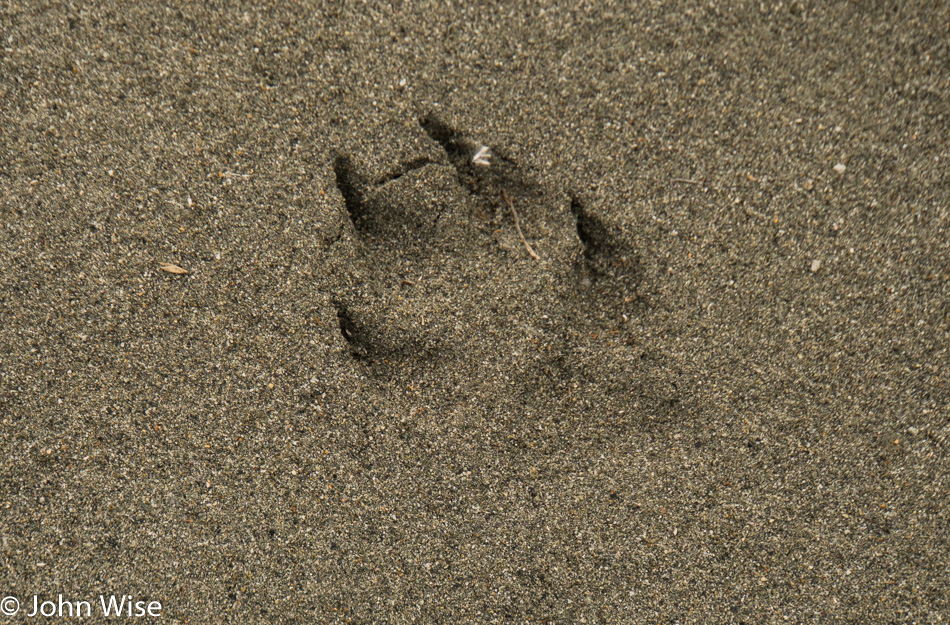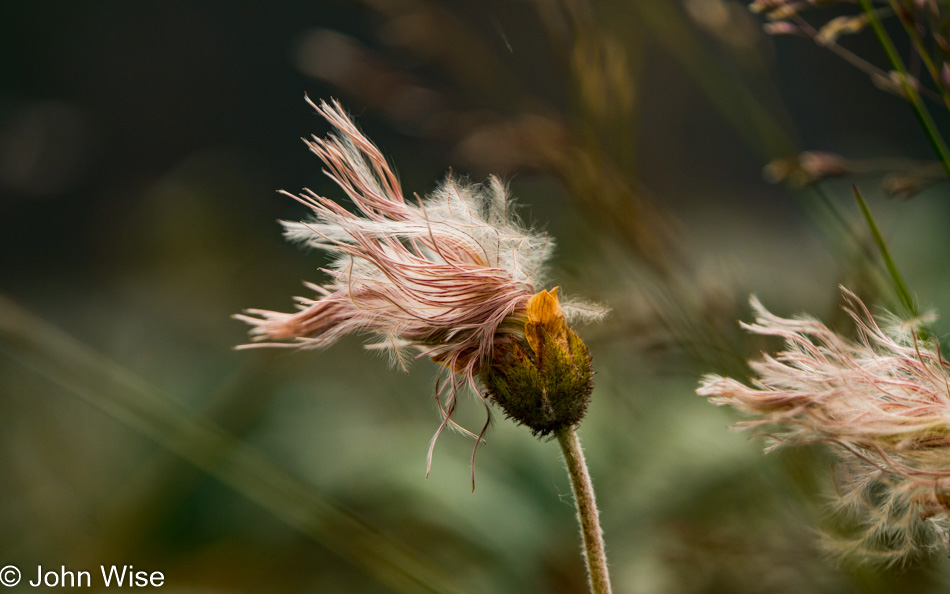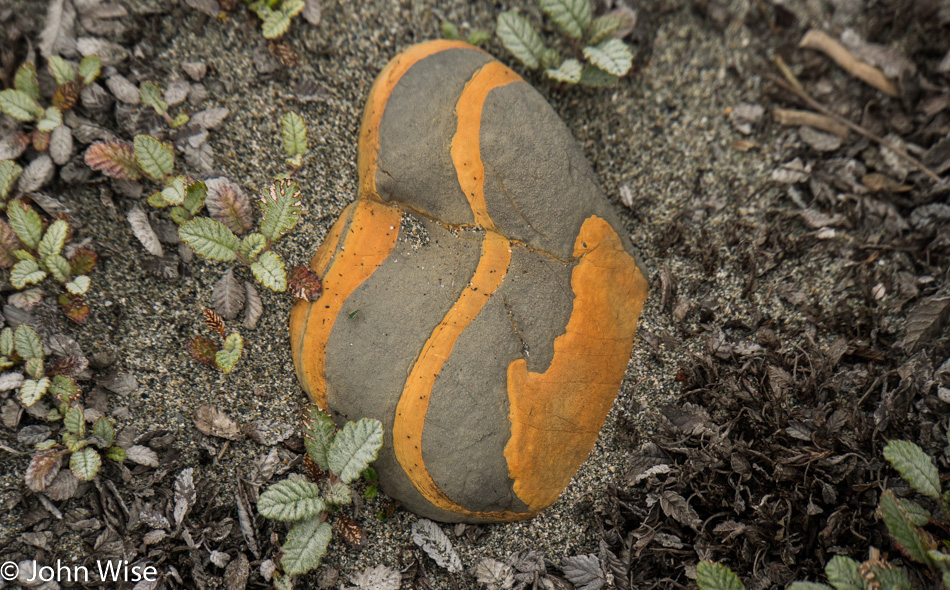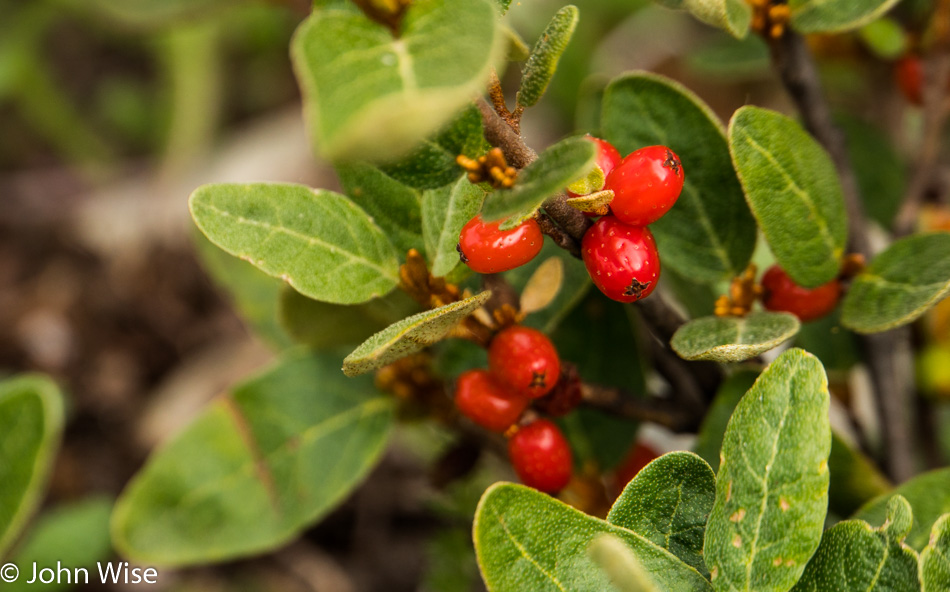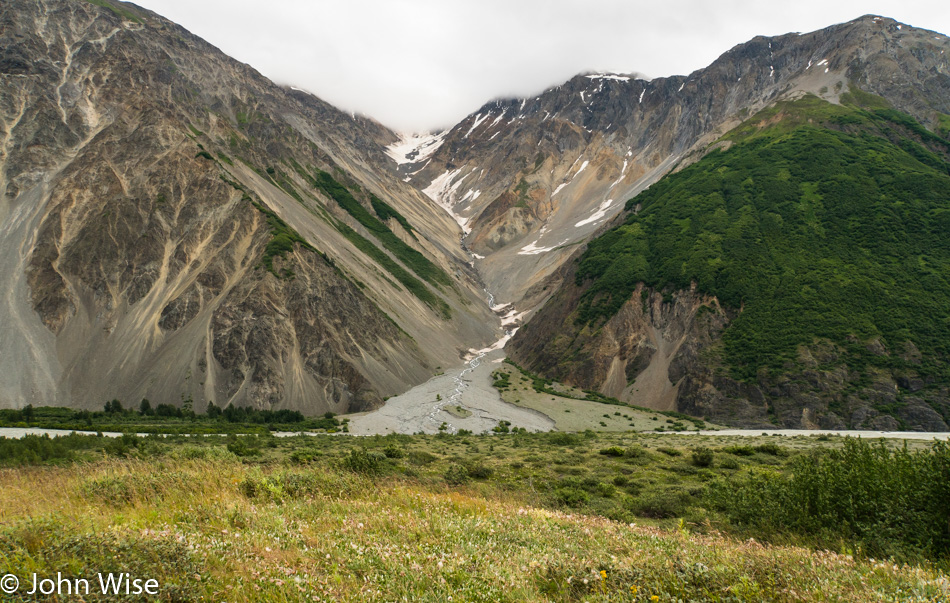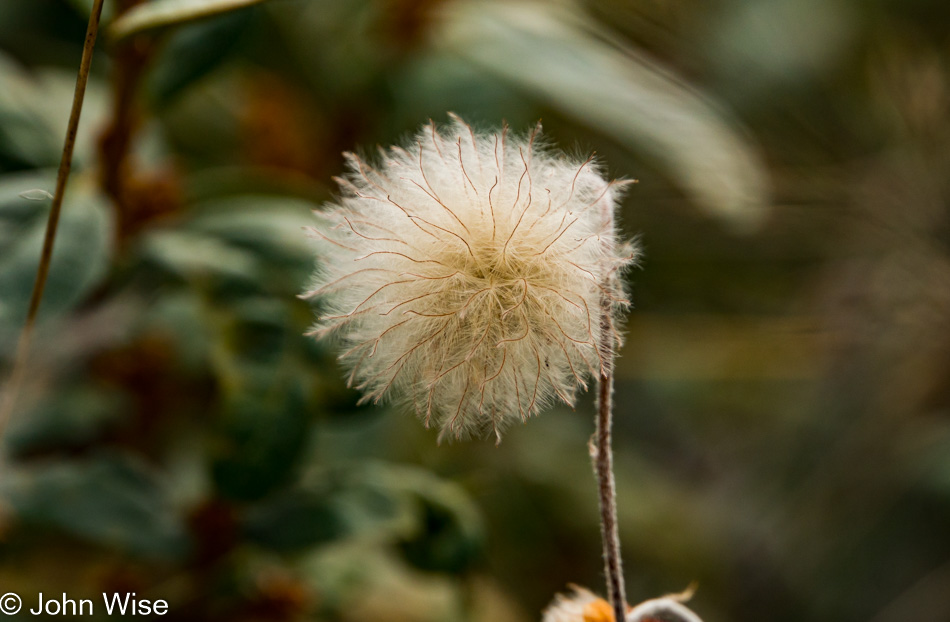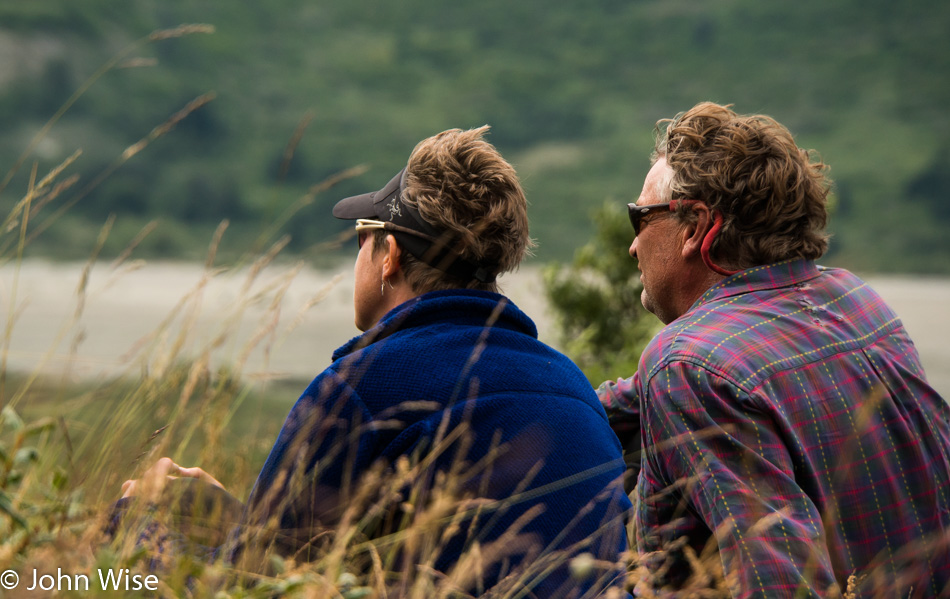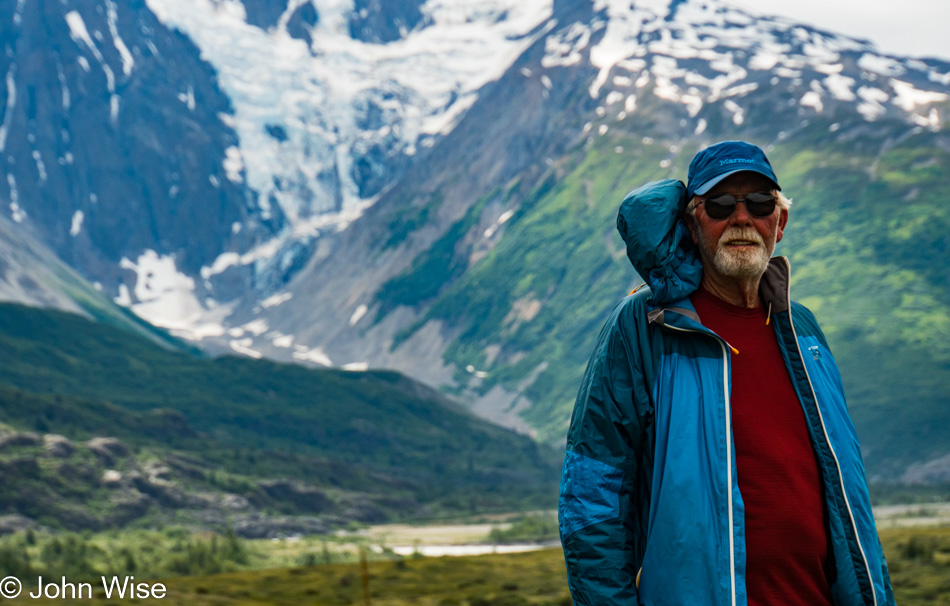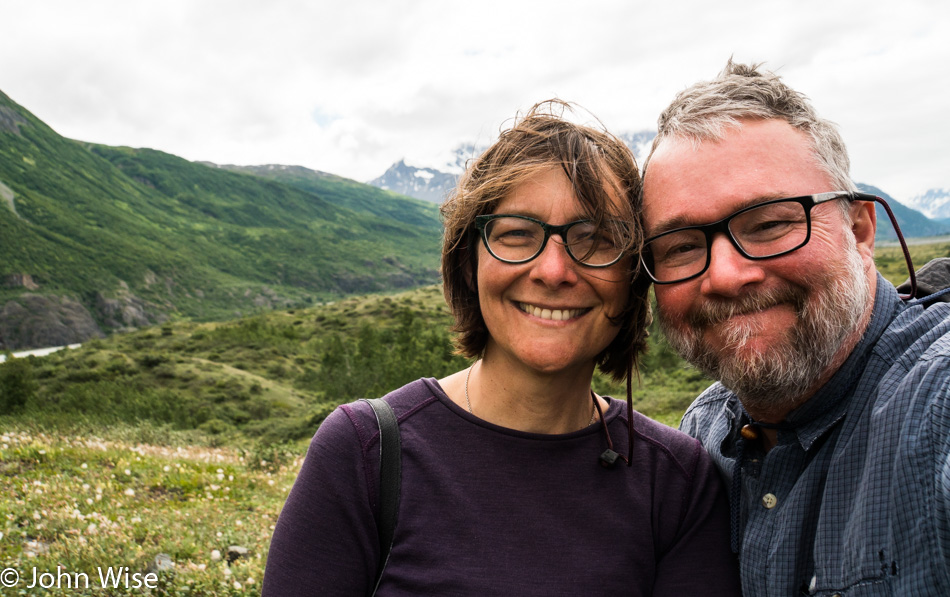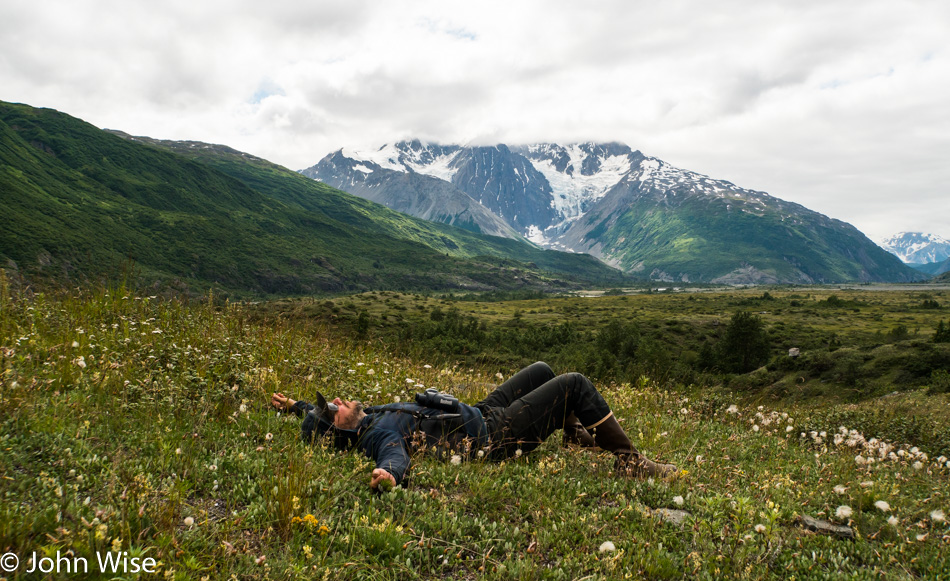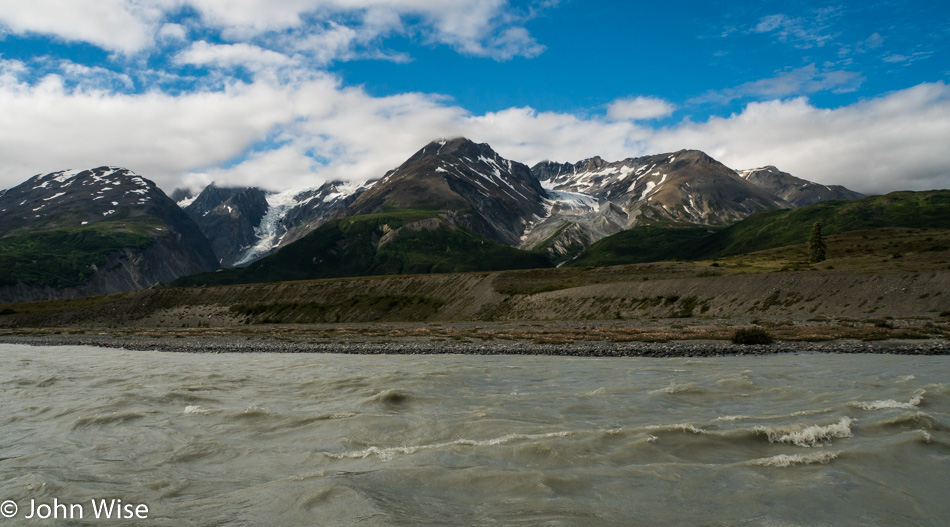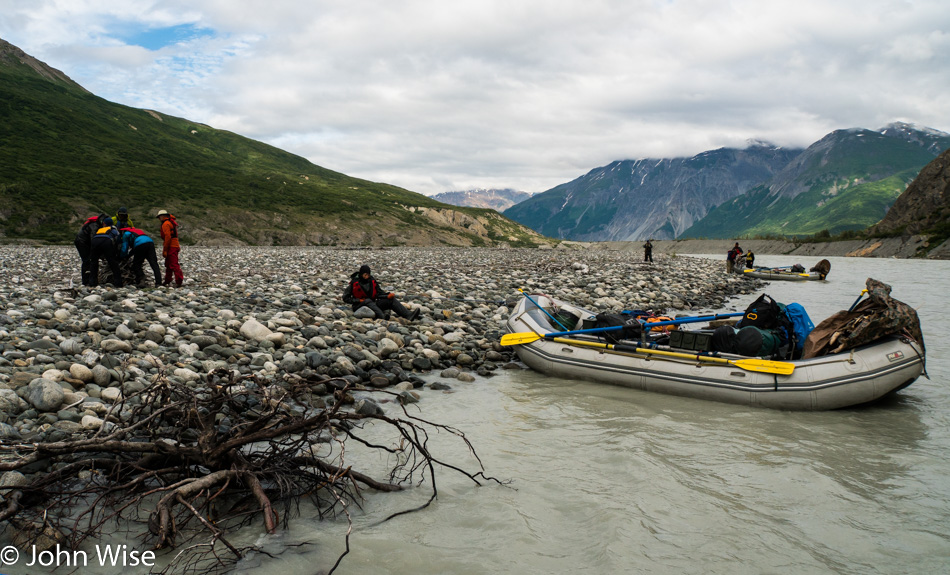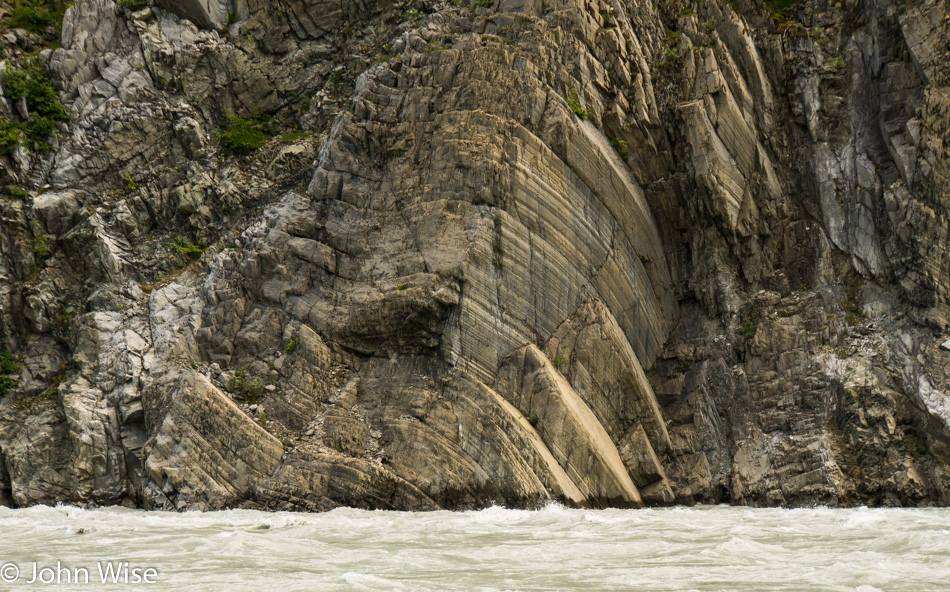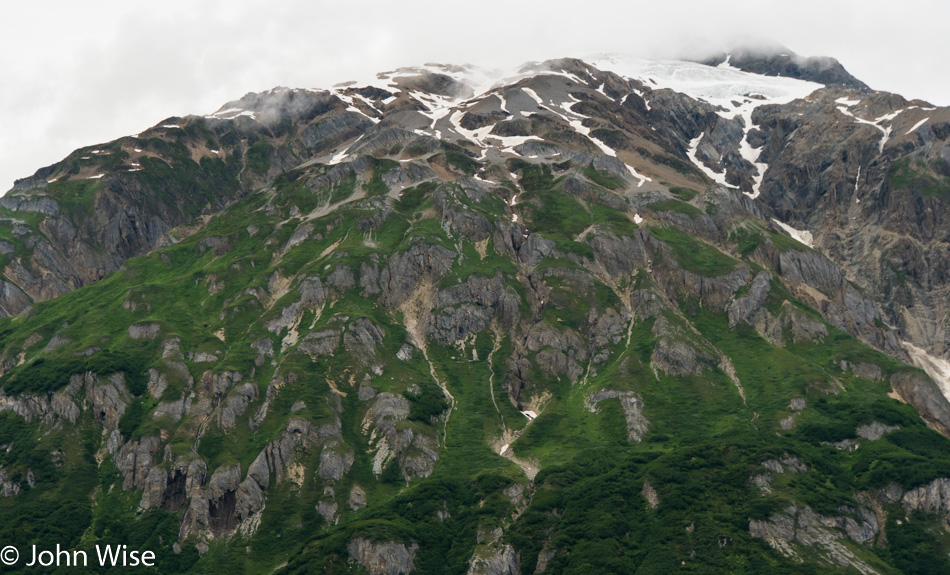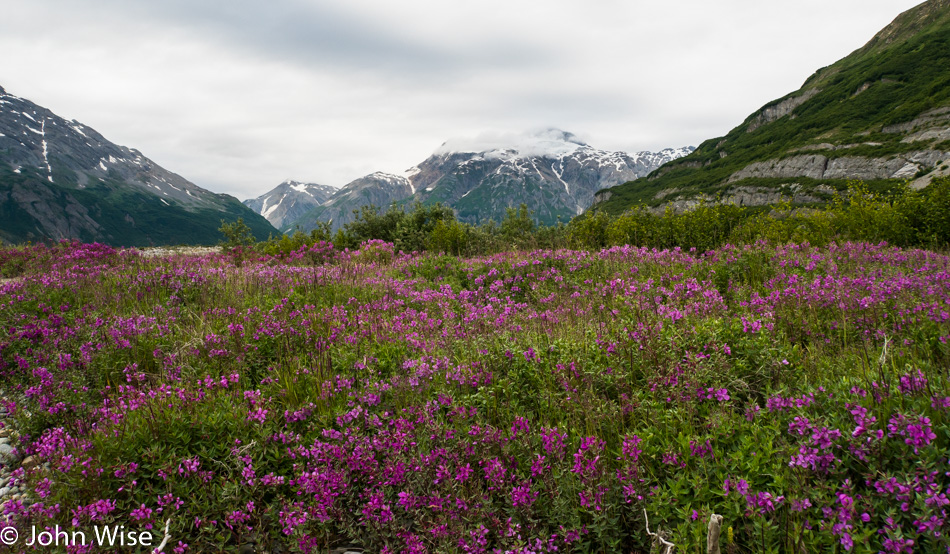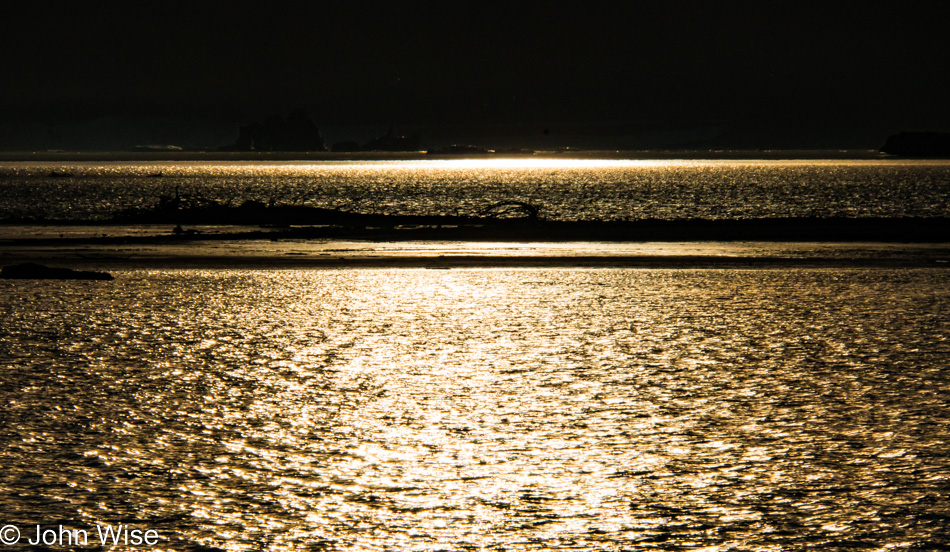
The sun is golden on the lake as we leave our tent, portending that a great day is at hand. Waking up like this is a treasure that should live within us forever. In the future, I will have to read, look, read again, and then repeat that these moments were steeped in perfection.
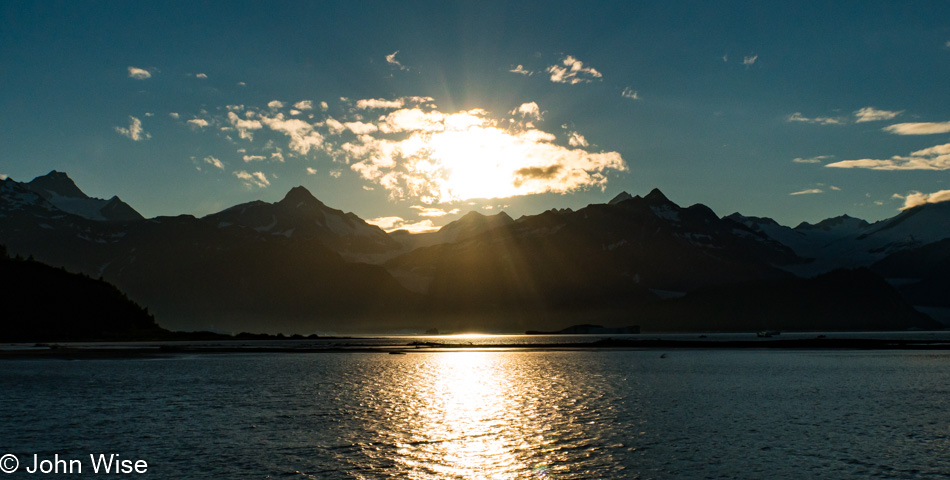
The sun shining with blue skies is arguably the “perfect” day, but if clouds and snow with some high winds had developed overnight, then that would have been perfect, too. The photos might be less than stellar in some way, though I would hope I still could have gleaned a promising angle to portray the beauty of what the cold environs were offering. To that end, I share these spectacular skies with you here on the last full day of our Alsek river journey.
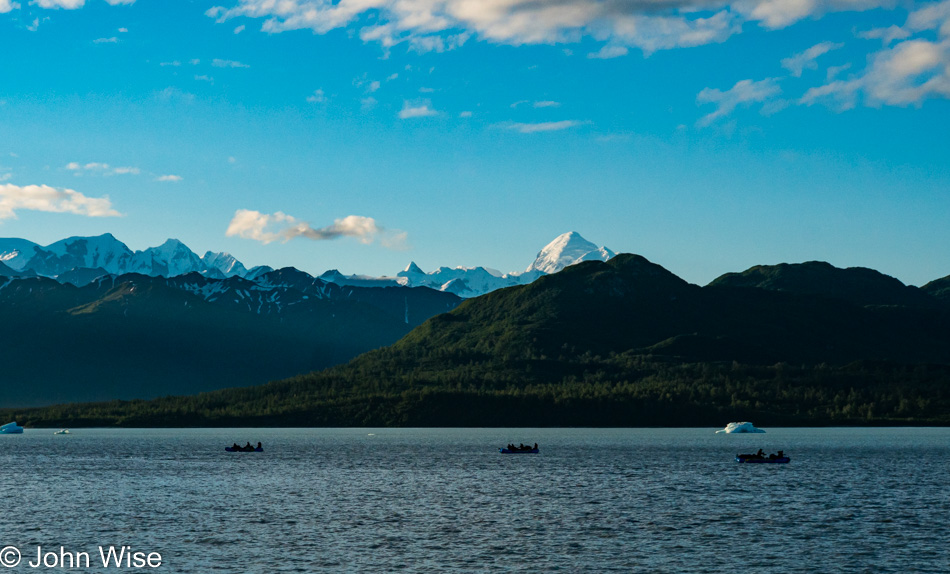
A fellow group of rafters from Canadian River Expeditions who had stayed out on the knob of the island in Alsek Lake were headed out early this morning with an incredible view of Mount Fairweather to bid them safe travels. This was the second time we were denied staying out there due to others arriving before us, so it goes, as maybe it contributes a reason to visit this river a third time.
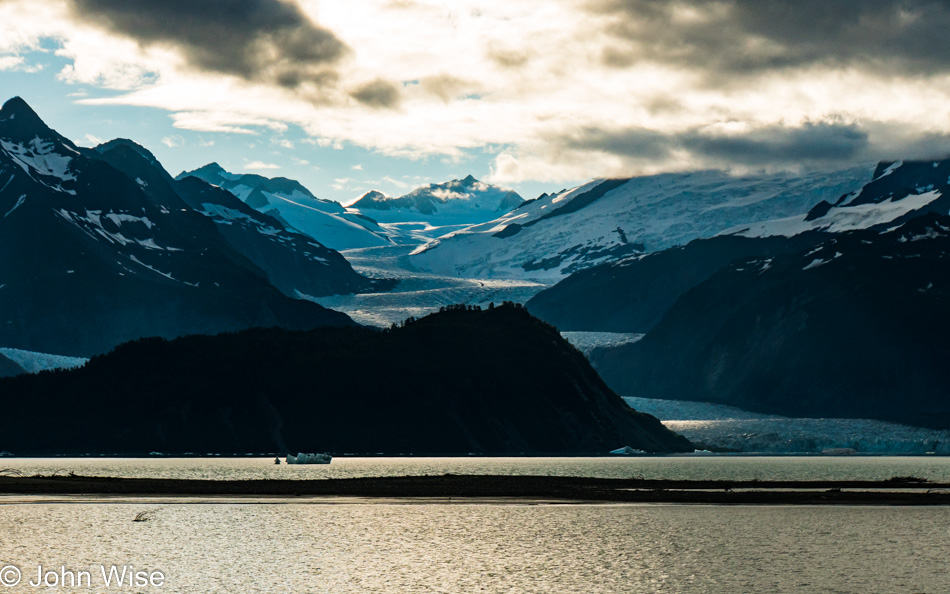
The view changes minute by minute, with each iteration looking more appealing than the one that preceded it.
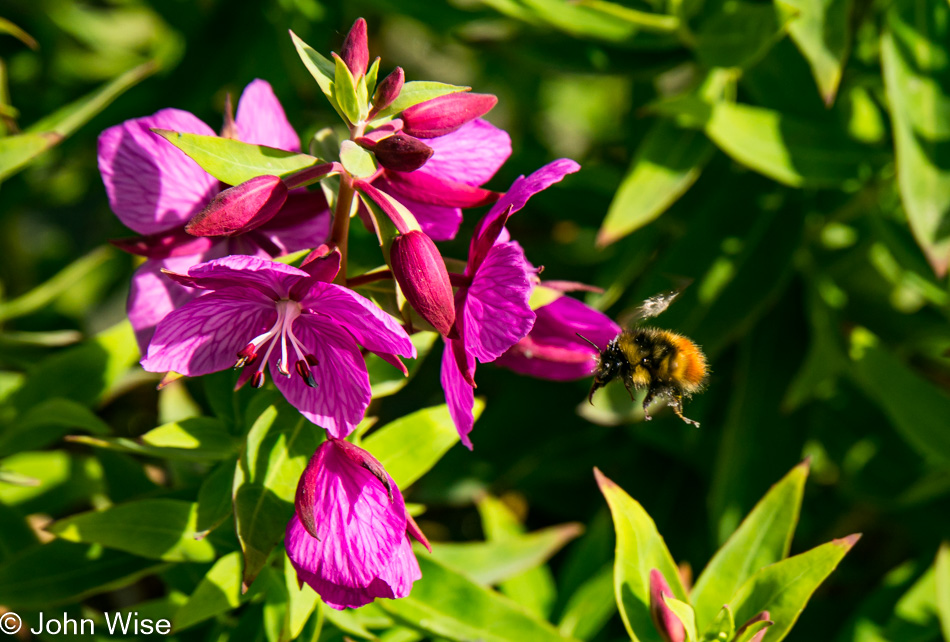
While the bee enjoyed pollen for breakfast, we pulled in close to the fire as, although we had blue skies; it was still a bit chilly out here this morning. Fortunately, we didn’t have to make do with pollen, though flowers are abundant; we were able to feast on made-to-order omelets.
It wasn’t long after this that more than a few fellow travelers became nappers. In the distance, an eagle was heard but remained unseen. Gulls and terns flittered about as out on the lake; icebergs would roll to the sound of ice calving off the glacier far in the distance. At times, the calving must have been fairly serious as the water would surge to shore with a sound more intimidating than the effect. All the while, the clouds shift and move in and out as they dance across the morning sky, painting shadows across the landscape.
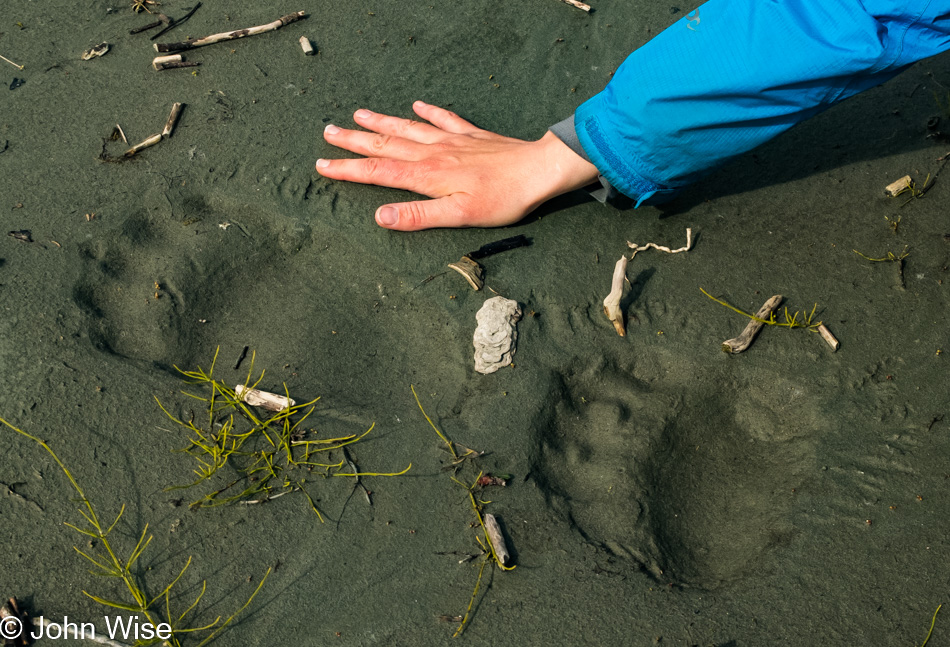
While I explored in one direction, Caroline headed off with Willie and Sarge to see what they could see; they came across these bear paw prints, but luckily not the bear that made them.
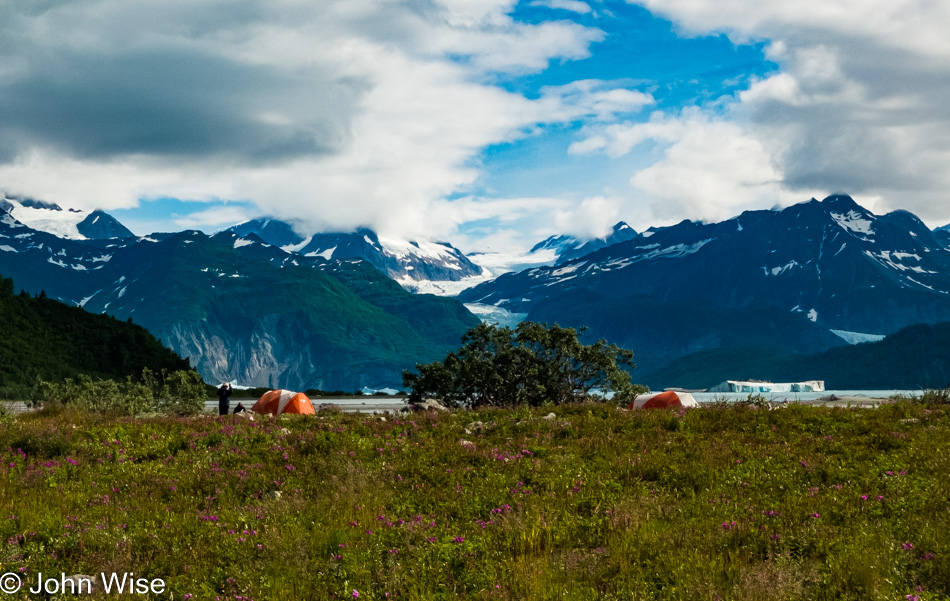
Not a bad place to camp, huh?
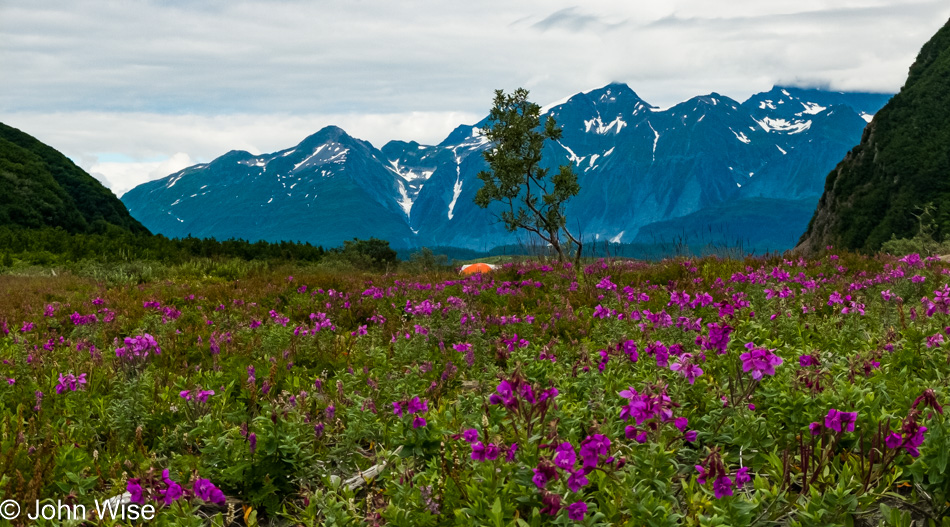
And if you need more space, you could set your tent up over there.
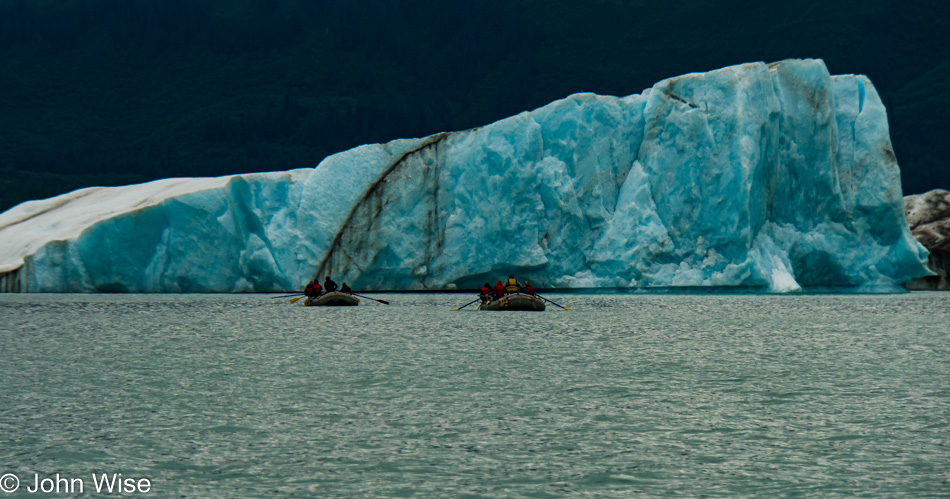
There would be more than eating, sitting by the fire, and picking at chapped, dry, and peeling skin that has been exposed to more wind, water, and sun than is typical when we are back home. Out on the lake, we were rowing to a safe distance from those giant multi-ton bergs of ice that can cause havoc to tiny little people of frail form when encountering the crushing effect that old ice can play on what would have otherwise been a great day. I admit to the dilemma I face in that I simultaneously want us to row up the ice cliff so we can reach out and touch those giants and then again enjoy my distance of relative safety.
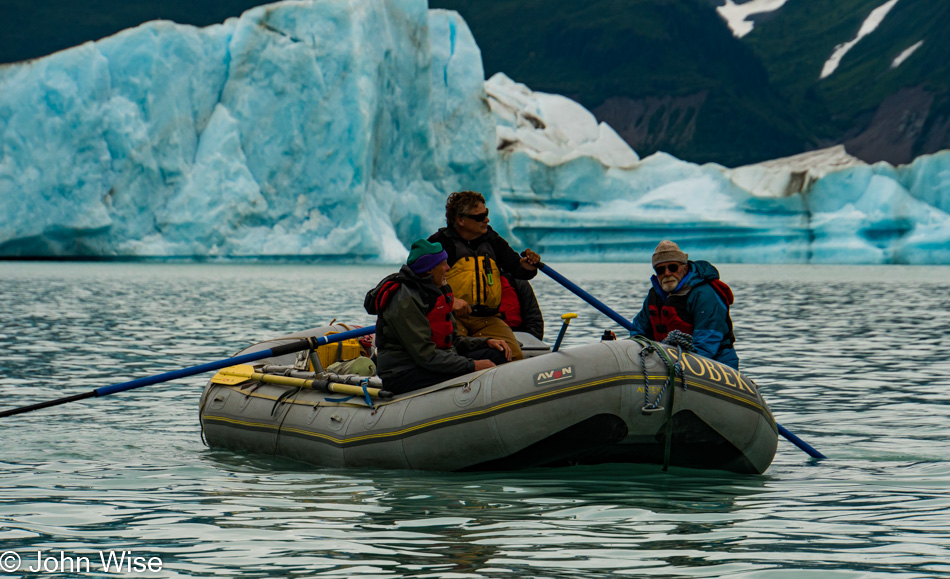
Oh, how beautiful it is out here, except for these old guys. From left to right: Steve “Sarge” Alt, Bruce Keller, and Frank “First Light” Kozyn.
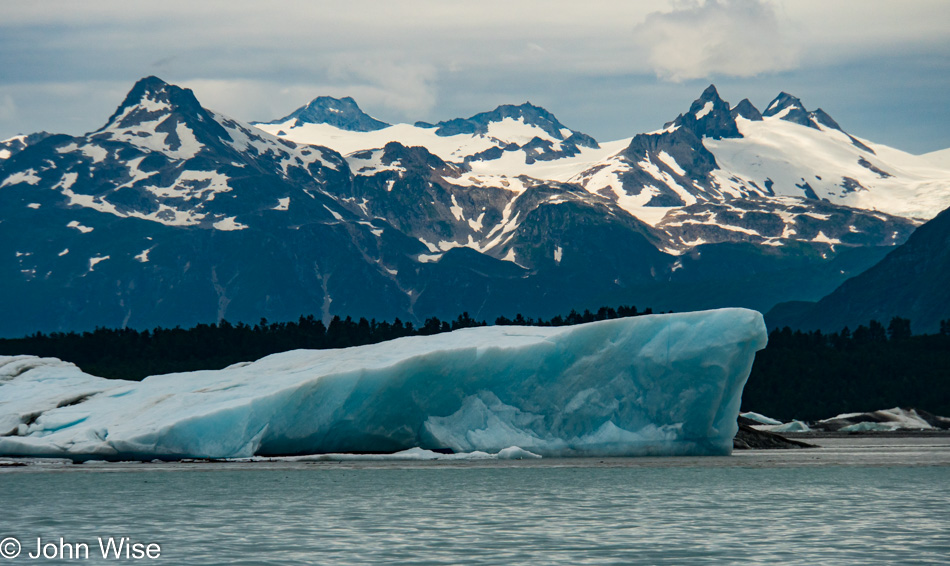
Just cruising around the neighborhood and checking out big ice.
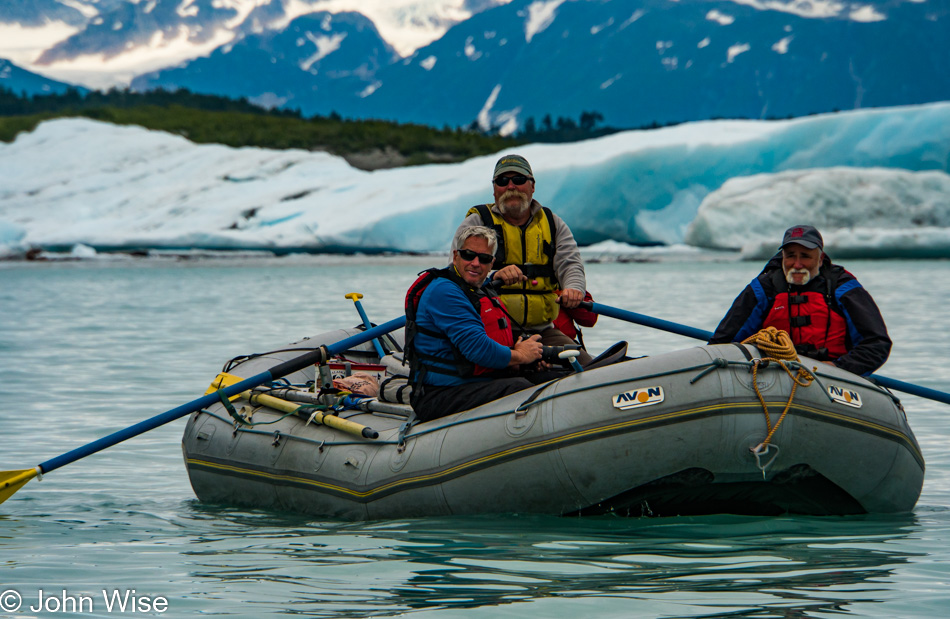
Keith, Thirsty, and Don bring up the rear of our leisurely excursion into water and ice.
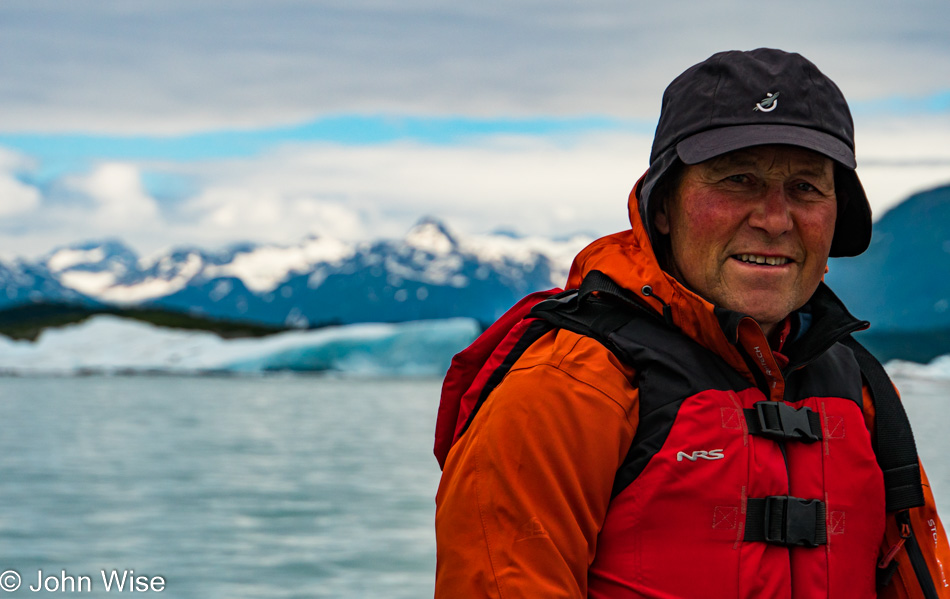
Last photo of William Mather from this trip. Caroline and I first met Willy back on the Yampa River some years ago, and seriously enjoy his company and storytelling. We have an open invitation to visit his farm over in Scotland, and if all goes well that’s what we’ll do in the year 2020.
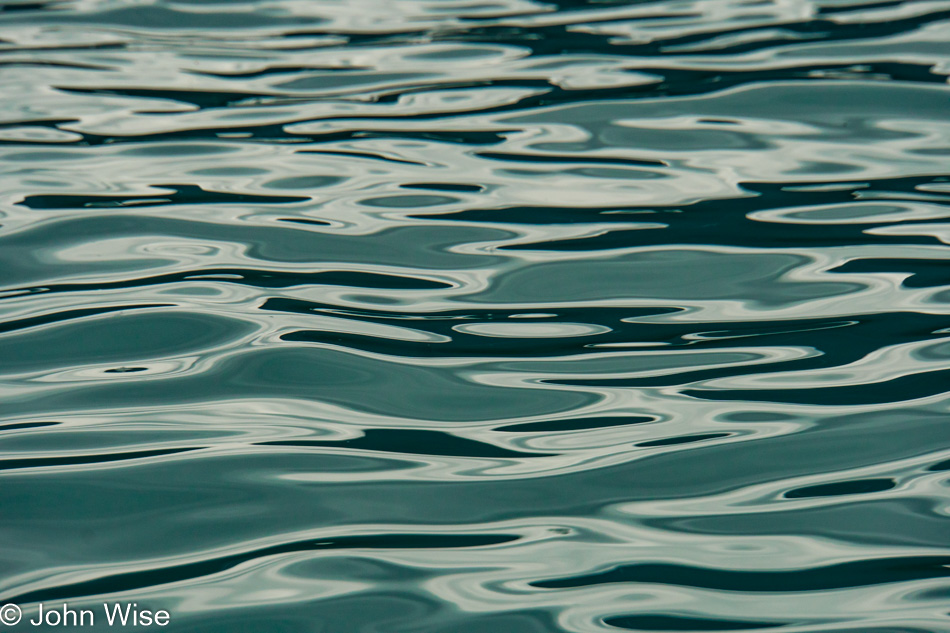
If you never stop to look down at the small stuff, you might miss some of the best views in life. This is reminiscent of some of the golden patterns we’d seen back on the Colorado River in the Grand Canyon.
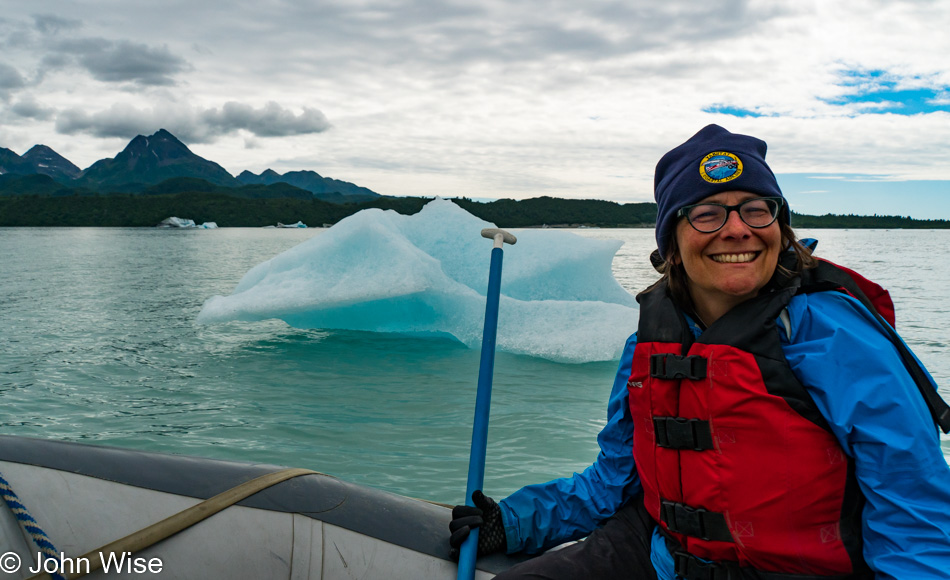
Paddled a raft next to icebergs; yep, been there done that.
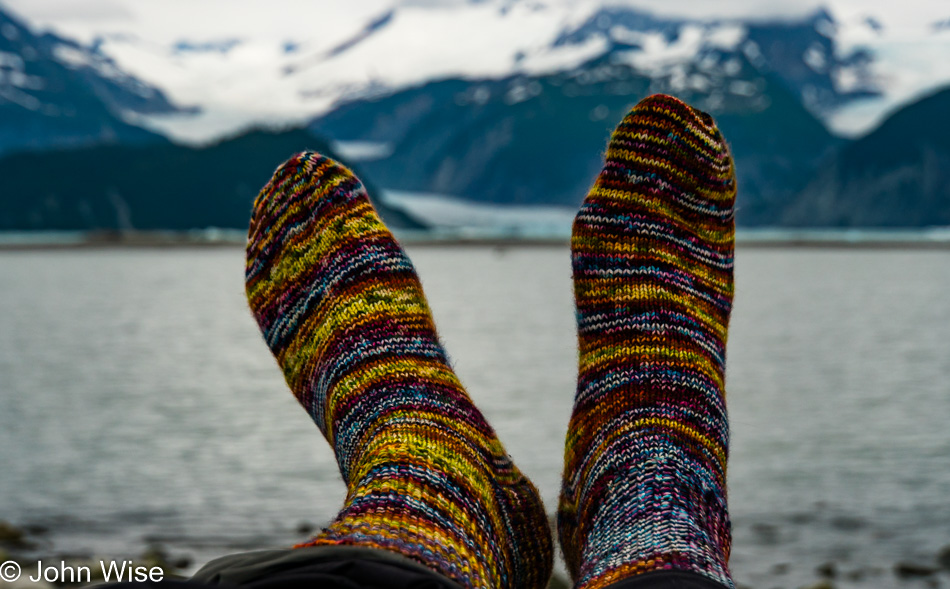
During the course of this Alaskan adventure, Caroline worked vigilantly on my newest pair of socks, and so here I am on the shore of Alsek Lake in front of the glacier with Mount Fairweather over my right shoulder and the Pacific a good distance behind me as I pose to model my handmade socks of love.
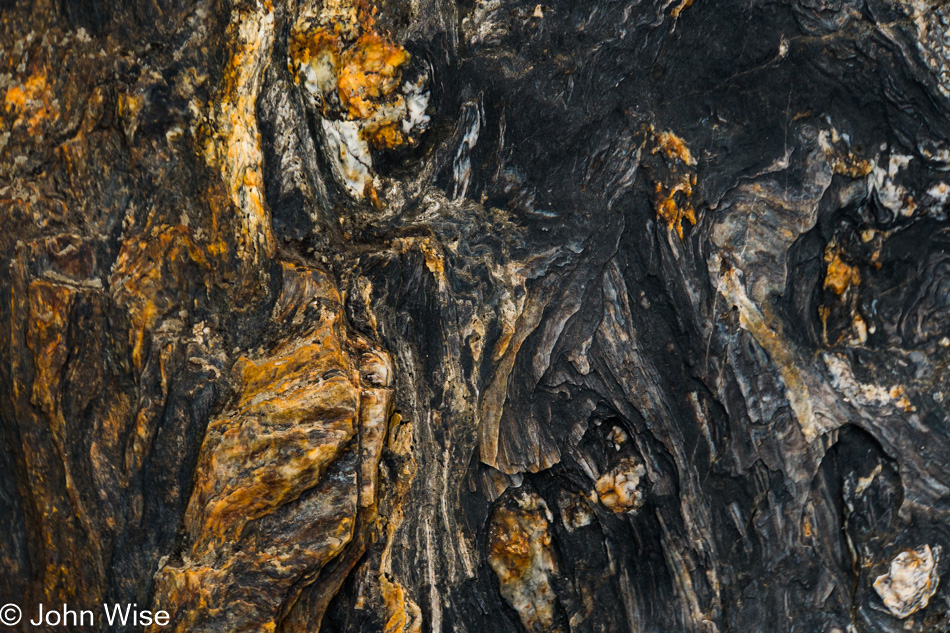
We look at building materials every day of our lives. With conformity of patterns ruling our modern architecture, it is a rare day we get to see nature in all of its raw forms. Here, on this journey down the Alsek River, we have seen how ice carves the landscape, silty water scrapes river channels out of the earth, propelling boulders downstream. Forests give way to the forces of nature, various creatures cling to life in the brief moments that the environment allows their survival, and rocks crumble to dust, but before they do, they lay here for years, allowing us visitors to glimpse their intricacy and natural beauty.
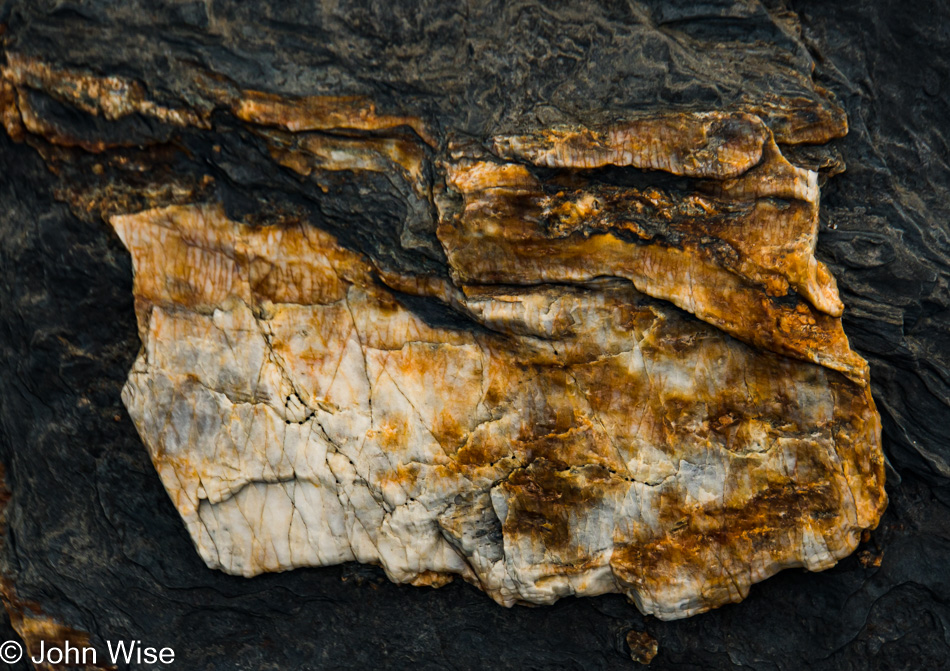
I enjoy the unexplained mystery of how this white-rusted rock becomes enmeshed in the surrounding black rocks that kind of look a bit like shale. If I give it another moment of thought, I can figure out what was happening so many years ago when these two rocks met and got married, but then the mystery will go away, and what fun is that?
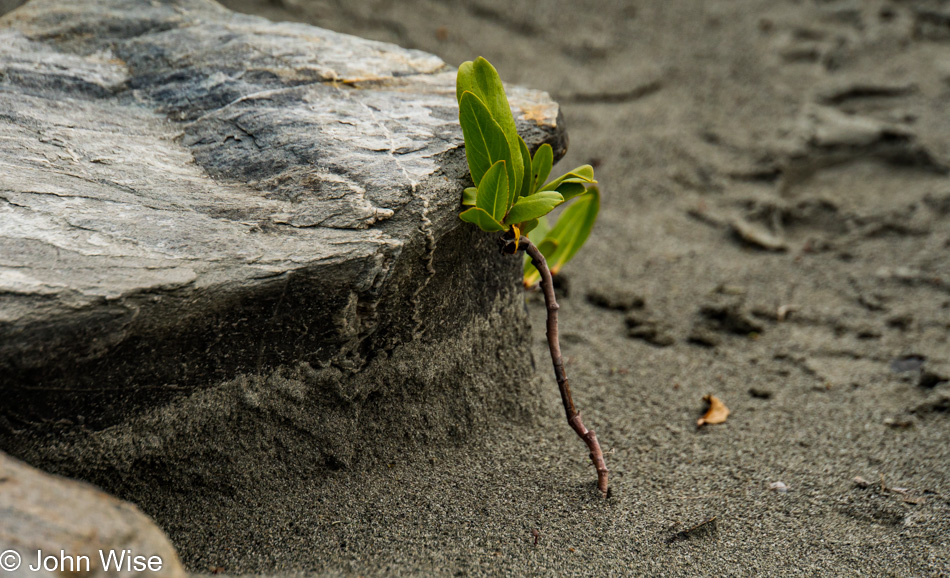
This photo tells you more than what might be seen at first blush. Look at the bathtub ring of sand on the rock and keep in mind that I’m about 120 feet (40 meters) away from the lakeshore. The sand around the stalk of this plant has been washed away, not by rain but by a wave that would have risen out of the lake due to the movement of ice somewhere out there. This certainly gives me pause about where we set up our tent, and just like our previous overnight next to the lake, I’m wondering about the wisdom of desiring the waterfront abode.
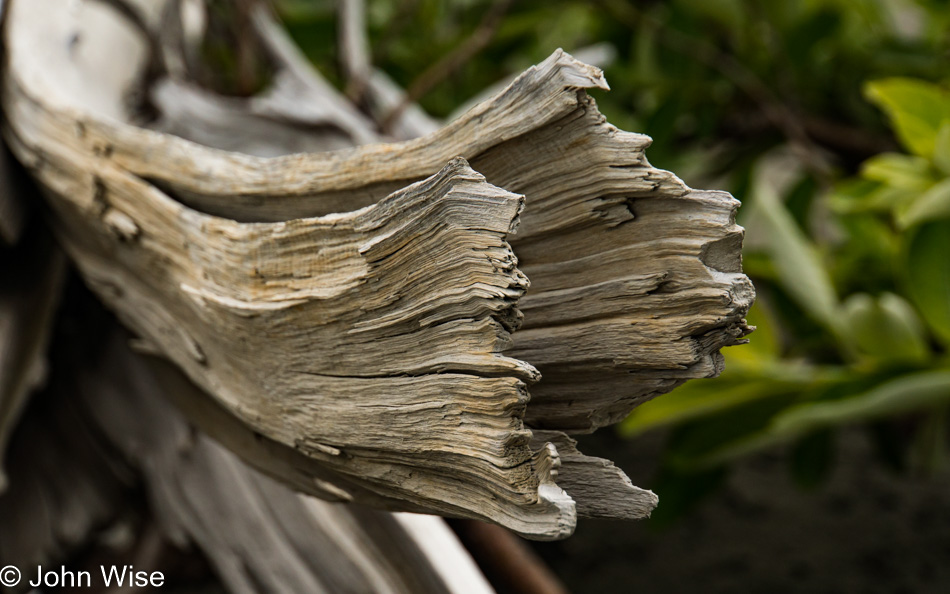
There’s no escaping the end-of-journey melancholia that arrives with the waning final moments of a grand adventure. The feelings are amplified when the occasion is found deep in nature, as the connections to the bustle of life in a city have been pushed to the remote edges of experience. A trip to a capital city, on the other hand, will simply require us to transfer our busy activity back home, which is how we typically live anyway. There’s no way to take the serenity of nature and the big outdoors back home with us. Crashing into the airport and the frantic parents traveling with their children is an abrupt cessation of the tranquility we had while outside of civilization and all of its trappings.
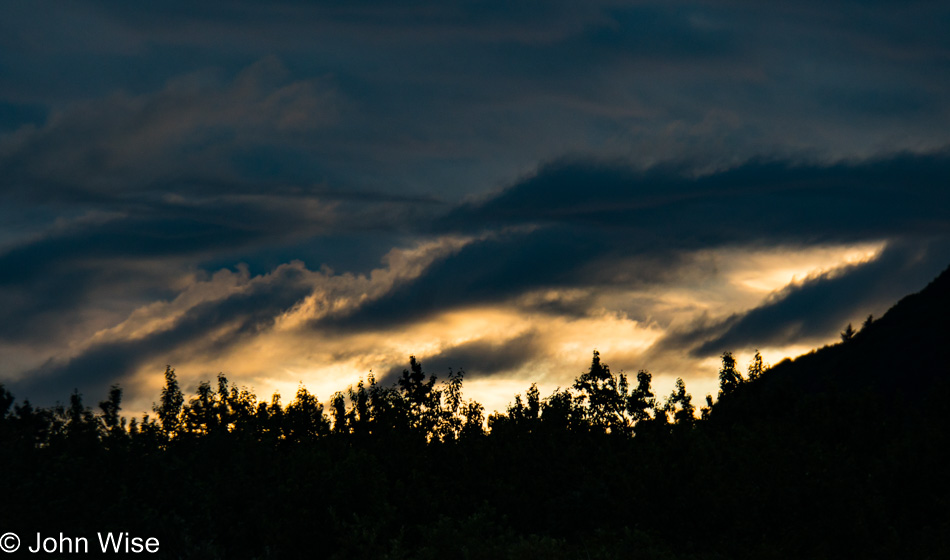
Dinner around the campfire on our last night next to the lake was an incredible smoked halibut chowder, great conversation, and a spectacular sunset. Could we ask for more? Okay, there is something more: that smoked halibut was from Dejon Delights back in Haines, and they do mail-order, so in this circumstance, I’ll be taking the flavor of our adventure back to Phoenix with us. Tonight, though, we sleep under the stars to the sound of calving glaciers and water lapping at the shore, forever lost in moments that should echo throughout our lives.
